
Your Trusted Advisors for Admissions Success
Admissions and test prep resources to help you get into your dream schools

How to Write an Amazing Common App Essay (2024–2025) — Examples Included
Learn how to come up with a unique topic and choose the right common app essay prompt to write a strong personal statement and get into your dream college. plus, a full-length common app essay example.

Writing a strong common app essay will help you stand out to colleges, beyond your GPA and TEst scores
(Note: This guide can also be found in our free, 110-page comprehensive guide to top college admissions, How to Get Into America’s Elite Colleges: The Ultimate Guide . )
Part 1: Introduction
What is the common application.
Why does the Common App Essay—and other college essays—matter?
What are these mystical college essays, anyway?
Common App Essay Prompts 2024–2025
Part 2: Pre-writing your Common App Essay
Brainstorming Common App Essay topics
Freewriting
Essay writing timelines: how to write your Common App personal statement if you have six months, three months, one month, or even less
Part 3: Choosing your Common App Essay topic
Part 4: writing your common app essay.
What 'type' of essay do you have to write?
Writing and revising: common errors
Part 5: Common App Essay example
Part 6: frequently asked questions.
Applying to college: the phrase alone can instill terror in the hearts of high school seniors, and even in those of us who have lived through the experience.
Every year, the college application process seems to get more complex, and more intense. If you’re a student, you might be reviewing rumors and horror stories about that classmate of yours with perfect grades and a 1500 SAT score who somehow got rejected from every Ivy League school . If you’re a parent, you might be afraid of how much the college admissions system has changed and grown more competitive since you were your kids’ age, or perhaps you never had to navigate this system at all.
One of the biggest fears of many students and parents is the sheer anonymity of the process. You, the college applicant, have worked hard through high school, earning great grades, expanding your worldview through extracurricular activities , and contributing to your community… and now, it can seem pretty unjust to throw yourself at the mercy of an application system that seems arbitrary, blind to your personality, or even uncaring.
There’s good news, though.
The college application process has a logic to it—and it’s one that you, the applicant, can both navigate and trust. All those essays, all those forms, all those questions? They’re about getting you in touch with the most authentic and vibrant version of yourself. In fact, if tackled with intelligence, reflection, and organization, the college process can actually offer you a chance to make the admissions process about you as a person, rather than about a distant name on a screen.
You might be familiar with the Common Application , Common App for short, which serves as a single application shared by over 900 colleges, including every Ivy League school and similarly elite universities like Stanford, Caltech, and the University of Chicago. The Common App allows you to enter information like your name, demographics, extracurricular activities, and more just once for every school that uses it. It’s also where you’ll encounter “The Common App Essay,” otherwise known as your personal statement (PS), which is what this guide will focus on.
Though not every school uses the Common App—many state or public schools often have their own systems—the work you do in writing your Common App Essay will serve you in every other component of the process, including applying to non-Common App schools and writing the secondary and supplemental essays that often accompany both types of applications.
(Suggested reading: Which Schools Use the Common App? The Rank-Ordered List )
Why does the Common App Essay—and any other college essay—matter?
You may have heard the phrase “holistic admissions” thrown around—many universities follow this model, which means they don’t necessarily have an ACT or SAT cutoff score, nor do they require a certain number of AP/IB/Honors courses. Instead, they’re trying to get to know candidates as humans. Admissions officers are people—people who would be horribly bored if their job came down to just numbers, statistics, cutoffs, and counting up your AP, SAT, and ACT scores.
In order to get into your dream school, you’ll need not only great grades and test scores, but also a strong personal statement.
Why? Your personal statement is the single loudest ‘qualitative’ element of your application. It brings to life the student—you!—behind your statistics and demographics. It’s the way you communicate with the admissions committee as a person and potential member of the campus community. With more people applying to colleges every year, admissions officers know they can have their pick of bright and motivated students. In addition to seeing your talents and achievements on paper, they need a chance to imagine what you might be like as a walking, talking human being.
Many students and parents wonder how big of a role essays play when it comes to college admissions decisions. While the importance of college essays—which are written over a period of a few weeks or, ideally, a few months—varies from school to school, most experts estimate that they make up for anywhere from 10 to 30 percent of admissions decisions!
In other words, your four years of schoolwork, AP, IB, ACT, and SAT exams, community service, volunteering, and so on account for only 70 to 90 percent. These estimates are provided not to scare you, but rather to emphasize how critical it is for you to spend at least as much time on your college essays as would on any other high school pursuit.
Fortunately, we’re going to talk about every aspect of your personal statement in this guide and reflect on some of the lessons we’ve taken from nearly 20 years of coaching students through the college application process and getting into their dream schools.

Gain instant access to essay examples for every supplemental essay prompt from the top universities and BS/MD programs in the United States. Subscribe today to lock in the current investments, which will be increasing in the future for new subscribers.
Let’s define our terms:
Personal statement (PS): When people refer to the personal statement, they’re talking about the 650-word Common Application Essay, which all schools using the Common App will see. Your personal statement is your major chance to articulate the qualitative aspects of yourself to the admissions committee and the admissions committee’s major chance to get to know you as a person. Throughout this guide, "Common App Essay," "Common App personal statement," and "personal statement" are used interchangeably.
Secondary or supplemental essays: These are the essays that schools can choose to have you write on top of the core Common App Essay. They might invite you to talk more about an extracurricular activity on your resumé, to reflect on a quote from a famous alumna/alumnus of the college, or to share your thoughts on any number of wide-ranging topics.
Common App Essay prompts 2024–2025
Here are the 2024–2025 Common App Essay prompts —all seven prompts are exactly the same as last year. We’ll address how to think about them shortly, so just lodge them in your brain for now.
Some students have a background, identity, interest, or talent that is so meaningful they believe their application would be incomplete without it. If this sounds like you, then please share your story.
The lessons we take from obstacles we encounter can be fundamental to later success. Recount a time when you faced a challenge, setback, or failure. How did it affect you, and what did you learn from the experience?
Reflect on a time when you questioned or challenged a belief or idea. What prompted your thinking? What was the outcome?
Reflect on something that someone has done for you that has made you happy or thankful in a surprising way. How has this gratitude affected or motivated you?
Discuss an accomplishment, event, or realization that sparked a period of personal growth and a new understanding of yourself or others.
Describe a topic, idea, or concept you find so engaging that it makes you lose all track of time. Why does it captivate you? What or who do you turn to when you want to learn more?
Share an essay on any topic of your choice. It can be one you've already written, one that responds to a different prompt, or one of your own design.
Broad, right? You’ve got 650 free words to articulate what moves you, what excites you, what animates or explains you.
This means your essays are not a place to restate what can already be found on your resumé, CV, or Common App Activities section . They’re also not a place to prove that you’ve had some major epiphany, changed the world, or seen the truth of reality at age eighteen. They can be but do not have to be—by any means—about a major traumatic experience. They can but need not discuss family, identity, race, gender, or class.
Instead, they are a place to give the admissions committee a chance to see the you that your friends, classmates, teachers, teammates, and family know. We’ve seen students write about the New England Patriots, the poetry of John Keats, their grandparents’ village, their obsession with keeping too many Google Chrome tabs open, how grilling meats represented a rite of passage, and many more topics that range from the super-serious to the lighthearted but still meaningful.
The Common App Essay prompts are diverse enough that they allow you to write about pretty much anything. Therefore, we encourage you to brainstorm your best stories first and then think about which question to answer. Admissions committees have no preference for which prompt you choose. Additionally, we encourage you to review additional successful college essay examples .
Furthermore, keep in mind that the Common App Additional Information Section contains an optional, 250-word space to describe how COVID-19 has impacted you . Therefore, you do not need to use your Common App Essay to provide this context. That said, it’s also perfectly fine to write about or touch on COVID-19— if the pandemic is a backdrop that allows you to shine a light on what’s unique and interesting about you in the manner we described above.
Let’s meet our students
Throughout this guide, we’re going to refer to a few Common App Essay examples. These examples are closely based on essays we have worked on with students over the past two decades—students who successfully met their admissions goals, including getting into multiple Ivy League and other top-tier schools.
Let’s meet our students now.
Student #1: Ramya: Ramya intends to be premed in college, but isn’t sure if she wants to major in biology or something else entirely. She’s spent her high school years participating in a variety of activities. She played soccer, but wasn’t the star player. She was involved in student government, performed in cultural shows as a dancer, and did speech events.
What’s not on Ramya's resumé? She is a rabid fan of the New England Patriots, despite living in California for most of her life. And, she’s very close to her father and has a tight-knit group of friends.
Student #2: Anita: Anita has an aptitude for English and history. She likes writing, but she’s not on the school newspaper, nor has she ever published a piece of fiction or poetry, which makes her nervous about calling herself a writer. She spends much of her time on mock trial—in fact she’s nationally competitive at it—and lots of people tell her she’d make a great lawyer. But she doesn’t think she wants to major in political science or philosophy; she may not even want to do anything associated with mock trial in college.
What’s not on her resumé? She loves the outdoors, though she has nothing concretely extracurricular to prove it—she’s never been a camp counselor or a Girl Scout.
Student #3: Josh: Josh isn’t sure what he wants to study. He’s a solid student, though no particular subject gets his pulse racing. In his free time he draws comic strips, and he’s had a few on display at various community events in his town. He plays basketball and piano.
What’s not on his resumé? Josh has a complicated relationship with piano—his parents pushed him into it, and he’d like to quit as soon as possible. And, he’s very close to his big brother, who recently left for college. He also has a little sister, who he’s never been tight with.
Student #4: Michael: Michael lives in a small coastal town and attends a big public high school. After school he has a job scooping ice cream, and though he’s not expected to contribute to his family’s income, he doesn’t have much time for clubs or sports, which aren’t very important at his school. He generally likes chemistry, but he isn’t sure what he wants to do with that. He doesn’t want to be premed, and he can’t imagine being a chemist, so he’s undecided about what to major in.
What’s not on his resumé? Michael is no great surfer by competitive standards, but he learned how to stand up on a board at a young age because his grandfather, who’s from Hawaii, taught him. His grandfather recently passed away.

Of course, the terrifying part of starting any new piece of writing—whether you’re a professional, seasoned author, or a high schooler planning for college—is the spooky glare of the blank page, that blinking cursor that doesn’t quite seem to yield to you.
One of the major challenges many students face when applying to college is knowing that they are full of passion and potential energy which hasn’t yet been converted into kinetic energy. That can make trying to communicate who you are, as well as who you hope to become, a daunting task. You might worry about sounding generic or not sounding like yourself or not sounding “smart” or “wise” enough.
The best antidote to all of these concerns, from writer’s block to finding your voice, is to prepare yourself emotionally and creatively well before you sit down to type out your personal statement.
Here’s how you can attack your Common App personal statement and secondary essays if you have a few months before they’re due. We are big proponents of starting early—ideally in June.
Why so early? You may not be thrilled at the prospect of spending the summer before your senior year on college applications. But getting going in June after your junior year and committing to a few exercises over the summer will be like spring training for summer athletes. By the time you get to August, when you’re drafting your Common App Essay and your secondary essays in full, you will be warmed up, and much of the hardest work—that is, the reflection and figuring out what you want to say—will be done for you.
Starting early will also give you time to hand a strong draft of your essay to the teachers from whom you plan to request letters of recommendation for college . If your recommenders know what you’re saying about yourself, they can help tell the same story about you but from a different perspective. This is crucial because your application is a chance to offer not only the facts about you but also a narrative of you—a sense of who you are, how you move through the world, and what you hope to become. That means that each component of your application—your Common App personal statement, your supplemental college essays , your teacher recommendations, and the classes you’ve taken—is like an episode in your story.
Nevertheless, we’ve also offered some adjusted timelines lower down in case you don’t have the whole summer to work with.
Brainstorming Common App Essay topics and working with prompts (2–3 weeks)
Review the Common App prompts and identify which ones get your juices flowing. You can also use our expanded prompts, given in the bullet points below, to help you brainstorm and freewrite over the summer. We’re starting with Common App Essay Prompt 7, since it is the broad, general question. Then we’ll circle back and go through Prompts 1–6.
Prompt 7: Share an essay on any topic of your choice. It can be one you've already written, one that responds to a different prompt, or one of your own design.
Make a list of themes and broad topics that matter to you. What do you, your friends, and family spend a lot of time thinking about or talking about? (Note: This is not the same as asking for your list of extracurricular activities.) Tell the story of an important day or event in relation to one of these topics.
Who’s a family member who lives with you and is important to you? Think of a specific time they helped you with something. Tell the story. What’s an important conversation you had with them? Tell the story.
Think of any person—family, friend, teacher, etc.—who has been important to you. When did you first meet them? Tell the story. When did you have a crucial, meaningful, or important conversation with them? Tell the story.
Make a list of experiences that have been important to you. These do not have to be dramatic, tragic, traumatic, or prove that you changed the world, though they can be any of those. Perhaps a particular summer that mattered a lot? Or an experience with a friend or family member who shaped you—it could be a specific day spent with them, or a weekend, summer, or year.
Remember: Specific anecdotes are your friend when drafting your Common App personal statement. Try to think of a story you often tell people that shows something about you. One of the best pieces of advice we can give you—and something you’ll see reflected in all of the following prompts—is to anchor things in anecdote or story as much as possible.
Prompt 1: Some students have a background, identity, interest, or talent that is so meaningful they believe their application would be incomplete without it. If this sounds like you, then please share your story.
Where did you grow up? Describe your neighborhood, town, or community. Big or small? What makes it unlike other parts of the world? How has it affected you? What images are important for someone who has never been to your hometown/neighborhood/community to see? For instance, is there farmland all around you, grain silos, cows? A Chick-Fil-A on every block?
Where is home for your parents? Does their home impact your day-to-day life? Describe the first time you saw their home, in story form.
Did you grow up considering another place that is not where you currently live home? Tell the story of the first time you went there or the first time you remember going there. Was there a particular time—a summer, or a year—when that place became important? Tell that story.
What’s the most memorable thing about you? What do people in your community or school know you for? Tell the story of the first time you did this thing. Tell the story of the most meaningful time you did this thing—it might be, say, when you won a game, but it also might be when you lost a game, or when you quit the team.
How have you spent your summers in high school? In childhood? Tell a story of a memorable day during a memorable summer. Where were you? Why did it matter? Does what happened that day influence you today? How?
Prompt 2: The lessons we take from obstacles we encounter can be fundamental to later success. Recount a time when you faced a challenge, setback, or failure. How did it affect you, and what did you learn from the experience?
What major changes have you been through? A move? Changing schools? Losing a loved one or a friend? (Avoid writing about romantic relationships and breakups in your essays, but feel free to mine them in your freewriting.) Tell the story of the day that change occurred—the day you moved, the first day at the new school or the last day at the old school, the day you got bad news about a family member or a friend, etc.
Did you ever quit an extracurricular activity or a job? Why? Tell the story of the day that happened, and of the day you decided to quit.
What class was hardest for you in high school? Why? Tell the story of a specific class assignment that was difficult. Now tell the story of a specific class assignment that caused you to have a breakthrough, or changed your mind about something.
Have you ever been forced to try something you weren’t good at? How’d it go? Tell the story of the day you tried it. Who encouraged you to? Where were you?
Have you faced a disability, a mental or physical health issue, or other significant challenge while in high school? Think of a day when you are proud of how you handled or carried yourself in the face of this challenge. (Recommended reading: How to Effectively Write About a Disability in a College Essay )
Prompt 3: Reflect on a time when you questioned or challenged a belief or idea. What prompted your thinking? What was the outcome?
What values did you grow up holding dear? Are they the same ones today? Tell the story of the first time you learned about these values—say, a morning at Sunday School or a conversation with a grandparent. If they’ve changed, tell the story of the moment (as best you can place it) when they changed—say, in a classroom, in a conversation with a friend, etc.
Is there a prevalent belief in your family or community with which you disagree? How did you come to disagree? Tell the story of an argument—cordial or not—that you’ve had with someone about this issue. Tell the story of a time you are proud of how you handled conflict in relation to this disagreement.
When were you wrong about something? Tell the story of how you figured out you were wrong. Who helped you get there?
Prompt 4: Reflect on something that someone has done for you that has made you happy or thankful in a surprising way. How has this gratitude affected or motivated you?
Have you ever had an interaction with a stranger or someone whom you didn’t know well that left a profound impact on you?
How has your relationship to gratitude changed over time, either recently or in an earlier period of your life? What events spurred this change?
Have you ever been the recipient of an unexpected gift or favor that inspired you to “pay it forward” and help someone else who wasn’t anticipating it?
What are you thankful for in your life right now? Make a list of things, people, or circumstances for which you are grateful, no matter how big or small. You might even complete this exercise daily over a period of several days or weeks, similar to a gratitude journal.
Prompt 5: Discuss an accomplishment, event, or realization that sparked a period of personal growth and a new understanding of yourself or others.
They say a piece of short fiction is about a moment after which nothing will be the same again. Have you lived through one of those moments? What was it? Tell it the way you’d write a short story.
Eureka! Have you ever had a moment when everything just *clicked*? Tell the story of that realization—set the scene, down to every image, who was or wasn’t in the room.
Forget medals, victories, grades—what intangible, off-your-resumé quality or moment of your life are you proudest of? Tell the story of the day that happened.
Prompt 6: Describe a topic, idea, or concept you find so engaging that it makes you lose all track of time. Why does it captivate you? What or who do you turn to when you want to learn more?
Let’s say you’re left alone an entire weekend in your house. What do you get up to? Tell the story of a time that’s happened—or imagine, on the page, what that would be like. Set the scene: what rooms are you in in your house, or are you in your house at all? Where do you go? What do you bring with you?
What activities have you self-started—that is, what have you done without ever being told to? Tell the story of the first day you started doing that thing.
What do your friends come to you seeking help with? Tell the story of a time when you think you did a great job of helping another person. Now, to make sure you stay humble, tell the story of when that person helped you.
At the end of this brainstorming exercise, our students, Ramya, Anita, Josh, and Michael, will have discovered even more things not on their resumé that can expand what all they might write about.
Freewriting (3–4 weeks)
Your job, if you’ve started this early, is not to start writing your draft immediately, or even to choose which Common App prompt you plan to select. First, you’re going to freewrite using the above prompts as a guide—choose the ones you like, or print them out, cut them up, and put them in a hat; each day, shake up the hat and grab one at random!
Freewriting is one of the fun parts, so the more you can do it, the better. There are a number of ways to approach freewriting, and all of them are meant to keep you limber, loose, and free. You want to sound authentic in your essay—which means not stiffening up under pressure, trying to sound formal, or more stereotypically “adult” or “learned,” as many students do. The more you can sound like you while freewriting, the stronger position you’ll be in when it comes to drafting the personal statement.
Buy a few composition notebooks: Those $1 things, available at Walmart or the like. Work in these for the summer. No need to get precious—no fancy Moleskines here, and no laptops or tablets unless you are physically unable to write by hand.
Why? Take the cartoonist Lynda Barry’s wise words here: “There is a kind of story that comes from hand. Writing which is different from a tapping-on-a-keyboard-kind-of-story. For one thing, there is no delete button, making the experience more lifelike right away. You can’t delete the things you feel unsure about and because of this, the things you feel unsure about have a much better chance of being able to exist long enough to reveal themselves.”
Set aside six minutes each morning, or a few times a week, for the period of time you’re freewriting. Six minutes, that’s it! Put your timer on, put your pen to paper, and don’t stop writing until the timer goes off. If you run out of things to write, write, “I don’t know I’m bored I don’t know help help I hate writing!” until new words come. What are you going to write about during those six minutes? You can try thinking about those Common App essay prompts—they’re so broad that they should let you in in some way. Think: what’s my obstacle, my identity, the thing I love?
Note that Anita isn’t sitting down to write her disquisition on “how my life as a mock trial champion makes me prepared to go to law school.” Instead, what might come out as she writes by hand is, “I remember the rush the first time I stood up at a mock trial tournament. I was wearing a blazer and my mom’s heels and they were so uncomfortable. It was so overheated in the room and I’d drunk way too much Mountain Dew. But why did I love playing this role of attorney? Was it the theater? The chance to finally argue without getting in trouble at the dinner table?”
If six minutes doesn’t work for you, or if you think you’re not getting in the zone in that amount of time, try doing three pages in your composition notebook instead. Write in big letters and double-space. Let your hand roam free.
Don’t show anyone anything you have written yet. And don’t reread it immediately. Let all that you’ve written sit, latent, so you’re not tempted to edit it right off the bat. Why? Allowing your writing to breathe away from you can prevent you from committing one of the cardinal sins of personal statement-writing—but also all writing!—trying to force the story into what you think it should be instead of what it is.
To get more concrete: let’s say Michael wrote about his grandfather teaching him to surf in answer to several of those prompts (about a crucial summer and a person important to him). But now he’s so excited about that that he immediately wants to turn it into his draft. As he’s writing, he gets self-conscious, thinking, Why am I writing about surfing when I’m not a competitive surfer, and when it’s only something I do occasionally? Or say Michael shows it to an English teacher, who gets distracted by the quality of Michaels prose—which was meant to be free and unedited—and tells him to choose another topic, since this one isn’t “singing” yet. Respect your process and let these things sit.
In order to have this kind of time freedom, you’ll have to start early. And if you spend your summer warming up and training for the main event, you can start rereading your body of freewriting by the end of July.
Essay writing timelines: How to write your Common App Essay if you have six months, three months, one month, or even less
(Recommended reading: The Ideal College Application Timeline )
In an ideal world, you can start writing and planning for your college essays the summer before your senior year. But many students have prior commitments that make following a six-month (June–December) timeline difficult. So here are a few adjusted timelines that can allow you to take advantage of the brainstorming and freewriting process even if you don’t have the full six-month window.
Six months—June to December (ideal if you are applying early action or early decision anywhere):
June: Brainstorm and work with prompts, 2–3 weeks
July: Freewrite, 3–4 weeks
End of July/beginning of August: Complete first draft of Common App personal statement
Week two of August: Complete second draft (here is where the major revision work comes in)
Weeks 3–4 of August: Complete third and fourth drafts
Beginning of September: Seek feedback, if you have not already, from a trusted admissions counselor, English teacher, or other advisor
End of September: Complete final draft
Now you have October to complete your secondary essays. November is usually when early action/early decision deadlines hit. So by the end of October, you will have completed your application for anywhere you’re applying early; now you can use the last few weeks of November to complete any remaining secondary essays for schools with December or January due dates (most regular decision deadlines).
Three months—August to October (barely making the early application/early decision deadline):
First two weeks of August: Brainstorm and work with prompts
Second two weeks of August: Freewrite
First week of September: Complete first draft of Common App personal statement
Week two of September: Complete second draft (here is where the major revision work comes in)
Weeks 3–4 of September: Complete third and fourth drafts
Beginning of October: Seek feedback, if you have not already, from a trusted admissions counselor, English teacher, or other advisor
Week two of October: Complete final draft
Now you have the second two weeks of October to complete your secondary essays for anywhere you are applying early with a November due date, and the rest of November to complete any remaining secondary essays for schools with December and January due dates (most regular decision deadlines).
One month—October to November (for regular decision schools):
First week of October: Brainstorm and work with prompts
Second week of October: Freewrite
Third week of October: Complete first draft of Common App personal statement
Last week of October: Complete second draft (here is where the major revision work comes in)
First two weeks of November: Complete third and fourth drafts
Mid-November, before Thanksgiving break: Seek feedback, if you have not already, from a trusted admissions counselor, English teacher, or other advisor
Last week of November: Complete final draft
Now you have December to complete any remaining secondary essays for schools with December and January due dates (most regular decision deadlines).
Mega crunch time—starting in November (in case you get started on your application really late and are down to less than one month, use the following timeline):
2–4 days: Brainstorm and work with prompts
2–3 days: Freewrite
48 hours after freewriting ends: Complete first draft of Common App personal statement
72 hours after first draft: Complete second draft (here is where the major revision work comes in). In addition, seek feedback between your second and third drafts, if you have not already done so, from a trusted admissions counselor, English teacher, or other advisor
48 hours after receiving feedback: Complete third draft
48 hours after third draft, if time permits: Complete fourth and final draft
Note: Some elite public universities, such as UC Berkeley and UCLA, have November application deadlines, so make sure that you write down your college list , with deadlines and requirements, by the end of September to ensure that you don’t miss anything.
(Related reading: How to Write Great UC Essays )
Struggling to write your college essays?
Get our free 110-page guide to help you with every single one: How to Get Into America’s Elite Colleges: The Ultimate Guide
100% privacy. No spam. Ever.
Thank you! Your guide is on its way. In the meantime, please let us know how we can help you crack the the college admissions code . You can also learn more about our 1-on-1 college admissions support here .

With all this free-written raw material in hand, it’s time to choose the right topic. What notes should your essay hit? Here are some characteristics that a good Common App Essay topic contains:
1. Anecdote and specificity.
As you saw in the prompts above, we’re big advocates of beginning with a particular story or anecdote. This is not the only way to start an essay, but it’s a classic one. Journalists call this a “lede”—it’s a hook that brings the reader into a wider topic. Your essay will always go beyond the anecdote, but an anecdote offers a reader an easy, smooth way into your personal statement.
A good Common App Essay topic can relate, as much as possible, to a particular anecdote, story, or even scene. Let’s say Josh found himself writing about his siblings—his older brother who just left for college, and his little sister who he’s spent more time with since his brother left. His essay shouldn’t start, “I love my little sister,” but instead, “I remember the first time my younger sister and I connected. It was July, and our older brother had just gone to college, leaving the two of us alone at home together for the first time.”
A good essay begins at a specific point in time and revolves around a specific event. An essay without an anecdote or specific story is an essay topic , not an essay. So, pull from your freewriting: where did you find yourself writing about a particular event, story, anecdote, or point in time?
Another way of thinking about this is: does your potential topic contain a person (other than you), a setting, and a beginning/middle/end? That gives you a character, a place, and a plot—all crucial elements of an essay.
One important note is that you don’t have to start with the anecdote—it doesn’t have to be your “lede.” That might make you formulaic. But you’ll want one to work with, to anchor the piece at some point.
2. Tension, conflict, and opportunity to show growth.
Josh might write a lovely reflection on how close he and his brother were, or how much he likes his little sister—but that doesn’t give the admissions committee much to work with. Why? Because your topic needs to display your ability to grow and show change over a period of time. If Josh has always had a perfect relationship with his sister, well—first, no one will believe that, and second, Josh is not really telling a story.
So as you’re identifying the right anecdote for your essay, make sure you have a point of tension—a point where we, the reader, wonder if everything will turn out okay. For Josh, this might mean beginning with a time before he and his sister were close—say, when all the siblings were in the house and there wasn’t much time for the two to connect. Then Josh would tell us about what changed as soon as the brother left, and in there he might find an opening anecdote.
3. A wider relevance or a ‘lesson.’
Your essay doesn’t have to demonstrate that you underwent some great metamorphosis or epiphany as a child or teenager, but does your possible topic have a takeaway to work with? You’re looking for something that you can put in your pocket and carry into the future, and in an impressive and ideal world, something that makes the reader of the essay say, “Wow, I like that way of thinking, and I might even return to that one day.”
Another way of thinking about this is: your essay is about how your past influences your future, or the way you think now. Michael has settled on his grandfather teaching him to surf. That’s a fruitful topic, not just because it contains two characters (Michael and his grandfather), but also because it contains a place (the ocean, or, say, a surf shop), a plot (Michael couldn’t surf in the beginning, then learned in the middle, now at the end Michael can surf and tell us about it), but also because the end includes a lesson and a chance to spin that forward, perhaps by talking about how the sport has taught Michael how to be calm and collected under pressure.
4. Some connection between your past, your present, and your future.
It’s common to see a student choose an important experience in their past, narrate the whole thing beautifully, but then forget to tie it to the present. Before you even start writing, think about whether your potential topic is influencing the way you think about the present, and, crucially, the future. Take Michael, again. He writes beautifully about his grandfather teaching him about the waves, but he’s not a pro surfer, and might even be going to college in the middle of the country. Does that matter? Not as long as he tells us how surfing influences him—as he did in extracting a wider lesson.
You might be afraid of picking that mythical ‘wrong topic,’ say, the one thing every admissions officer is secretly sick of reading about but which no one will tell you. Students often ask us: Should I not write about a dying grandparent? About coming out? About the meaning of my name? About politics?
Here’s a secret: the success of your topic almost always lies in the delivery—so absent writing about something flagrantly offensive, violent, or irresponsible, you’re unlikely to hit on that rumored thing the admissions officers can’t stand.
It is good to be afraid of cliché—but one of the truisms about clichés is that they become trite because they reiterate feelings we’ve all had. That also means that buried beneath many clichés is some authentic, particular, and personal relationship you have to your topic. If you’re working with a teacher, counselor, or advisor on your statement, they can help you discern whether you’re in cliché territory or whether you’ve bypassed it to a more fruitful realm.
But wait. There is one big rule. Be humble. Don’t try so hard to sound adult or beyond your years, that you end up coming across as a know-it-all. It’s better to show the admissions committee that you are capable of finding and making meaning through the experiences you’ve had as a young person, no matter how small or limited they may seem to you. If you’ll let us wax philosophical for a moment: that ability to make meaning from something that isn’t pompous or dramatic—and to do so without being aggrandizing—is the stuff of great art. So, you’re in a good tradition if you stick to humility and take a deliberate and honest approach to your essays.
5. Make a list of everything that seems like a fruitful topic.
From the questions and prompts, you should find that you have 3–5 strong topic areas and stories—stuff that got you thinking and feeling, and which produced what Hemingway called the “honest sentences” that comprise good writing. Start with the one that moves you most—that’s your personal statement—but save all the others as fodder for your secondaries, or as backup material in case someone you trust tells you to consider switching topics for some reason.
(Tip: the stuff that isn’t always linked to an anecdote or story but is important to you can often be useful for those secondaries.)
Let’s find out what our sample students chose to write about.
Essay #1: Ramya on the Patriots
Ramya could try to write something about medicine. Or she could write about soccer, dance, or speech. But none of those things seem to tell the admissions committee what they wouldn’t already know from simply reading her list of extracurriculars.
So we decide that Ramya is going to write about the Patriots. The question is how she’s going to demonstrate—through her football fandom—that she is a mature and thoughtful person who will be a good member of any college’s community. An ode to Brady won’t do the trick here—but what will is Ramya’s thoughtful reflection on how spending time watching the Patriots at a sports bar every Sunday with her dad has given her a relationship with her father that most of her friends have never enjoyed with their families.
Essay #2: Anita on the outdoors and poetry
The obvious thing—and the thing most teachers and advisors told Anita to do—is write about mock trial. It would be a good opportunity to give the admissions committee some insight into her psychology behind the success. She took a couple of stabs at it during free-writing, though, and it didn’t flow.
So instead Anita decides to write about a wilderness solo she took in North Carolina on a school trip, and about how it influenced her relationship with poetry.
Essay #3: Josh on piano and mistakes
We talked a lot about whether Josh would do best avoiding writing about piano—it’s the main thing on his resumé and sometimes it can be good to show things off-resumé, as Ramya and Anita plan to. Josh did some writing about his relationship with his sister and his brother, and that might find a home in the secondary essays. But it became clear that Josh has an obsessive, if not always positive, relationship with piano, and so there’s something there.
But how to write “about piano?”
We look at the themes that came up during Josh’s reflection. He found himself writing a lot about mistakes, public performance anxiety, and the pressure to get a piece just right. Focusing in, Josh thought about a specific piece which helped him get over some performance anxiety, so he’ll write about learning that piece and facing the fear.
Essay #4: Michael on surfing
We’ve already referenced Michael’s essay a few times, but he’ll be writing about his grandfather teaching him to surf and the lessons surfing has given him off the board and out of the waves.
You’ll see us return to these students’ ideas as we work through outlines.

If you’ve spent your summer freewriting and then carefully selecting the right essay topic, you’re now in a strong place to start writing—ideally at the end of July or early August. (Remember that if you are applying early action or early decision to schools, your deadline will come at the start of November, whereas regular decision applications will generally have December and January deadlines.)
We can’t emphasize enough the importance of this organized pre-work—it’s incredibly frustrating for a student to write an entire draft and then find that it’s just “falling flat” or “doesn’t sound like them” or “is clichéd.” Using the criteria we’ve already set out, though, you can avoid that scary feeling of having done a lot of work that you’ve got to shelve.
What ‘type’ of essay do you have to write? (a list of narrative strategies)
It’s important to remember that there are as many narrative strategies as there are television shows, books, movies, plays, and poems. We can’t exhaustively discuss all of them, or even most, but we can give you a few “modules” to play with.
At 650 words, each of these will be best understood as a five-paragraph essay, so a basic structure stays the same, but the way things begin and end will not.
1. The Specific Experience Essay: This module is one of the most flexible and powerful types of essays. It begins with a scene, memory, or anecdote, and then tells us what that scene, memory, or anecdote continues to mean to the writer. It’s a classic, and should not be underestimated. Michael’s essay about learning to surf with his grandfather will use this structure, but so too will Anita’s about taking a wilderness solo. Anita will use a slightly more subtle version of this, but both essays begin with a scene: “I was eight when my grandfather first took me to the water,” “The happiest two hours I have spent were on a boulder jutting into a stream in North Carolina.”
Resolving the Specific Experience Essay requires a student to point to some kind of realization garnered as a result of the experience. It doesn’t have to be an enormous Eureka! or epiphany, and in fact, it can come later. Michael’s reflection on the experience of learning to surf with his grandfather occurs over a decade after he first hit the waves. Anita’s comes during an English class two years later when she first reads the poetry of John Keats and William Wordsworth and realizes these writers were engaging with exactly what she experienced during her solo in the wilderness.
The trick Michael and Anita each pull off is spinning the experience forward so that it means something for the rest of their lives. Michael writes about how he understands meditative headspace as a result of standing on the board all those hours with his grandfather, and how his grandfather’s legacy will always be with him. Anita goes small with her reflection: she talks about how she learned to see art, and artful experiences, in her everyday life, and in small, quiet moments (this is especially good for Anita because it expands her away from just the hyper-intense mock trial competitor she might come across as).
2. The Patterned/Iterative Essay: This module is a little more advanced. Let’s take Josh's essay about piano playing. He might want to open with a scene of him playing piano on stage, but that’s a little obvious. The essay he’s going to write is actually about practice, and learning to stop making mistakes. So, what if he started each paragraph with a different mini-moment of him playing piano and making a mistake?
Paragraph 1: My first time erring on stage—I am six, and I’m playing Chopsticks. Then he’ll introduce the theme of the essay.
Paragraph 2: My second time messing up—I am thirteen, and… etc.
Then, the natural place for Josh to end it is the time he almost messes up but doesn’t, which shows us how he’s grown overtime.
3. The Circular Essay: In this essay, the writer begins with a scene or image or concept and then will circle back to that scene or image or concept before the end of the essay in order to make sense of the initial opening. This essay deploys suspense. Take Anita’s essay, which might open, “I spent my happiest moments lost and alone in the wilderness. How did I get here? To understand that, you’ll have to understand X, Y, Z about me…” and which might close: “...that’s how I found myself, at sixteen, lost—but entirely at home in the wild.”
4. The Mini-Odyssey Essay: The last classic and powerful module is the good old problem-driven essay. In this type of essay, our hero (you, the writer) meets a challenge in the first paragraph, and then the essay is devoted to showing us how it is solved. Let’s say Michael wanted to write not about learning to surf from his grandfather, but about learning that his grandfather was diagnosed with terminal cancer.
There’s a lot of narration that will be required for Michael to tell us about losing his grandfather—it’s too much to cram into the first paragraph. So Michael might distribute the narration chronologically, showing us first the bad news (the problem), then zooming out to reflect, then showing us how he faced it (addressing the challenge), probably failing to adequately face it perfectly the first time, and then eventually facing it successfully (the solution).
Those are just a few more narrative possibilities for structuring your essay. Right now, we’ll focus on Ramya’s.
Now, taking your chosen topic, it’s time to outline it. Outlining works great for some people as a pre-writing tactic, and we always recommend it. For others, it can be harder than simply getting down to writing. If you’re really struggling to outline and would rather just follow the pen to a first draft, that’s fine, but do yourself a favor and make outlining your second draft step. At some point, everyone needs an outline, but it’s your call when to do it. Let’s follow this through with Ramya’s essay on the Patriots. The model we’ll use for this essay is a five-paragraph, anecdote-driven essay.
By the way, here’s the prompt that helped Ramya settle on the Patriots: Describe a place or environment where you are perfectly content. What do you do or experience there, and why is it meaningful to you? While this one isn’t among the current Common App essay prompts, it—or any other prompt—can be used to generate an essay that fits under the umbrella of the open prompt, Prompt 7.
So, with that in mind, Ramya’s going to write about the sports bar where she watches her team play every Sunday during football season.
1. Introduction: Ramya has a fun advantage to her essay: it’s unexpected. The heart of it takes place in a sports bar, and she may seem, on paper, to the admissions committee, to be an unlikely diehard football fan. So we begin at the bar and Ramya sets the scene with an anecdote:
It had been a rough week at school—drama with my friend group, hard tests, orchestra practice, exhausting soccer drills—but I knew where I belonged on a Sunday. At Dee's Sports Bar in San Jose, with my dad, watching our team…
She also tells us about Dee's itself, taking the chance to show the admissions committee that she has narrative skills in just noticing things:
By the end of the football season, the staff knew where we wanted to sit… we were loyal to Dee's, just as we had to be loyal to the Patriots, even when they seemed to be letting us down.
In telling this as a story, Ramya has given the admissions committee a human being to relate to from the jump.
2. Billboard/nutgraph/thesis paragraph: In the magazine world, they call the second paragraph in a piece the “billboard paragraph” because it broadcasts—as loud as a billboard—what the piece is about. Newspapers call the same thing a nutgraph, and academic papers might refer to it as your thesis statement. All these terms point to one thing: this is where you shout, HEY! THIS IS WHAT MY ESSAY IS ABOUT! This is where you meld the scene and characters of paragraph 1 with the thematic concerns you’ll address for the rest of the essay.
For Ramya, it goes something like this:
Dee's is where I learned to be loyal—to my team, the Patriots, from across the country—but also to my father, to my friends, and to myself.
Ramya’s essay is going to focus on loyalty: a big theme, one that would sound terribly weak if she introduced it in the first line or even paragraph, but one that is surprising and interesting here because she’s juxtaposed it against a unique setting and seemingly light fare—sports at a bar. (Ramya has, at some point, assured the admissions committee that she’s not drinking in this bar!)
3. Body paragraph #1: In this paragraph, Ramya will tell us something more about loyalty, and why it matters. She’ll add context. So she will zoom away from Dee's and tell us that, throughout high school, she started noticing a lot of her friends getting caught up in social drama, becoming competitive with one another, fighting about romantic situations; set against all this, as well as bullying, depression, and other difficult parts of high school, Ramya’s loyalty to the Patriots and Dee's served as a sanctuary—one of the things that kept her sane.
Now, it’s crucial to note that this isn’t enough for Ramya to write an essay about. “Here’s something that is important/valuable/meaningful to me” is sometimes where students stop. Ramya needs to advance that—to tell us something that shows maturity, shows an ability to reflect and introspect that will come in handy in college and adulthood…
4. Body paragraph #2: ...so she uses her next paragraph to make a bigger point: what other types of loyalty being at Dee's on a Sunday causes her to reflect on.
5. Conclusion: Now, Ramya will spin the whole thing forward and point our eyes toward that ‘lesson’—the thing that she can put in her pocket, which will serve as a kind of talisman throughout life.
Writing and revising: Common errors
Most people don’t outline. And even after outlining, many people fail to follow their outline. It’s natural that you’ll want to stray here or there, towards or away from the initial plan, but below are a few common errors that people make when they either don’t outline or ditch the guiding hand of their outline. As we go through some of these errors, we’ll also make a list of a few general tips and tricks for managing some of the toughest parts of your essay, including time, scene, epiphany, change, character, and more.
Here’s an excerpted version of how Ramya’s essay began at first:
As a 5’1.75” Asian girl, not many people would expect me to spend every Sunday in a bar watching football.... I was tired of streaming the games on my computer, and having it lag before every major play.
I want to thank Dee's Sports Bar for teaching me life lessons that I will carry with me for the rest of my life. Thank you for showing me the importance of loyalty, relationships, and laughter.
I have always been loyal to the Patriots….
It’s not a bad start, but it brings us to Common Error #1: beginning the essay by introducing oneself, instead of introducing the story, AKA, starting too broad. Ramya begins by trying to tell us who she is in a big, introductory, throat-clearing way, instead of choosing a specific route into who she is. It’s sweet that she’s small, but there’s a lot in here that we don’t need: we don’t need her height, nor do we need to know that she used to get the games in one particular way or another. We just need to know that she’s at the bar.
She’s only got 650 words. Which leads us to Tip #1: Take refuge in the anecdote, in the specific, in the particular. Everything gets easier if you choose something specific. Many writers—of college essays and other media—get stressed out, believing that they must convey their entire selves in an essay. This just isn’t possible to do in the capsule of space that is your Common App personal statement. And, it will ironically accomplish the opposite, causing your essay to look shapeless and meandering, therefore communicating very little about you.
If you instead use an individual story as a stand-in for something larger, or for something else, your essay becomes a kind of parable or lesson that educates your reader both about you and, hopefully, about a part of the world they’ve never previously considered.
Now, think about the first declarative sentence Ramya makes in that initial draft: “I have always been loyal to the Patriots.” Tip #2: Struggling to define your thesis statement? Look for your first declarative statement! Ramya’s essay can’t be about her perpetual loyalty to the Patriots—that won’t be enough. But the fact that her prose naturally settled on that as its first short, sharp sentence tells us that she’s making a statement she probably believes in. Loyalty now becomes really important as a theme.
Common Error #2: Hiding your thesis statement or burying it too low. Since we know that loyalty will have something to do with Ramya’s thesis statement, we now know we want it to arrive at the end of the first paragraph or at the start of the first.
Here’s how Ramya’s essay began at the end of 3-4 rounds of edits and revisions:
Just before 5 pm on Sunday, October 13, 2013, I was sitting in a bar, holding on to a feeling of optimism that was fading fast. But wait: it’s not what you think. I didn’t turn to drink; I turned to the TV screen. The score was 27-23, and the Patriots had missed too many opportunities. With just over a minute left to play, my dad—the man responsible for bringing me, a 15-year-old, to a bar—dejectedly asked me if we should leave. I reminded him a true sports fan never gives up on her team, no matter the situation. And after a miracle of a drive finished with an unforgettable pass into the corner of the endzone by my idol, Tom Brady, a swell of elated cheering and high-fiving from the fans in the bar ensued regardless of whether we had previously known one another. Loyalty brought us all together.
Another Common Error (#3!) that Ramya made was: Mixing up the conclusion’s sentiment with the billboard paragraph. Her second paragraph, in the original essay, read: “I want to thank Dee's Sports Bar for teaching me life lessons that I will carry with me for the rest of my life. Thank you for showing me the importance of loyalty, relationships, and laughter.” That’s a sentiment, but it’s not a thesis. And that sentiment is fine—it may have a place at the end of the essay—but it doesn’t belong in the second paragraph, because it doesn’t guide our reading of the rest of the essay. It isn’t strong and declarative yet.
This was the billboard paragraph Ramya reached after a few rounds of edits:
There are a few different kinds of loyalty. Loyalty to a team, to an establishment, to other people—even to oneself. Sitting in that bar over the last year, I feel like I’ve glimpsed them all.
A lot is working here! It’s short, clear, and leads us to Tip #3: define your terms. Ramya wants to talk about an abstract concept—loyalty. Many young writers wish to reflect on things like charity, service, leadership, loyalty, friendship, kindness, morality, etc—these are big topics. But Ramya isn’t just talking about loyalty, a word which could mean many different things to many different people. She’s defined loyalty for the purposes of this essay, which means now we are playing in her house.
As Ramya’s original first draft moved on, it stumbled into a very Common Error #4: the curious case of the missing lesson. Initially, Ramya’s penultimate paragraph offered a kind of ode to Dee's instead of showing the admissions committee that she has a bigger life takeaway from her time spent supporting her team—a problem we could see would happen as soon as we noticed the sentiment of “Thanks Dee's’” occupying the place that should have been reserved for a billboard paragraph. Returning to the outline, or making the outline partway through, would remedy that.
But don’t get stressed if your first outline feels like it’s getting away from you. Tip #4: Try a reverse outline. Once you’ve written one draft of your essay, print it out. (By the way: Tip #5: print stuff out! Don’t get stuck in an endless spiral of copy-and-paste—by printing out your draft, you can keep a draft next to you and then open a new document so that you feel free to rewrite entire paragraphs, or delete sections entirely.)
Then take your printout and write out what the function of each paragraph is in the margin. Might get a little tough, right? If you can’t answer the question, “What is the goal of this paragraph?” or, “What do I want the readers to garner from this paragraph?” then you’re probably missing a topic sentence.
Everything we’re talking about here—writing, noticing mistakes, correcting them—will take you at least three and as many as five or six drafts to get right. So, Tip #6: Don’t treat your early drafts like anything close to final. That means you’re going to have to get comfortable with simply putting idea to paper, and with cutting entire paragraphs or “points” within the essay. You’ve probably never written anything like the personal statement before, and you have to promise yourself to be iterative. Otherwise, you’ll lock yourself into a weaker version of the essay.
As you’re iterating, try Tip #7: Read your drafts aloud so that you can tell when things feel stiff or weak; this should sound like you. Reading aloud can help you catch things like Common Error #5: tonal errors—sounding too formal or too glib/casual. Ramya never suffered from either of these problems; she sounded like herself even in early drafts.
But many students feel that they either have to sound either formal to the point of stuffiness (“On a Sunday afternoon, my father would pick me up from my room and take me down to the kitchen, whereupon we would adjourn to Dee’s Sports bar…”) or “authentically young” to the point of disrespecting the reader (“On Sundays my dad’s like, let’s go to Dee’s Sports Bar, and I go okay so I come on down and we get going...”). When you’re staring at the blinking cursor until your eyes cross, it can be easy to fall into one of these traps, and to write in a voice that isn’t yours. When you read aloud, you can catch it.
Tip #8: The right essay-voice is the most polished version of your speaking-voice. You shouldn’t sound like you swallowed a thesaurus, but you should sound a little more formal than your text messages to your friends would.
Here’s what Ramya’s essay looked like, in the end:
Just before 5 pm on Sunday, October 13, 2013, I was sitting in a bar, holding on to a feeling of optimism that was fading fast. But wait—it’s not what you think. I didn’t turn to drink—I turned to the TV screen. The score was 27-23, and the Patriots had missed too many opportunities. With just over a minute left to play, my dad—the man responsible for bringing me, a 15-year-old, to a bar—dejectedly asked me if we should leave. I reminded him a true sports fan never gives up on her team, no matter the situation. And after a miracle of a drive finished with an unforgettable pass into the corner of the endzone by my idol, Tom Brady, a swell of elated cheering and high-fiving from the fans in the bar ensued regardless of whether we had previously known one another. Loyalty brought us all together.
There are a few different kinds of loyalty. Loyalty to a team, to an establishment, to other people—even to oneself. Sitting in that bar over the last year, I feel like I’ve glimpsed them all. As a Boston-born girl, my loyalty to the Patriots seems natural—even if it’s not so common for a teenage Indian-American-Californian girl to be as much of a sports junkie as I am. But I’ve seen that loyalty tested plenty of times. I’m completely invested in the Pats; I’ve been known to be giddy when they win, and tearful when they lose. However, finding a true home to watch Patriots games in California isn’t easy. So I owe Dee's Sports Bar a surprising amount. By the end of the season, the staff knew what we wanted to eat, and where we wanted to sit, so the sports bar felt like a second home.
My dad and I have a typical father-daughter relationship; I get mad when he doesn’t let me go out, he gets mad when I neglect responsibility. But in the year since we began staking out the bar, we’ve gotten so much closer. On the rides to and from, we talked about everything from school to politics to pop culture. And we talk about sports as equals. My best friend once told me that neither she nor her dad were willing to make the extra effort to find common ground. And I realized how lucky I was: sports offers my dad and me an inexhaustible topic that we can always turn to.
The bar also helped me figure out still another kind of loyalty—to myself. Junior year was an emotional year, full of difficult academics and the inevitable social drama that comes with high school. The bar showed me that I needed to look forward to something comfortable—a place with no drama, no obligations, and a common goal... or at least, a common desperate desire for victory. At the bar, nobody cared what I got on my last math test or which boy was asking my friend to prom. All that matters is the game. This realization isn’t limited to just sports; I figured out that I need a place to be completely myself—with my team and my dad. This included deciding that I only wanted to stay friends with people who make a positive impact on my life. These were such simple revelations, yet they made all the difference.
I have always been loyal to the New England Patriots. From my toddler days, as I sat mesmerized in front of the screen to today, as I analyze every statistic that I can get my hands on, I love every aspect of the team. But all of those trips to the sports bar taught me important lessons that apply beyond football. And for that, I am grateful.

Common App Essay analysis
In the end, what lessons can we take away from Ramya’s essay? Here are a few aspects of the essay that are most successful:
Ramya applies Tip #1 from earlier—taking refuge in anecdotes and specifics—to great effect. We can practically feel the tension of the game, not to mention Ramya and her dad’s investment in it. The result is a memorable, unique opening that compels us to continue reading.
Ramya’s thesis statement (“Loyalty brought us all together”) both telegraphs what the essay will be about and allows her to pivot naturally from sports fandom to the types of loyalty that she actually wants to show admissions committees: her relationships with her dad and with herself.
In discussing loyalty to herself, Ramya demonstrates maturity, independence, and the abilities to grow and absorb lessons. Reflections like “This included deciding that I only wanted to stay friends with people who make a positive impact on my life” help us see her as a person of integrity who can think for herself. As such, it’s easy to imagine her as a student who will make valuable contributions to a college campus.
While we noted earlier that Ramya never struggled with striking the right tone in this essay, it’s worth noticing the balance of polish and casualness that she achieves. The result is an essay that is effortlessly readable yet mature and, most importantly, authentic to her own voice.
Over 90% of our students get into one or more of their top 3 schools
Get our free 110-page guide for strategies to become the kind of applicant that selective colleges love to admit: How to Get Into America’s Elite Colleges: The Ultimate Guide
Part 6: Frequently asked questions

There’s more that goes into applying to college than what we’ve been able to cover here, including your grades, standardized test scores, and recommendation letters, but your essays are some of the most important materials. They form the cornerstone of the qualitative side of your application. Get these right and your entire application starts from strength. Good luck!
What books can you recommend for writing essays like this and others?
William Zinsser’s On Writing Well is the primer for nonfiction writing basics. Strunk & White’s Elements of Style is a very slim volume that will help you ensure you’ve dotted all your i’s and crossed all your t’s when it comes to grammar and syntax rules.
Who should read my essays? Is there such a thing as too many readers? Too few? The wrong readers?
Think quality, not quantity. It’s best not to hand your essay to every person who comes your way, no matter how many smart teachers, friends, and peers you have at your disposal. Too much feedback can confuse your sense of mission.
So how do you know who to give your essay to? The right essay editor or guide is someone who knows something about you but isn’t your best friend or parent, and someone who you know can push you on storytelling and language.
There is such thing as having too many readers, so we recommend asking no more than one to three people to weigh in: an editor, counselor, teacher, or consultant should help you with the bulk of your essay; a friend or parent can listen to you read it aloud at some point or can read it without the ren pen lifted (meaning, they’re there to make sure you sound like you, rather than intervening and writing it for you). Parents who get too handsy with their kids’ essays can do their children a real disservice; it’s clear when someone who isn’t 18 was serving as the guiding force in the essay-writing process.
Often students want to know how to handle feedback they may disagree with. If it comes from someone you respect, think it over seriously, but remember that this is your voice. It’s okay to write the person or tell them that you value their input but you think the essay sounds more like you if you keep it as it was.
Does my essay have to be about something that happened in high school? How far back can I go?
Your essay can draw on whatever moves you, regardless of when the anecdote, event, or inciting incident you’re writing about occurred. However, what matters most, in terms of timeline, is that you show your readers how the event not only influences you now but will continue to inflect your thinking about yourself and the world as the years roll on.
The “show, don’t tell,” rule is especially key here. For example, if you write about how a camping trip you took when you were nine instilled a deep love for nature within you and inspired you to study stream ecology, don’t just tell your readers that the camping trip turned you into a nature lover and inspired you to study stream ecology. Instead, show how specific events during the camping trip triggered specific interests, and describe exactly what actions you took to further those interests over the years. Describe how those actions caused your interests and perspectives to evolve and grew over the years, right up to the present day.
What is the Common App Essay word limit?
The Common App Essay word limit is 650 words. We strongly recommend using all 650 words, though you are not required to do so. If you’re well below that limit, it’s worth asking yourself why your personal statement is so short. Check it against the outlines we’ve worked through in this post. Have you used your five-paragraph essay fully? Has your essay demonstrated change over time, or personal growth? Perhaps you’ve told a story but forgotten to reflect on it.
The important thing is to ensure that you’ve fully inhabited each ‘element’ of the successful Common App Essay, as noted in this guide. Doing so will bring you close to the sensible word limit.
I feel like I don't have enough space to write everything I want. What should I do?
This is totally normal! But ending up with a final draft that’s several hundred words over the limit is often a result of insufficient paring-down. In these cases, you’ve likely committed one of the two following mistakes:
You haven’t chosen the right prompt for the story you want to tell . With the right question, you can use your Common App Essay as a window into who you are, rather than feeling burdened by the belief that you must communicate your ‘whole self’ in your application. You can’t box yourself up and hand your soul to the admission committee—but you can use those 650 words to give them some insight into some of the most important parts of you.
You’ve given up on revisions too early! It’s very common to start out with a draft that exceeds the word limit. For some writers, it’s better to get all your thoughts down into your first draft, no matter how long it ends up being. If you’re constantly listening to the voice that says, “There’s no room to mention this!”, you might end up censoring the very heart of your essay. Instead, write as much as you want, then carefully comb through your draft to identify the key points and details that are most essential to your story. From there, you can start trimming or summarizing all the extraneous detail until you’re within 650 words.
Should I explain bad grades in my essays?
Many students have the instinct to explain themselves, including any failings or perceived failings, while writing their applications. There are a number of ways you can offer the admissions committee context for something you think went ‘wrong’ in high school, whether that’s low grades, imperfect attendance, or something else.
Your recommenders might have a chance to write something about it in their letters, if they were in a position to see you during or after the rough period. You can also write about something going wrong in your personal statement if it has narrative energy; that is to say, if it would make a good essay regardless of whether or not it explained away a failing, go ahead and write about it.
An example might be an essay that discussed a student’s home life, say their parents’ difficult divorce during their freshman year. If the student had something introspective to say about the divorce, she might add a line or two that explains that her grades suffered during the incident, but she’d want to conclude the essay by not only showing how she righted things in the years after, but also how what she learned from the difficult period will influence her in the future.
It’s crucial to avoid sounding defensive about your weak spots in your application. If you have something that you think makes you seem a less-than-ideal applicant, turn it into your strength by explaining what you learned from it.
The Common App Additional Information section offers the opportunity to provide context about hardships you might have faced during high school. This is another place you could consider explaining bad grades or the like. Even here, it’s important to not simply state, “I had bad grades but improved them.” A better explanation provides context and explains what specifically helped you turn things around. For example:
During my freshman year, as my parents went through a difficult divorce, I became distracted and stressed, and my grades suffered as a result. I was able to work with my teachers over the summer after my freshman year, however, and attended summer school to make up for weak performance. My family also repaired itself after a few years and time in family therapy. Though I regret my poor grades from ninth grade, I am proud that I was able to improve quickly as a sophomore, and that I developed both stronger study habits and tactics for dealing with emotional stress as a result.
The second answer is specific and also demonstrates maturity gained thanks to a difficult period.
I feel like everyone has more interesting experiences than me. Is there a benefit to using a personal moment as my topic?
There are many students that choose to write about highly personal topics such as experiences involving family issues, and issues around class or identity.
However, it’s important to remember that even if you haven’t had these experiences that doesn’t mean your essay will be banal or boring. It’s all about how you approach the telling of your own unique story. Adcoms understand that not everyone has overcome incredible adversity or a severe physical handicap.
Think of it this way: creative expression is enhanced by limitations. What you are capable of writing given your circumstances and experiences is a chance to showcase your cleverness with language. Adcoms are more interested in how you tell your story than the fact of the story itself.
If you do choose to use a more personal moment to write about, be careful that you don’t choose something too personal. Keep in mind that the person reading your essay is a stranger and that there is such a thing as too much information, even if you think it will enhance your admissions odds.
I know adcoms read tons of essays so they couldn’t possibly pay close attention to each one. Isn’t there something in particular they’re looking for in an essay that signals to them that this is a quality applicant?
This is an incredibly common thought amongst our students. Essentially, the idea is that there’s just one small thing they’re missing in their essay that, if included, would make them stand out and practically guarantee them entry.
There are two major problems with this line of thinking. For one, while reducing your application to a numbers game or just a few points to hit makes the whole process more comprehensible, it doesn’t help to express the real you–and doesn’t increase your chances with adcoms.
The other problem is writing your essay while attempting to guess what adcoms want to hear. Many students fall into this trap by second-guessing their experiences and worrying their chosen topic is just not “good enough.” Most of the time, there’s nothing wrong with your topic, and trying to change course by selecting one you think will enhance your standing with adcoms will only make your job as a writer more difficult.

About the Author
Dr. Shirag Shemmassian is the Founder of Shemmassian Academic Consulting and one of the world's foremost experts on medical school admissions. For nearly 20 years, he and his team have helped thousands of students get into medical school using his exclusive approach.
Have a language expert improve your writing
Check your paper for plagiarism in 10 minutes, generate your apa citations for free.
- Knowledge Base
- College essay
Common App Essays | 7 Strong Examples with Commentary
Published on November 19, 2021 by Kirsten Courault . Revised on May 31, 2023.
If you’re applying for college via the Common App , you’ll have to write an essay in response to one of seven prompts.
Table of contents
What is the common application essay, prompt 1: background, identity, interest, or talent, prompt 2: overcoming challenges, prompt 3: questioning a belief or idea, prompt 4: appreciating an influential person, prompt 5: transformative event, prompt 6: interest or hobby that inspires learning, prompt 7: free topic, other interesting articles, frequently asked questions about college application essays.
The Common Application, or Common App , is a college application portal that is accepted by more than 900 schools.
Within the Common App is your main essay, a primary writing sample that all your prospective schools will read to evaluate your critical thinking skills and value as a student. Since this essay is read by many colleges, avoid mentioning any college names or programs. Instead, save tailored answers for the supplementary school-specific essays within the Common App.
Regardless of your prompt choice, admissions officers will look for an ability to clearly and creatively communicate your ideas based on the selected prompt.
We’ve provided seven essay examples, one for each of the Common App prompts. After each essay, we’ve provided a table with commentary on the essay’s narrative, writing style and tone, demonstrated traits, and self-reflection.
Prevent plagiarism. Run a free check.
This essay explores the student’s emotional journey toward overcoming her father’s neglect through gymnastics discipline.
Some students have a background, identity, interest, or talent that is so meaningful they believe their application would be incomplete without it. If this sounds like you, then please share your story.
When “The Devil Went Down to Georgia” began to play, it was my signal to lay out a winning floor routine. Round off. Back handspring. Double back layout. Stick!
Instead, I jolted off the floor, landing out of bounds. Over the past week, I hadn’t landed that pass once, and regionals were only seven days away. I heaved a heavy sigh and stomped over to the bench.
Coach Farkas saw my consternation. “Mona, get out of your head. You’re way too preoccupied with your tumbling passes. You could do them in your sleep!”
That was the problem. I was dreaming of tumbling and missing my landings, waking up in a cold sweat. The stress felt overwhelming.
“Stretch out. You’re done for tonight.”
I walked home from the gym that had been my second home since fourth grade. Yet my anxiety was increasing every time I practiced.
I startled my mom. “You’re home early! Wait! You walked? Mona, what’s going on?!”
I slumped down at the kitchen table. “Don’t know.”
She sat down across from me. “Does it have anything to do with your father texting you a couple of weeks ago about coming to see you at regionals?”
“So what?! Why does it matter anymore?” He walked out when I was 10 and never looked back. Still, dear ol’ Dad always had a way of resurfacing when I least expected him.
“It still matters because when you hear from him, you tend to crumble. Or have you not noticed?” She offered a knowing wink and a compassionate smile.
I started gymnastics right after Dad left. The coaches said I was a natural: short, muscular, and flexible. All I knew was that the more I improved, the more confident I felt. Gymnastics made me feel powerful, so I gave it my full energy and dedication.
The floor routine became my specialty, and my performances were soon elevating our team score. The mat, solid and stable, became a place to explore and express my internal struggles. Over the years, no matter how angry I felt, the floor mat was there to absorb my frustration.
The bars, beam, and vault were less forgiving because I knew I could fall. My performances in those events were respectable. But, the floor? Sometimes, I had wildly creative and beautiful routines, while other times were disastrous. Sadly, my floor routine had never been consistent.
That Saturday afternoon, I slipped into the empty gym and walked over to the mat. I sat down and touched its carpeted surface. After a few minutes, my cheeks were wet with the bitter disappointment of a dad who only showed up when it was convenient for him. I ruminated on the years of practices and meets where I had channeled my resentment into acrobatics and dance moves, resolved to rise higher than his indifference.
I saw then that my deepest wounds were inextricably entangled with my greatest passion. They needed to be permanently separated. While my anger had first served to launch me into gymnastics, before long, I had started serving my anger.
Anger is a cruel master. It corrupts everything it touches, even something as beautiful as a well-choreographed floor routine.
I changed my music days before regionals. “The Devil” no longer had a place in my routine. Instead, I chose an energetic cyberpunk soundtrack that inspired me to perform with passion and laser focus. Dad made an obligatory appearance at regionals, but he left before I could talk to him.
It didn’t matter this time. I stuck every landing in my routine. Anger no longer controlled me. I was finally free.
Word count: 601
| The student makes a unique connection, showing how her troubled relationship with her floor routine is connected to her anger at her absent father. However, rather than focusing on her difficult past, she highlights a key moment when she overcame her anger and made peace with her relationships with her dad and with gymnastics. | |
| The essay uses a conversational tone but selectively employs elevated language that fits the student’s vocabulary range. The student uses personification to illustrate her close relationship to anger and gymnastics, such as “anger is a cruel master” and “the bars, beam, and vault were less forgiving.” | |
| Through showing, not telling, the student clearly demonstrates dedication, hard work, and resilience. She also displays her commitment to emotional growth and character. | |
| In the final paragraphs, the student contemplates her troubled relationship with her floor routine and realizes its connection to her absent father. She explains how this insight healed her and allowed her to freely perform without anger. |
This essay shows how the challenges the student faced in caring for her sister with autism resulted in an unexpected path forward in her education.
The lessons we take from obstacles we encounter can be fundamental to later success. Recount a time when you faced a challenge, setback, or failure. How did it affect you, and what did you learn from the experience?
I never had a choice.
My baby sister was born severely autistic, which meant that every detail of our home life was repeatedly adjusted to manage her condition. I couldn’t go to bed without fearing that Mindy would wake up screaming with that hoarse little voice of hers. I couldn’t have friends over on weekends because we never knew if our entire family would need to shift into crisis mode to help Mindy regain control.
We couldn’t take a family vacation because Mindy would start hitting us during a long car ride when she didn’t want to sit there anymore. We couldn’t even celebrate Christmas like a normal family because Mindy would shriek and run away when we tried to give her presents.
I was five years old when Mindy was born. For the first ten years, I did everything I could to help my mom with Mindy. But Mom was depressed and would often stare out the window, as if transfixed by the view. Dad was no help either. He used his job as an excuse to be away from home. So, I tried to make up for both of them and rescue Mindy however I could whenever she needed it.
However, one day, when I was slowly driving Mindy around with the windows down, trying to lull her into a calmer state, we passed two of my former classmates from middle school. They heard Mindy growling her disapproval as the ride was getting long for her. One of them turned to the other and announced, “Oh my God! Marabeth brought her pet monster out for a drive!” They laughed hysterically and ran down the street.
After that day, I defied my parents at every turn. I also ignored Mindy. I even stopped doing homework. I purposely “got in with the wrong crowd” and did whatever they did.
My high school counselor Ms. Martinez saw through it all. She knew my family’s situation well. It didn’t take her long to guess what had probably happened.
“Marabeth, I get it. My brother has Down syndrome. It was really hard growing up with him as a brother. The other kids were pretty mean about it, especially in high school.”
I doubted she understood. “Yeah. So?”
“I’m guessing something happened that hurt or embarrassed you.”
“I’m so sorry. I can only imagine how you must have felt.”
It must have been the way she said it because I suddenly found myself sobbing into my trembling, cupped hands.
Ms. Martinez and I met every Friday after that for the rest of the year. Her stories of how she struggled to embrace living with and loving her brother created a bridge to my pain and then my healing. She explained that her challenges led her to pursue a degree in counseling so that she could offer other people what no one had given her.
I thought that Mindy was the end of my life, but, because of Ms. Martinez’s example and kindness, I can now see that Mindy is a gift, pointing me toward my future.
Now, I’m applying to study psychology so that I can go on to earn my master’s degree in counseling. I’m learning to forgive my parents for their mistakes, and I’m back in Mindy’s life again, but this time as a sister, not a savior. My choice.
Word Count: 553
| The essay has a logical flow. It starts by explaining the student’s challenges as her sister’s caretaker, describes her breaking point, and then shows how her counselor pointed her toward a new perspective and career path. It also avoids dwelling on negative details and concludes with a positive outlook and action. | |
| The student’s tone is appropriately conversational to illustrate her feelings with vulnerability. | |
| The essay clearly shows the student’s commitment, resilience, and sacrifice through the narrative of her caring for her sister. | |
| The student reveals her honest thoughts and feelings. She also explains how her counselor helped her see her sister as a gift who motivated her to pursue a meaningful career path. |
This essay illustrates a student’s courage in challenging his culture’s constructs of manhood and changing his course while positively affecting his father in the process.
Reflect on a time when you questioned or challenged a belief or idea. What prompted your thinking? What was the outcome?
“No son of mine is gonna march around a football field wearing tail feathers while all the real men are playing football!”
I took a step backward and tried not to appear as off-balance as I felt. In my excitement, I had blurted out more information than my father could handle:
“Dad! I made the marching band as a freshman! Nobody does that—I mean nobody!”
As soon as I had said it, I wished I could recall those words. How could I forget that 26 years earlier, he had been the starting wide receiver for the state-champion Tigers on the same field?!
Still, when I opened the email on that scorching hot August afternoon, I was thrilled that five months of practicing every possible major and harmonic minor scale—two octaves up and two octaves down—had made the difference. I had busted reed after reed, trying not to puff my cheeks while moving my fingers in a precise cadence.
I knew he had heard me continually practicing in my room, yet he seemed to ignore all the parts of me that were incongruous with his vision of manhood:
Ford F-150 4x4s. Pheasant hunting. The Nebraska Cornhuskers.
I never had to wonder what he valued. For years, I genuinely shared his interests. But, in the fall of eighth grade, I heard Kyle Wheeling play a saxophone solo during the homecoming marching band halftime show. My dad took me to every football game to teach me the plays, but that night, all I could think about was Kyle’s bluesy improv at halftime.
During Thanksgiving break, I got my mom to drive me into Omaha to rent my instrument at Dietze Music, and, soon after, I started private lessons with Mr. Ken. Before long, I was spending hours in my room, exploring each nuance of my shiny Yamaha alto sax, anticipating my audition for the Marching Tigers at the end of the spring semester.
During those months of practice, I realized that I couldn’t hide my newfound interest forever, especially not from the football players who were going to endlessly taunt me. But not all the guys played football. Some were in choir and theater. Quite a few guys were in the marching band. In fact, the Marching Tigers had won the grand prize in their division at last year’s state showdown in Lincoln.
I was excited! They were the champions, and I was about to become a part of their legacy.
Yet, that afternoon, a sense of anxiety brewed in my belly. I knew I had to talk to him.
He was sweeping the grass clippings off of the sidewalk. He nodded.
“I need to tell you something.”
He looked up.
“I know that you know about my sax because you hear me practicing. I like it a lot, and I’m becoming pretty good at it. I still care about what you like, but I’m starting to like some other things more. I hope you’ll be proud of me whatever I choose.”
He studied the cracks in the driveway. “I am proud of you. I just figured you’d play football.”
We never talked about it again, but that fall, he was in the stands when our marching band won the state championship in Lincoln for the second time. In fact, for the next four years, he never left the stands during halftime until the marching band had performed. He was even in the audience for every performance of “Our Town” at the end of my junior year. I played the Stage Manager who reveals the show’s theme: everything changes gradually.
I know it’s true. Things do change over time, even out here in central Nebraska. I know because I’ve changed, and my dad has changed, too. I just needed the courage to go first.
Word count: 626
| The essay starts with a picture of confrontation that directly reflects the prompt. It then paints a chronological narrative of the student’s journey toward change, while using the literary device of flashback in the middle to add background and clarity to the story. | |
| The student uses a conversational yet respectful tone for a college essay. He effectively uses dialogue to highlight important moments of conflict and mutual understanding throughout the story. | |
| The student clearly demonstrates the qualities of self-reflection, courage, and integrity without directly claiming to have them (show, don’t tell). | |
| The student offers an honest assessment of his culture’s traditional views of manhood, his reasons for challenging them, and his appreciation for his father’s acceptance of his choices. |
The student demonstrates how his teacher giving him an unexpected bad grade was the catalyst for his becoming a better writer.
Reflect on something that someone has done for you that has made you happy or thankful in a surprising way. How has this gratitude affected or motivated you?
I stared in disbelief at the big red letter at the top of my paper: D.
Never in my entire high school career had I seen that letter at the top of any paper, unless it was at the beginning of my first name.
I had a 4.796 GPA. I had taken every pre-AP and AP course offered. My teachers had praised my writing skills! However, Mr. Trimble didn’t think so, and he let me know it:
“Darwin, in the future, I believe you can do better if you fully apply yourself.”
I furiously scanned the paper for corrections. Not even one! Grammar and syntax? Perfect. Spelling? Impeccable. Sentence and paragraph structure? Precise and indisputable, as always.
Was he trying to ruin my GPA? Cooper was clearly his favorite, and we were neck and neck for valedictorian, which was only one year away. Maybe they were conspiring to take me down.
Thankfully, AP Composition was my last class. I fled the room and ran to my car. Defiant tears stained my cheeks as I screeched my tires and roared out of the parking lot. When I got home, I shoved in my AirPods, flopped on my bed, and buried my head under the pillow.
I awoke to my sister, Daria, gently shaking my arm. “I know what happened, D. Trimble stopped me in the hall after school.”
“I’m sure he did. He’s trying to ruin my life.”
“That’s not what he told me. You should talk to him, D.”
The next day, although I tried to avoid Mr. Trimble at all costs, I almost tripped over him as I was coming out of the bathroom.
“Darwin, can we talk?”
He walked me down the hall to his room. “Do you know that you’re one of the best writers I’ve ever had in AP Comp?”
“Then why’d you do it?”
“Because you’re better than you know, Darwin. You impress with your perfect presentations, and your teachers reward you with A’s and praise. I do frequent the teacher’s lounge, you know.”
“So I know you’re not trying.”
I locked eyes with him and glared.
“You’ve never had to try because you have a gift. And, in the midst of the acclaim, you’ve never pushed yourself to discover your true capabilities.”
“So you give me a D?!”
“It got your attention.”
“You’re not going to leave it, are you?”
“Oh, the D stands. You didn’t apply yourself. You’ll have to earn your way out with your other papers.”
I gained a new understanding of the meaning of ambivalence. Part of me was furious at the injustice of the situation, but I also felt strangely challenged and intrigued. I joined a local writer’s co-op and studied K. M. Weiland’s artistic writing techniques.
Multiple drafts, track changes, and constructive criticism became my new world. I stopped taking Mr. Trimble’s criticism personally and began to see it as a precious tool to bolster me, not break me down.
Last week, the New York Public Library notified me that I was named one of five finalists for the Young Lions Fiction Award. They described my collection of short stories as “fresh, imaginative, and captivating.”
I never thought I could be grateful for a D, but Mr. Trimble’s insightful courage was the catalyst that transformed my writing and my character. Just because other people applaud you for being the best doesn’t mean you’re doing your best .
AP Composition is now recorded as an A on my high school transcript, and Cooper and I are still locked in a tight race for the finish line. But, thanks to Mr. Trimble, I have developed a different paradigm for evaluation: my best. And the more I apply myself, the better my best becomes.
Word Count: 627
| The essay begins with an attention-grabbing statement that immediately captures the essence of surprise requested in the prompt. The story then unfolds in a logical sequence, taking the reader on a journey of unexpected transformation. | |
| The student uses an accessible, casual tone that works well in light of his expertise in writing. His use of dialogue with nicknames and colloquialism brings a conversational tone to the storyline. | |
| The student openly shows his motivation for success and his feelings toward his peers and teacher. However, he demonstrates humility in accepting criticism, responding with a diligent attempt to improve his writing skills. | |
| The essay concludes with growth in the student’s character and self-discipline while his circumstances remained the same. He brings the prompt full circle, expressing his gratitude toward his teacher. |
This student narrates how she initially went to church for a boy but instead ended up confronting her selfishness by helping others.
Discuss an accomplishment, event, or realization that sparked a period of personal growth and a new understanding of yourself or others.
Originally, I went to church not because I was searching for Jesus but because I liked a boy.
Isaac Ono wasn’t the most athletic boy in our class, nor was he the cutest. But I was amazed by his unusual kindness toward everyone. If someone was alone or left out, he’d walk up to them and say hello or invite them to hang out with him and his friends.
I started waking up at 7:30 a.m. every Sunday morning to attend Grace Hills Presbyterian, where Isaac’s father was the pastor. I would strategically sit in a pew not too close but close enough to Isaac that when the entire congregation was instructed to say “Peace be with you,” I could “happen” to shake Isaac’s hand and make small talk.
One service, as I was staring at the back of Isaac’s head, pondering what to say to him, my hearing suddenly tuned in to his father’s sermon.
“There’s no such thing as a good or bad person.”
My eyes snapped onto Pastor Marcus.
“I used to think I was a good person who came from a respectable family and did nice things. But people aren’t inherently good or bad. They just make good or bad choices.”
My mind raced through a mental checklist of whether my past actions fell mostly into the former or latter category.
“As it says in Deuteronomy 30:15, ‘I have set before you today life and good, death and evil.’ Follow in the footsteps of Jesus and do good.”
I glanced to my left and saw Margaret, underlining passages in her study Bible and taking copious notes.
Months earlier, I had befriended Margaret. We had fourth-period Spanish together but hadn’t interacted much. She was friends with Isaac, so I started hanging out with her to get closer to him. But eventually, the two of us were spending hours in the Starbucks parking lot having intense discussions about religion, boys, and our futures until we had to return home before curfew.
After hearing the pastor’s sermon, I realized that what I had admired about Isaac was also present in Margaret and other people at church: a welcoming spirit. I’m pretty sure Margaret knew of my ulterior motives for befriending her, but she never called me out on it.
After that day, I started paying more attention to Pastor Marcus’s sermons and less attention to Isaac. One year, our youth group served Christmas Eve dinner to the homeless and ate with them. I sat across from a woman named Lila who told me how child services had taken away her four-year-old daughter because of her financial and living situation.
A few days later, as I sat curled up reading the book of James, my heart suddenly felt heavy.
“If a brother or sister is poorly clothed and lacking in daily food, and one of you says to them, ‘Go in peace, be warmed and filled,’ without giving them the things needed for the body, what good is that?”
I thought back to Pastor Marcus’s sermon on good and bad actions, Lila and her daughter, and the times I had passed people in need without even saying hello.
I decided to put my faith into action. The next week, I started volunteering at the front desk of a women’s shelter, helping women fill out forms or watching their kids while they talked with social workers.
From working for the past year at the women’s shelter, I now know I want to major in social work, caring for others instead of focusing on myself. I may not be a good person (or a bad one), but I can make good choices, helping others with every opportunity God gives me.
Word count: 622
| The narrative begins by clearly identifying the prompt: the event of church attendance. It has a clear story arc, starting with the student’s church experiences, moving on to her self-examination, and concluding with the changes she made to her behavior and goals to serve others. | |
| The student uses dialogue to highlight key moments of realization and transformation. The essay’s tone is casual, helping the reader feel comfortable in the student’s thoughts and memory. | |
| The student displays an unusual level of self-awareness and maturity by revealing an ulterior motive, the ability to self-reflect, and a desire to authentically apply theoretical teachings in a real-world setting. | |
| While the topic of church and conversion is common, the student’s narrative weaves in unexpected elements to create interest while clearly answering the prompt. |
This essay shows how a student’s natural affinity for solving a Rubik’s cube developed her self-understanding, academic achievement, and inspiration for her future career.
Describe a topic, idea, or concept you find so engaging that it makes you lose all track of time. Why does it captivate you? What or who do you turn to when you want to learn more?
The worst part about writing is putting down my Rubik’s cube so that I can use my hands to type. That’s usually the worst part of tackling my to-do list: setting aside my Rubik’s cube. My parents call it an obsession. But, for me, solving a Rubik’s cube challenges my brain as nothing else can.
It started on my ninth birthday. I invited three friends for a sleepover party, and I waited to open my presents right before bed. Wrapping paper, ribbons, and bows flew through the air as I oohed and aahed over each delightful gift! However, it was the last gift—a 3 x 3 x 3 cube of little squares covered in red, green, blue, yellow, white, and orange—that intrigued me.
I was horrified when Bekka ripped it out of my hands and messed it all up! I had no idea how to make all the sides match again. I waited until my friends were fast asleep. Then, I grabbed that cube and studied it under my blanket with a flashlight, determined to figure out how to restore it to its former pristine state.
Within a few weeks, I had discovered the secret. To practice, I’d take my cube with me to recess and let the other kids time me while I solved it in front of them. The better I became, the more they gathered around. But I soon realized that their attention didn’t matter all that much. I loved solving cubes for hours wherever I was: at lunch, riding in the car, or alone in my room.
Cross. White corners. Middle-layer edges. Yellow cross. Sune and anitsune.
The sequential algorithms became second nature, and with the assistance of a little black digital timer, I strove to solve the cube faster , each time attempting to beat my previous record. I watched speed solvers on YouTube, like Australia’s Feliks Zemdegs and Max Park from Massachusetts, but I wasn’t motivated to compete as they did. I watched their videos to learn how to improve my time. I liked finding new, more efficient ways of mastering the essential 78 separate cube-solving algorithms.
Now, I understand why my passion for my Rubik’s cube has never waned. Learning and applying the various algorithms soothes my brain and centers my emotions, especially when I feel overwhelmed from being around other people. Don’t get me wrong: I like other people—just in doses.
While some people get recharged by spending time with others, I can finally breathe when I’m alone with my cube. Our psychology teacher says the difference between an extrovert and an introvert is the situations that trigger their brains to produce dopamine. For me, it’s time away, alone, flipping through cube patterns to set a new personal best.
Sometimes, the world doesn’t cooperate with introverts, requiring them to interact with many people throughout the day. That’s why you’ll often find me in the stairwell or a library corner attempting to master another one of the 42 quintillion ways to solve a cube. My parents tease me that when I’ve “had enough” of anything, my fingers get a Rubik’s itch, and I suddenly disappear. I’m usually occupied for a while, but when I finally emerge, I feel centered, prepared to tackle my next task.
Secretly, I credit my cube with helping me earn top marks in AP Calculus, Chemistry, and Physics. It’s also responsible for my interest in computer engineering. It seems I just can’t get enough of those algorithms, which is why I want to study the design and implementation of cybersecurity software—all thanks to my Rubik’s cube.
Just don’t tell my parents! It would ruin all the fun!
Word count: 607
| The student immediately captures the reader’s attention with an unexpected statement that captures the prompt’s focus on captivation. Her writing clearly illustrates her love for the Rubik’s cube, showing how the cube has helped her emotionally and academically and inspired her choice of major. | |
| The student uses a conversational tone while inserting elevated language and concepts that surround her field of interest. She also uses the “I” to personalize her experience. | |
| Through her detailed narrative of her Rubik’s cube hobby, the student demonstrates perseverance, focus, curiosity, and an uncanny ability to solve problems. | |
| The student shows awareness of her introversion by explaining how the Rubik’s cube helps her emotionally recharge. She also credits her hobby with helping her in her studies and inspiring her intended major. |
In this free topic essay, the student uses a montage structure inspired by the TV show Iron Chef America to demonstrate his best leadership moments.
Share an essay on any topic of your choice. It can be one you’ve already written, one that responds to a different prompt, or one of your own design.
Iron Chef America: College Essay Edition
The time has come to answer college’s most difficult question: Whose story shows glory?
This is … Iron Chef America: College Essay Edition!
Welcome to Kitchen Stadium! Today we have Chef Brett Lowell. Chef Brett will be put to the test to prove he has what it takes to attend university next fall.
And the secret ingredient is … leadership! He must include leadership in each of his dishes, which will later be evaluated by a panel of admissions judges.
So now, America, with a creative mind and empty paper, I say unto you in the words of my teacher: “Let’s write!”
Appetizer: My first leadership experience
A mountain of mismatched socks, wrinkled jeans, and my dad’s unironed dress shirts sat in front of me. Laundry was just one of many chores that welcomed me home once I returned from my after-school job at Baskin Robbins, a gig I had taken last year to help Dad pay the rent. A few years earlier, I wasn’t prepared to cook dinners, pay utility bills, or pick up and drop off my brothers. I thought those jobs were reserved for parents. However, when my father was working double shifts at the power plant and my mom was living in Tucson with her new husband, Bill, I stepped up and took care of the house and my two younger brothers.
Main course: My best leadership experience
Between waiting for the pasta water to boil and for the next laundry cycle to be finished, I squeezed in solving a few practice precalculus problems to prepare for the following week’s mathletics competition. I liked how the equations always had clear, clean answers, which calmed me among the mounting responsibilities of home life. After leading my team to the Minnesota State Finals for two years in a row, I was voted team captain. Although my home responsibilities often competed with my mathlete duties, I tried to be as productive as possible in my free time. On the bus ride home, I would often tackle 10 to 20 functions or budget the following week’s meals and corresponding grocery list. My junior year was rough, but both my home and my mathlete team needed me.
Dessert: My future leadership hopes
The first thing I ever baked was a chocolate cake in middle school. This was around the time that Mom had just moved out and I was struggling with algebra. Troubles aside, one day my younger brother Simon needed a contribution for his school’s annual bake sale, and the PTA moms wouldn’t accept anything store-bought. So I carefully measured out the teaspoons and cups of various flours, powders, and oils, which resulted in a drooping, too-salty disaster.
Four years later, after a bakery’s worth of confections and many hours of study, I’ve perfected my German chocolate cake and am on my way to mastering Calculus AB. I’ve also thrown out the bitter-tasting parts of my past such as my resentment and anger toward my mom. I still miss having her at home, but whenever I have a baking question or want to update her on my mathlete team’s success, I call her or chat with her over text.
Whether in school or life, I see problems as opportunities, not obstacles, to find a better way to solve them more efficiently. I hope to continue improving my problem-solving skills next fall by majoring in mathematics and statistics.
Time’s up!
We hope you’ve enjoyed this tasting of Chef Lowell’s leadership experiences. Next fall, tune in to see him craft new leadership adventures in college. He’s open to refining his technique and discovering new recipes.
Word count: 612
| The student uses a popular TV cooking show as an unexpected concept to display his leadership abilities. Since the prompt is open-ended, the student has more room to craft his response. | |
| The essay juxtaposes the contrived nature of a TV show’s script with a conversational narrative of the student’s leadership stories. | |
| Each story effectively showcases the student’s leadership by showing, not telling. Rather than saying “I’m a great leader,” he provides specific instances of his best moments of demonstrated leadership. | |
| The student honestly shares his reservations about his mother’s new life but shows how he was able to reconcile aspects of their relationship as time passed. |
If you want to know more about academic writing , effective communication , or parts of speech , make sure to check out some of our other articles with explanations and examples.
Academic writing
- Writing process
- Transition words
- Passive voice
- Paraphrasing
Communication
- How to end an email
- Ms, mrs, miss
- How to start an email
- I hope this email finds you well
- Hope you are doing well
Parts of speech
- Personal pronouns
- Conjunctions
The Common App essay is your primary writing sample within the Common Application, a college application portal accepted by more than 900 schools. All your prospective schools that accept the Common App will read this essay to understand your character, background, and value as a potential student.
Since this essay is read by many colleges, avoid mentioning any college names or programs; instead, save tailored answers for the supplementary school-specific essays within the Common App.
When writing your Common App essay , choose a prompt that sparks your interest and that you can connect to a unique personal story.
No matter which prompt you choose, admissions officers are more interested in your ability to demonstrate personal development , insight, or motivation for a certain area of study.
To decide on a good college essay topic , spend time thoughtfully answering brainstorming questions. If you still have trouble identifying topics, try the following two strategies:
- Identify your qualities → Brainstorm stories that demonstrate these qualities
- Identify memorable stories → Connect your qualities to these stories
You can also ask family, friends, or mentors to help you brainstorm topics, give feedback on your potential essay topics, or recall key stories that showcase your qualities.
A standout college essay has several key ingredients:
- A unique, personally meaningful topic
- A memorable introduction with vivid imagery or an intriguing hook
- Specific stories and language that show instead of telling
- Vulnerability that’s authentic but not aimed at soliciting sympathy
- Clear writing in an appropriate style and tone
- A conclusion that offers deep insight or a creative ending
Cite this Scribbr article
If you want to cite this source, you can copy and paste the citation or click the “Cite this Scribbr article” button to automatically add the citation to our free Citation Generator.
Courault, K. (2023, May 31). Common App Essays | 7 Strong Examples with Commentary. Scribbr. Retrieved September 16, 2024, from https://www.scribbr.com/college-essay/common-app-examples/
Is this article helpful?

Kirsten Courault
Other students also liked, college essay examples | what works and what doesn't, how to apply for college | timeline, templates & checklist, how to write a diversity essay | tips & examples, get unlimited documents corrected.
✔ Free APA citation check included ✔ Unlimited document corrections ✔ Specialized in correcting academic texts

Choose Your Test
- Search Blogs By Category
- College Admissions
- AP and IB Exams
- GPA and Coursework
Complete Strategies: Common App Essay Prompts (2024-25)
College Essays

If you're applying to more than one or two colleges, there's a good chance you'll have to use the Common Application, and that means you'll probably have to write a Common App essay .
In this guide, I'll cover everything you need to know about the essay. I'll break down every single Common App essay prompt by going over the following:
- What is the question asking?
- What do college admissions officers want to hear from you?
- What topics can you write about effectively?
- What should you avoid at all costs?
This will be your complete starting guide for Common App essays. After reading this, you should have a lot of ideas for your own essays and directions to write a really strong personal statement .
What Is the Common App Essay? Overview
Before we dig into the nitty-gritty of the individual prompts, let's quickly go over the logistics of the Common App essay and some general tips to keep in mind.
Most—but Not All—Schools Require the Essay
Keep in mind that the Common App essay is optional for some schools.
Here are a few examples of schools that do not require the Common App essay (note that some may require a school-specific writing supplement instead):
- Arizona State University
- Clemson University
- DePaul University
- Eastern Michigan University
- Georgia State University
- Old Dominion University
- Pratt Institute
- University of Idaho
If you're applying to more than one or two schools through the Common App, you'll almost certainly need to write a response to the Common App prompts. As such, we recommend sending your essay to schools even if they don't explicitly require it. You're writing it anyways, and it's the best way for the school to get to know you as a person.
It's also worth noting that because of the way this system is set up, you could theoretically send a different essay to each school. However, doing so isn't a good use of your time : if schools want to know something more specific about you, they'll require a supplement. Focus on writing a single great personal statement.
Pay Attention to the Word Limit
The exact word limit for the Common App essay has varied somewhat over the years, but the current range is 250-650 words . You must stay within this length; in fact, the online application won't allow you to submit fewer than 250 words or more than 650.
Some schools will state that if this isn't enough space, you can send them a physical copy of your essay. Don't do this. No matter how tempting it might be, stick to the word limit . Otherwise, you risk seeming self-indulgent.
In general, we advise shooting for an essay between 500 and 650 words long . You want to have enough space to really explore one specific idea, but you don't need to include everything. Editing is an important part of the essay-writing process, after all!

Don't Stress Too Much About the Question
As you'll see, the Common App prompts are very general and leave a lot of room for interpretation.
Moreover, colleges interpret the questions generously —they're more concerned with learning something interesting about you than with whether your topic perfectly fits the question.
Per a Common App survey from 2015 , 85% of member schools " feel the prompts should be left open to broad interpretation."
You can write about almost anything and make it work, so if you have an idea, don't let the fact that it doesn't fit neatly into one of these categories stop you. Treat these breakdowns as jumping-off points to help you start brainstorming , not the final word in how you need to approach the essay.
Make Sure You Look at This Year's Prompts
The Common App changes its prompts fairly frequently , so make sure you're familiar with the most up-to-date versions of the Common App essay questions . If you have friends or siblings who applied in past years, don't assume that you can take the exact same approaches they did.
This guide will go over the details of all seven current prompts, but first let's talk about some overall advice.

4 Tips For Finding Your Best Common App Essay Topic
As you're brainstorming and preparing to write your Common App essay, you'll want to keep these tips in mind.

#1: Make It Personal
The point of a personal statement is to, well, make a personal statement , that is to say, tell the reader something about yourself . As such, your topic needs to be something meaningful to you.
What does it mean for a topic to be "meaningful to you"?
First, it means that you genuinely care about the topic and want to write your college essay on it— no one ever wrote a great essay on a topic that they felt they had to write about .
Second, it means that the topic shows off a quality or trait you want to highlight for the admissions committee . For example, say I wanted to write about my summer job with the Parks Department. It's not enough to simply tell a story about my feud with a raccoon that kept destroying all the progress I made repairing a bench; I would need to make it clear what that experience ;shows about my character (perseverance) and explain what it ;taught me (that there are some things in life you simply can't control).
Remember that the most important thing is that your essay is about you . This advice might sound obvious, but when you're used to writing academic essays, it can be tricky to dive deep into your own perspective.
#2: Take Your Time
Give yourself plenty of time to brainstorm and write so you don't feel rushed into jotting down the first thing you can come up with and sending it right off. We recommend starting the writing process two months in advance of your first college application deadline .
On a similar note, you should take the essay seriously: it's an important part of your application and worth investing the time in to get right. If you just dash something off thoughtlessly, admissions officers will recognize that and consider it evidence that you aren't really interested in their school.
#3: Avoid Repetition
Your essay should illustrate something about you beyond what's in the rest of your application . Try to write about a topic you haven't talked about elsewhere, or take a different angle on it.
A college essay is not a resume —it's the best opportunity to show off your unique personality to admissions committees. Pick your topic accordingly.
#4: Get Specific
The best topics are usually the narrowest ones: essays focused on a single interaction, a single phrase, or a single object. The more specific you can get, the more unique your topic will be to you.
Lots of people have tried out for a school play, for example, but each had their own particular experience of doing so. One student saw trying out for the role of Hamlet as the culmination of many years of study and hard work and was devastated not to get it, while another was simply proud to have overcome her nerves enough to try out for the chorus line in West Side Story . These would make for very different essays, even though they're on basically the same topic.
Another benefit of a specific topic is that it makes coming up with supporting details much easier. Specific, sensory details make the reader feel as if they're seeing the experience through your eyes, giving them a better sense of who you are.
Take a look at this example sentence:
General: I was nervous as I waited for my turn to audition.
Specific: As I waited for my name to be called, I tapped the rhythm of "America" on the hard plastic chair, going through the beats of my audition song over and over in my head.
The first version could be written by almost anyone; the second version has a specific perspective—it's also intriguing and makes you want to know more.
The more specific your essay topic is, the more clearly your unique voice will come through and the more engaging your essay will be.
Breaking Down the 2024-25 Common App Essay Prompts
Now that we've established the basic ideas you need to keep in mind as you brainstorm, let's go through the 2022-23 Common App essay questions one at a time and break down what admissions committees are looking for in responses.
Keep in mind that for each of these questions, there are really two parts . The first is describing something you did or something that happened to you. The second is explaining what that event, action, or activity means to you . No essay is complete without addressing both sides of the topic.

Common App Essay Prompt 1: A Key Piece of Your Story
Some students have a background, identity, interest, or talent that is so meaningful they believe their application would be incomplete without it. If this sounds like you, then please share your story.
What Is It Asking?
This prompt is very broad. Is there something you do or love, or something that happened to you, that isn't reflected elsewhere in your application but that you feel is vital to your personal story ? Then this prompt could be a good one for you.
The key is that whatever you write about needs to be genuinely important to you personally, not just something you think will look good to the admissions committee. You need to clarify why this story is so important that you couldn't leave it off your application.
What Do They Want to Know?
This question is really about showing admissions officers how your background has shaped you . Can you learn and grow from your experiences?
By identifying an experience or trait that is vital to your story, you're also showing what kind of person you see yourself as. Do you value your leadership abilities or your determination to overcome challenges? Your intellectual curiosity or your artistic talent?
Everyone has more than one important trait, but in answering this prompt, you're telling admissions officers what you think is your most significant quality .
What Kinds of Topics Could Work?
You could write about almost anything for this prompt: an unexpected interest, a particularly consuming hobby, a part of your family history, or a life-changing event. Make sure to narrow in on something specific, though. You don't have room to tell your whole life story!
Your topic can be serious or silly, as long as it's important to you. Just remember that it needs to showcase a deeper quality of yours.
For example, if I were writing an essay on this topic, I would probably write about my life-long obsession with books. I'd start with a story about how my parents worried I read too much as a kid, give some specific examples of things I've learned from particular books, and talk about how my enthusiasm for reading was so extreme it sometimes interfered with my actual life (like the time I tripped and fell because I couldn't be bothered to put down my book long enough to walk from my room to the kitchen).
Then I would tie it all together by explaining how my love of reading has taught me to look for ideas in unexpected places.
What Should You Avoid?
You don't want your essay to read like a resume: it shouldn't be a list of accomplishments. Your essay needs to add something to the rest of your application, so it also shouldn't focus on something you've already covered unless you have a really different take on it.
In addition, try to avoid generic and broad topics: you don't want your essay to feel as though it could've been written by any student.
As we touched on above, one way to avoid this problem is to be very specific —rather than writing generally about your experience as the child of immigrants, you might tell a story about a specific family ritual or meaningful moment.
Common App Essay Prompt 2: Coping With Obstacles
The lessons we take from obstacles we encounter can be fundamental to later success. Recount an incident or time when you faced a challenge, setback, or failure. How did it affect you, and what did you learn from the experience?
This prompt is pretty straightforward. It's asking you to describe a challenge or obstacle you faced or a time you failed, and how you dealt with it .
The part many students forget is the second half: what lessons did you learn from your challenge or failure ? If you take on this question, you must show how you grew from the experience and, ideally, how you incorporated what you learned into other endeavors.
This question really raises two issues: how you handle difficult situations and whether you're capable of learning from your mistakes.
You'll face a lot of challenges in college, both academic and social. In addressing this prompt, you have the opportunity to show admissions officers that you can deal with hardships without just giving up .
You also need to show that you can learn from challenges and mistakes. Can you find a positive lesson in a negative experience? Colleges want to see an example of how you've done so.
Good topics will be specific and have a clearly explained impact on your perspective . You need to address both parts of the question: the experience of facing the challenge and what you learned from it.
However, almost any kind of obstacle, challenge, or failure—large or small—can work:
- Doing poorly at a job interview and how that taught you to deal with nerves
- Failing a class and how retaking it taught you better study skills
- Directing a school play when the set collapsed and how it taught you to stay cool under pressure and think on your feet
Make sure you pick an actual failure or challenge—don't turn your essay into a humblebrag. How you failed at procrastination because you're just so organized or how you've been challenged by the high expectations of teachers at school because everyone knows you are so smart are not appropriate topics.
Also, don't write about something completely negative . Your response needs to show that you got something out of your challenge or failure and that you've learned skills you can apply to other situations.

Spilling your coffee is not an appropriate failure, no matter how disastrous it may feel.
Common App Essay Prompt 3: Challenging a Belief
Reflect on a time when you questioned or challenged a belief or idea. What prompted your thinking? What was the outcome?
There are two ways to approach this question. The first is to talk about a time you questioned a person or group on an idea of theirs. The second is to talk about a time that something caused you to reconsider a belief of your own.
In either case, you need to explain why you decided the belief should be challenged, what you actually did —if your story is just that someone gave you a new piece of information and you changed your mind, you should probably find a different topic— and how you feel about your actions in hindsight .
The obvious question this prompt raises is what your values are and whether you're willing to stand up for what you believe . Whether you've reconsidered your own beliefs or asked others to reconsider theirs, it shows you've put genuine thought into what you value and why.
However, colleges also want to see that you're open minded and able to be fair and kind toward those who have different beliefs than you do. Can you question someone else's beliefs without belittling them? If not, don't choose this prompt.
This prompt is really one where you either have a relevant story or you don't . If there's a belief or idea that's particularly important to you, whether political or personal, this might be a good question for you to address.
The main pitfall with this question is that it lends itself to very abstract answers . It's not that interesting to read about how you used to believe chocolate is the best ice cream flavor but then changed your mind and decided the best flavor is actually strawberry. (Seriously, though, what is wrong with you!?) Make sure there's clear conflict and action in your essay.
Divisive political issues, such as abortion and gun rights, are tricky to write about (although not impossible) because people feel very strongly about them and often have a hard time accepting the opposite viewpoint. In general, I would avoid these kinds of topics unless you have a highly compelling story.
Also, keep in mind that most people who work at colleges are liberal, so if you have a conservative viewpoint, you'll need to tread more carefully. Regardless of what you're writing about, don't assume that the reader shares your views .
Finally, you want to avoid coming off as petty or inflexible , especially if you're writing about a controversial topic. It's great to have strong beliefs, but you also want to show that you're open to listening to other people's perspectives, even if they don't change your mind.
Common App Essay Prompt 4: Gratitude Reflection
Reflect on something that someone had done for you that has made you happy or thankful in a surprising way. How has this gratitude affected or motivated you?
The first part is straightforward: describe a time someone did something positive for you that made you happy or thankful in a surprising way. So it can't have been something you expected to happen (i.e. your parents gave you the birthday present you were hoping for).
Next, you need to explain how that surprising gratitude affected or motivated you. So, what was the result of this positive feeling? How did you keep it going?
This prompt helps admissions officers see both what your expectations are for certain situations and how you react when things go differently than expected. Did you take it in stride when you were pleasantly surprised? Were you too shocked to speak? Why? What about the situation wasn't what you were expecting? Additionally, it shows them what you personally are grateful for. Gratitude is an important personal characteristic to have. What in life makes you thankful and happy? Your answer will show admissions officers a lot about what you value and how you think.
Finally—and this is the key part—they want to know the larger impact of this gratitude. Did you decide to pay it forward? Use it as motivation to better yourself/your world? When something good happens to you, how do you react?
Because this is a reflection prompt, it's a great way to show admissions officers the kind of person you are and what you value. You'll have a lot of surprising moments, both good and bad, in college, and they want to know how you deal with them and how you spread the happiness you come across.
You can choose any event, even a minor one, as long as your reaction is unexpected happiness/gratefulness. The "unexpected" part is key. You need to choose a situation where things didn't go the way you expected. So if your uncle, who has always been a great mentor, gives you great advice, that likely won't work because you'd be expecting it.
Next, it had to have had some sort of real impact so you can explain how your gratefulness affected you. This means that, even if the event itself was small, it had to have brought about some sort of lasting change in how you live your life.
To start, brainstorm times when something went better than expected/you were happily surprised by an outcome/you were especially grateful/someone restored your faith in humanity. Remember, this has to be, overall, a positive situation, as you're being asked about an event that made you happy or grateful. This is in contrast to prompts 2 and 3 which focus more on challenges you've faced.
Once you have your list, eliminate any instances that didn't affect or motivate you. The key part of this prompt is explaining the impact of your gratitude, so you need to write about a time when gratitude made you do something you normally wouldn't have done. This could be focusing on self-care/self-improvement, paying it forward by helping someone else, shifting your values, etc. Colleges want to see how you changed because of this event.
For example, say you decide to write about your first time traveling through an airport alone. You're not sure where to go, and all the workers look busy and like they're just waiting for their break. You're wandering around, lost, too shy to ask someone for help, when a gruff-looking employee comes up and asks if you need something. When you admit you don't know how to find your gate, they take the time to walk you to it, show you which screen to watch so you know when to board, and tell you to come get them if you need any more help. It's much more help than you thought anyone would give you.
Because of that person's actions (and this is the key part), you now always keep an eye out for people who look lost or confused and try to help them because you know how intimidating it can be to be out of your depth. You also know that many times people feel embarrassed to ask for help, so you need to make the first move to help them. If you have a specific example of you helping someone in need as a result, including that will make the essay even stronger.
Avoid scenarios where you were the first person to help another. The prompt is asking about a time someone was kind to you, and then you reacted in response to that. You need to have the grateful moment first, then the change in behavior.
Additionally, avoid examples where someone treated you badly but you rose above it. This is a situation where someone was kind to you, and you decided to keep that kindness going.

Look at those dummies, solving a problem!
Common App Essay Prompt 5: Personal Growth and Maturity
Discuss an accomplishment, event, or realization that sparked a period of personal growth and a new understanding of yourself or others.
Like Prompt 1, this one is very general. It's asking you to talk about something you did or something that happened that caused you to grow or mature as a person.
The other key point to remember when addressing this question is that you need to explain how this event changed or enriched your understanding of yourself or other people.
In short: when and how have you grown as a person ? Personal growth and maturity are complicated issues. Your essay might touch on themes such as personal responsibility and your role in the world and your community.
You don't have to explain your whole worldview, but you need to give readers a sense of why this particular event caused significant growth for you as a person.
This prompt can also help you show either your own sense of self-concept or how you relate to others.
Much like Prompt 3, this question likely either appeals to you or doesn't . Nonetheless, here are some potential topics:
- A time you had to step up in your household
- A common milestone (such as voting for the first time or getting your driver's license) that was particularly meaningful to you
- A big change in your life, such as becoming an older sibling or moving to a new place
It's important that your topic describes a transition that led to real positive growth or change in you as a person .
However, personal growth is a gradual process, and you can definitely still approach this topic if you feel you have more maturing to do. (Fun fact: most adults feel they have more maturing to do, too!) Just focus on a specific step in the process of growing up and explain what it meant to you and how you've changed.
Almost any topic could theoretically make a good essay about personal growth, but it's important that the overall message conveys maturity . If the main point of your essay about junior prom is that you learned you look bad in purple and now you know not to wear it, you'll seem like you just haven't had a lot of meaningful growth experiences in your life.
You also want the personal growth and new understanding(s) you describe in your essay to be positive in nature . If the conclusion of your essay is "and that's how I matured and realized that everyone in the world is terrible," that's not going to work very well with admissions committees, as you'll seem pessimistic and unable to cope with challenges.
Common App Essay Prompt 6: Your Passion
Describe a topic, idea, or concept you find so engaging that it makes you lose all track of time. Why does it captivate you? What or who do you turn to when you want to learn more?
This prompt is asking you to describe something you're intellectually passionate about .
But in addition to describing a topic of personal fascination and why you're so interested in it, you need to detail how you have pursued furthering your own knowledge of the topic . Did you undertake extra study? Hole yourself up in the library? Ask your math team coach for more practice problems?
Colleges want to admit students who are intellectually engaged with the world. They want you to show that you have a genuine love for the pursuit of knowledge .
Additionally, by describing how you've learned more about your chosen topic, concept, or idea, you can prove that you are self-motivated and resourceful .
Pretty much any topic you're really interested in and passionate about could make a good essay here, just as long as you can put can put an intellectual spin on it and demonstrate that you've gone out of your way to learn about the topic.
So It's fine to say that the topic that engages you most is football, but talk about what interests you in an academic sense about the sport. Have you learned everything there is to know about the history of the sport? Are you an expert on football statistics? Emphasize how the topic you are writing about engages your brain.
Don't pick something you don't actually care about just because you think it would sound good.
If you say you love black holes but actually hate them and tortured yourself with astronomy books in the library for a weekend to glean enough knowledge to write your essay, your lack of enthusiasm will definitely come through.
Common App Essay Prompt 7: Your Choice
Share an essay on any topic of your choice. It can be one you've already written, one that responds to a different prompt, or one of your own design.
You can write about anything for this one!
Since this is a choose-your-own-adventure prompt, colleges aren't looking for anything specific to this prompt .
However, you'll want to demonstrate some of the same qualities that colleges are looking for in all college essays: things like academic passion, maturity, resourcefulness, and persistence. What are your values? How do you face setbacks? These are all things you can consider touching on in your essay.
If you already have a topic in mind for this one that doesn't really fit with any of the other prompts, go for it!
Avoid essays that aren't really about you as a person. So no submitting your rhetorical close-reading of the poem "Ode on a Grecian Urn" you wrote for AP English!
However, if you want to write about the way that "Ode on a Grecian Urn" made you reconsider your entire approach to life, go ahead.

The Common App Essay Questions: 5 Key Takeaways
We've covered a lot of ground, but don't panic. I've collected the main ideas you should keep in mind as you plan your Common App essay below.

#1: A Prompt 1 Topic Must Go Beyond What's in the Rest of Your Application
For prompt 1, it's absolutely vital that your topic be something genuinely meaningful to you . Don't write about something just because you think it's impressive. Big achievements and leadership roles, such as serving as captain of a team or winning a journalism award, can certainly be used as topics, but only if you can explain why they mattered to you beyond that it was cool to be in charge or that you liked winning.
It's better if you can pick out something smaller and more individual , like helping your team rally after a particularly rough loss or laboring over a specific article to make sure you got every detail right.
#2: Prompts 2, 4, and 6 Are Generally the Simplest Options
Most students have an experience or interest that will work for either Prompt 2, Prompt 4, or Prompt 6. If you're uncertain what you want to write about, think about challenges you've faced, a time you were grateful, or your major intellectual passions.
These prompts are slightly easier to approach than the others because they lend themselves to very specific and concrete topics that show clear growth. Describing a failure and what you learned from it is much simpler than trying to clarify why an event is a vital part of your identity.
#3: Prompts 3 and 5 Can Be Trickier—but You Don't Need to Avoid Them
These questions ask about specific types of experiences that not every high school student has had. If they don't speak to you, don't feel compelled to answer them.
If you do want to take on Prompt 3 or 5, however, remember to clearly explain your perspective to the reader , even if it seems obvious to you.
For Prompt 3, you have to establish not just what you believe but why you believe it and why that belief matters to you, too. For prompt 5, you need to clarify how you moved from childhood to adulthood and what that means to both you and others.
These prompts elicit some of the most personal responses , which can make for great essays but also feel too revealing to many students. Trust your instincts and don't pick a topic you're not comfortable writing about.
At the same time, don't hesitate to take on a difficult or controversial topic if you're excited about it and think you can treat it with the necessary nuance.
#4: Make Sure to Explain What Your Experience Taught You
I've tried to emphasize this idea throughout this guide: it's not enough to simply describe what you did—you also have to explain what it meant to you .
Pushing past the surface level while avoiding clichés and generalizations is a big challenge, but it's ultimately what will make your essay stand out. Make sure you know what personal quality you want to emphasize before you start and keep it in mind as you write.
Try to avoid boring generalizations in favor of more specific and personal insights.
Bad: Solving a Rubik's cube for the first time taught me a lot.
Better: Solving a Rubik's cube for the first time taught me that I love puzzles and made me wonder what other problems I could solve.
Best: When I finally twisted the last piece of the Rubik's cube into place after months of work, I was almost disappointed. I'd solved the puzzle; what would I do now? But then I started to wonder if I could use what I'd learned to do the whole thing faster. Upon solving one problem, I had immediately moved onto the next one, as I do with most things in life.
As you go back through your essay to edit, every step of the way ask yourself, "So what?" Why does the reader need to know this? What does it show about me? How can I go one step deeper?
#5: Don't Worry About What You Think You're Supposed to Write
There is no single right answer to these prompts , and if you try to find one, you'll end up doing yourself a disservice. What's important is to tell your story—and no one can tell you what that means because it's unique to you.
Many students believe that they should write about resume-padding activities that look especially impressive, such as volunteering abroad. These essays are often boring and derivative because the writer doesn't really have anything to say on the topic and assumes it'll speak for itself.
But the point of a personal statement isn't to explain what you've done; it's to show who you are .
Take the time to brainstorm and figure out what you want to show colleges about yourself and what story or interest best exemplifies that quality.
What's Next?
For more background on college essays and tips for crafting a great one, check out our complete explanation of the basics of the personal statement .
Make sure you're prepared for the rest of the college application process as well with our guides to asking for recommendations , writing about extracurriculars , taking the SAT , and researching colleges .

Trending Now
How to Get Into Harvard and the Ivy League
How to Get a Perfect 4.0 GPA
How to Write an Amazing College Essay
What Exactly Are Colleges Looking For?
ACT vs. SAT: Which Test Should You Take?
When should you take the SAT or ACT?
Get Your Free

Find Your Target SAT Score
Free Complete Official SAT Practice Tests
How to Get a Perfect SAT Score, by an Expert Full Scorer
Score 800 on SAT Math
Score 800 on SAT Reading and Writing
How to Improve Your Low SAT Score
Score 600 on SAT Math
Score 600 on SAT Reading and Writing
Find Your Target ACT Score
Complete Official Free ACT Practice Tests
How to Get a Perfect ACT Score, by a 36 Full Scorer
Get a 36 on ACT English
Get a 36 on ACT Math
Get a 36 on ACT Reading
Get a 36 on ACT Science
How to Improve Your Low ACT Score
Get a 24 on ACT English
Get a 24 on ACT Math
Get a 24 on ACT Reading
Get a 24 on ACT Science
Stay Informed
Get the latest articles and test prep tips!

Alex is an experienced tutor and writer. Over the past five years, she has worked with almost a hundred students and written about pop culture for a wide range of publications. She graduated with honors from University of Chicago, receiving a BA in English and Anthropology, and then went on to earn an MA at NYU in Cultural Reporting and Criticism. In high school, she was a National Merit Scholar, took 12 AP tests and scored 99 percentile scores on the SAT and ACT.
Ask a Question Below
Have any questions about this article or other topics? Ask below and we'll reply!
7 Expert Tips for the Common App Essay

Managing Editor
www.bestcolleges.com is an advertising-supported site. Featured or trusted partner programs and all school search, finder, or match results are for schools that compensate us. This compensation does not influence our school rankings, resource guides, or other editorially-independent information published on this site.
Turn Your Dreams Into Reality
Take our quiz and we'll do the homework for you! Compare your school matches and apply to your top choice today.
- The Common App college essay is required by most Common App schools.
- This personal essay plays a critical role in many institutions' admission decisions.
- Admissions experts' biggest tips include writing how you speak and focusing on details.
Each year, over a million high school seniors apply for college through the Common Application . This online system enables you to submit one application to multiple schools, meaning you only have to fill out everything once — including a personal statement .
The Common App essay gives colleges the opportunity to learn more about you as a person and what's important to you. You should use this space to tell your story and reveal different facets of your personality.
Here, we explain what the Common App essay entails before diving into admissions experts' biggest tips for crafting a memorable personal statement.
What Is the Common App Essay?
The Common App essay is the main personal statement you'll submit to colleges that use the Common App and require the essay.
You can find the Common App essay prompts and instructions by navigating to the "Common App" tab on your Common App account and clicking on "Writing." You'll get to choose one of seven prompts to respond to, and your essay must be between 250 and 650 words long.
This statement gives you the chance to delve deeper into your interests, experiences, passions, and strengths. You can discuss almost anything you want, provided your topic addresses the prompt you've chosen. There are also no rules on style or how to tell your story.
You must submit the Common App essay to all colleges that require it, though some may ask you to submit one or more supplemental essays as well.
The application form provides you with a box in which to type your essay; however, it's strongly recommended that you compose your essay in Microsoft Word, Google Docs, or another word processor before copying and pasting your final draft into this box.
How Important Is the Common App Essay?
The Common App essay is a key part of your college application. According to a 2019 study by the National Association for College Admission Counseling , 56.4% of colleges surveyed considered the personal statement moderately or considerably important. Highly selective institutions tended to place more emphasis on the essay.
"The more selective the college, the more the essay matters," explained Elizabeth Benedict, a former Princeton writing instructor and the founder and president of Don't Sweat the Essay Inc .
Benedict, who spoke with BestColleges about the Common App essay, has helped students around the world apply to college for over a decade.
"Applying to a hyper-selective college with mediocre or uneven grades and a fabulous essay will likely not get you into that college, [whereas] applying to a hyper-selective college with top grades and scores, outstanding extracurriculars, and a mediocre essay could sink your application," she said.
While most experts agree that a strong Common App essay won't necessarily secure you admission into a highly selective college — especially if your grades and test scores aren't up to par — a well-written statement could act as a tipping point in your favor.
According to Benedict, this often happens at small liberal arts colleges , which tend to take a more holistic admissions approach .
Experts' Top 7 Common App Essay Tips
Admissions officers, higher education administrators, education consultants, and college admissions advisors like Benedict have many tricks for approaching the Common App essay. Here are some of their biggest tips.
1. Don't Mistake a Rare Topic for an Effective Topic
Many students assume their Common App essay must revolve around a unique topic that no other applicant has ever written about, but this is a myth.
"Overuse of a topic doesn't make it a bad topic," Whitney Soule told U.S. News & World Report . Soule currently serves as Bowdoin College's dean of admissions and student aid.
"It's not just about the topic," echoes Jennifer Gayles , director of admissions at Sarah Lawrence College, "but why it's important to you and how you can showcase who you are as a student and an individual through that topic."
Choosing the right Common App essay topic can be tricky, but it's extremely important. "Students I work with run the gamut from having a good idea to having absolutely no idea what to write about," Benedict said. "Often in our brainstorming session, an idea will pop up in discussion, and I'll say, 'That's a good idea,' and the student will be surprised."
To identify potential essay topics, Benedict proposes asking yourself a series of questions. Have you experienced a turning point in your life? Are you deeply passionate about a particular subject?
Ultimately, your essay should excite and inspire you, as well as those who read it. "If an essay topic makes your heart beat fast, that's a good sign," said Benedict.
2. Pick the Best Essay Prompt for You
Not all Common App essay prompts are created equal. Of the seven prompts, some will no doubt work better for you than others.
Lisa Mortini, assistant director of admissions at New York University Abu Dhabi, asks students to think about what version of themselves they want to present to schools and to trust their instincts.
"Don't just jump on the first prompt you read and start writing," she writes in a blog post for NYU. "Ask yourself: Are you excited to talk to us about a specific achievement? Do you want to give us insight into a hardship you faced and conquered?"
In essence, work backward: Start with a topic and then see which essay prompt fits it the best.
This is the same advice given by Thea Hogarth of College Essay Advisors : "Once you have determined the story you really want to tell, you'll know which prompt will make a good fit. All of the Common App options are broad enough to accommodate almost any story."
3. Use Your Space Wisely
Students tend to go one of two ways with the Common App essay: They either write way too much and struggle to trim it down, or they write way too little and end up sounding superficial and generic.
The Common App essay word count range is 250-650 words. But just how long should your statement be? Admissions Blog advises aiming for around 500 words. And former Tufts University admissions officer Becky Leichtling concurs.
"The most common 'personal statement' length is in the ballpark of 500 words," Leichtling writes for Bright Horizons College Coach . "I consider 500 the 'sweet spot,' but don't stress if you write an essay closer to 430 or 620 [words] that you're honestly proud of."
4. Fill Your Story With Details
Details are everything when it comes to the Common App essay, which is why so many experts suggest anchoring your essay in a single anecdote or story.
"Specific anecdotes are your friend when drafting your Common App personal statement," Shirag Shemmassian, founder of Shemmassian Academic Consulting, writes on his company's website . "Try to think of a story you often tell people that shows something about you."
Meredith Reynolds, associate director of admissions at Tufts, similarly recommends that applicants emphasize specifics in their essays. "By focusing on details, you set yourself apart," she says.
In terms of structure, Benedict advises approaching the Common App essay one step at a time. "Break down the topic to the smallest pieces you can and write a paragraph about each," she said.
In other words, discuss specific moments from your life. Relate conversations you've had. Describe how something felt or looked. It's the details in your story — not the topic itself — that will help you stand out the most.
5. Channel Your Authentic Voice
The Common App essay is unlike most essays you've written for school. Instead of analyzing a piece of literature or a historical event, you must showcase your identity. As such, the words you use should sound like they actually come from you — not a thesaurus or an English teacher.
"[Students] are used to writing academic essays and trying to impress with big words and formal-sounding constructions," Benedict said when asked about the most common mistake students make on the Common App essay. "The best essays have a conversational voice — not a stiff, academic one."
Educational consultant Ian Fisher agrees . In a blog post offering language tips for college essays, Fisher expounds on the importance of writing in a way true to how you talk in real life.
"You're going to have to fight the urge to 'impress' your admissions reader with the big words you've learned from your SAT practice," he writes.
Students should, however, avoid using any derogatory, offensive, or inappropriate language. Fisher recommends using words like "debate" instead of "fight" and "undeveloped" instead of "stupid."
Likewise, students should refrain from relying on cliches. This includes phrases such as "happily ever after," "beggars can't be choosers," and "crack of dawn." Benedict advises getting someone to "cliche-proof" your essay.
6. Get Feedback
Before submitting your Common App essay, show it to someone who will not only offer feedback but also edit and proofread your writing.
Shemmassian suggests giving your draft to "a trusted admissions counselor, English teacher, or other advisor." Meanwhile, Reynolds says you should "show your essay to two people — one who is a strong writer, and one who knows you really well."
All recommendations from experts share a common thread: Getting feedback on your Common App essay should be a top priority.
7. Don't Neglect Supplemental Essays
Lots of competitive universities require the Common App essay in addition to supplemental essays and/or short answers. If you have other essays to submit, don't spend all your time working on the Common App essay. After all, all essays can impact your admission chances.
"At the most selective colleges and universities, there are usually supplemental essays as well, and those are part of the overall package, and they are very important," Benedict said.
She also discussed how a great Common App essay combined with weak supplemental essays could reflect poorly on your application and increase your risk of getting rejected .
"I can't stress enough the importance of the supplemental essays," Benedict continued. "For the most selective universities, all of the essays taken together present a 'package' of who you are." And how you choose to put together that package is up to you.

Elizabeth Benedict
Elizabeth Benedict is the founder and president of Don't Sweat the Essay Inc. , which has been helping students apply to college around the U.S. and all over the world for a dozen years. Elizabeth is a best-selling novelist, a prolific journalist, and an editor of many books. She has taught writing at Princeton, Columbia, MIT, Swarthmore, and the Iowa Writers' Workshop. Her clients are regularly admitted to top universities and their first-choice colleges.
Feature Image: FG Trade / E+ / Getty Images
Explore More College Resources

How to Write a Body Paragraph for a College Essay
College application deadlines 2024-2025.

BestColleges.com is an advertising-supported site. Featured or trusted partner programs and all school search, finder, or match results are for schools that compensate us. This compensation does not influence our school rankings, resource guides, or other editorially-independent information published on this site.
Compare Your School Options
View the most relevant schools for your interests and compare them by tuition, programs, acceptance rate, and other factors important to finding your college home.
The 2021-2022 Common App Essay: How to Write a Great Essay That Will Get You Accepted

If you’re reading this, then you’ve probably started the very exciting process of applying to college—and chances are you may be a little overwhelmed at times. That’s OK! The key to getting into the right college for you is taking each step of the application process in stride, and one of those steps is completing the Common App and the Common App essay.
In this post, you’ll learn what the Common Application essay is, how to write one (including a free checklist to help you with the process), example essays, and much more. Let’s get started!
Table of Contents
What is the Common App, and More Importantly, What is the Common App Essay? Quick Facts on the 2021-2022 Common App Essay How Do You Write a Common App Essay?
What Should I Avoid in My Common App Essay? What Are Some Good Common App Essay Examples?
Common Application Essay FAQs
What is the common app, and more importantly, what is the common app essay.

The “Common App,” short for the Common Application , is a general application used to apply to multiple college undergraduate programs at once. It’s accepted by hundreds of colleges in the United States as well as some colleges internationally.
The idea is that the Common App is a “one-stop shop” so you don’t have to complete a million separate applications. That said, plenty of colleges still require their own application components, and the Common App, as user-friendly as it aims to be, can still feel like a bit of a challenge to complete.
Part of the reason the Common App can seem intimidating is because of the Common App essay component, which is required of all students who submit a college application this way. But never fear! In reality, the Common App essay is easy to ace if you know how to approach it and you give it your best.
So without further ado, let’s take a look at anything and everything you need to know about the 2021-2022 Common App essay in order to help you get into the school of your dreams. We’ve also created a downloadable quick guide to writing a great Common Application essay.

Quick Facts on the 2021-2022 Common App Essay

Below are just a few of the short and sweet things you need to know about the 2021-2022 Common App essay, but we’ll elaborate on some of this content later in this post.
| There is no fee to complete the Common App, but nearly every college has its own set of necessary submissions fees. | |
| 250-650 words | |
| One (but specific colleges may request more than that in their applications) | |
| You have until 11:50 pm in your timezone on the day a college application is due to submit the Common App, including the Common App essay. | |
How Do You Write a Common App Essay?

The million dollar question about the Common App essay is obviously, “How do I actually write it?!”
Now there’s something to keep in mind before exploring how to compose the Common App essay, and that’s the purpose of this task. You may be wondering:
- What are college admissions boards actually looking for?
- Why are you being asked to write this essay?
College admissions boards want to see that you can compose a compelling, well-crafted essay. After four years of high school, you’re expected to be able to craft a clear and concise piece of writing that addresses a specific subject.
So yes, you’re actually being evaluated on your essay writing skills, but the purpose of the Common Application essay is deeper than that—it’s to present the type of person and thinker that you are.
Regardless of which prompt you choose, colleges are trying to get a sense of how thoughtfully and critically you can reflect on your life and the world around you .
And furthermore, they want to get a sense of who you are—your interests, your personality, your values—the dimensional aspects of you as an applicant that simply can’t be expressed in transcripts and test scores . In short, you want to stand out and be memorable.
That said, there is no exact formula for “cracking the case” of the Common App essay, but there are plenty of useful steps and tips that can help you write a great essay.
(In a hurry? Download our quick and concise handout that sums up some of the keys to the Common App essay!)
1) Familiarize Yourself With the Common App Prompts and How to Approach Them
The Common App recently released the 2021-2022 essay prompts , which are almost the same as last year’s prompts, but with one BIG difference.
The prompt about problem solving (formerly prompt #4) has been replaced with a prompt about gratitude and how it has motivated you. According to Common App President and CEO Jenny Rickard, this change was inspired by new scientific research on the benefits of writing about gratitude and the positive impact others have had on our lives.
Additionally, the Common App now includes an optional Covid-19 prompt where you can discuss how you’ve personally been affected by the Covid-19 pandemic.
Now, let’s take a look at each 2021-2022 Common App prompt individually. You’ll notice that every prompt really has two parts to it:
- share, explain and describe a narrative, and
- reflect on, analyze, and draw meaning from it.
Let’s take a look.
Prompt #1: A snapshot of your story
Prompt: Some students have a background, identity, interest, or talent that is so meaningful they believe their application would be incomplete without it. If this sounds like you, then please share your story.
- Discuss a background, identity, or interest that you feel is meaningful to who you are and/or that or sets you apart from others.
- Reflect on why this attribute is meaningful and how it has shaped you as a person.
Prompt #2: An obstacle you overcame
Prompt: The lessons we take from obstacles we encounter can be fundamental to later success. Recount a time when you faced a challenge, setback, or failure. How did it affect you, and what did you learn from the experience?
- Recount a time you faced a challenge, setback, or failure.
- Reflect on how this affected you, what you learned from it, and if it led to any successes later down the line.
Prompt #3: A belief or idea you questioned or challenged
Prompt: Reflect on a time when you questioned or challenged a belief or idea. What prompted your thinking? What was the outcome?
- Explain a time that you questioned a particular belief or way of thinking.
- Elaborate on what prompted this questioning, what the outcome was, and why this outcome was significant.
Prompt #4: An experience of gratitude that has motivated you
Prompt: Reflect on something that someone has done for you that has made you happy or thankful in a surprising way. How has this gratitude affected or motivated you?
- Describe the specific experience or interaction that made you feel a sense of gratitude. Make sure to explain who did something nice for you and why it was surprising or unexpected.
- Explain, as specifically as possible, how this feeling of gratitude changed or motivated you. What actions did you take a result? How did your mindset change?
Prompt #5: An accomplishment or event that sparked personal growth
Prompt: Discuss an accomplishment, event, or realization that sparked a period of personal growth and a new understanding of yourself or others.
- Describe an accomplishment or event that sparked personal growth for you.
- Reflect on the nature of this growth and/or a new understanding you gained in the process.
Prompt #6: An interest so engaging you lose track of time
Prompt: Describe a topic, idea, or concept you find so engaging that it makes you lose all track of time. Why does it captivate you? What or who do you turn to when you want to learn more?
- Discuss a topic, idea, or interest that is so engaging to you that you lose track of time when focused on it.
- Reflect on and explain why this interest is so important to you, and your method of learning more about it.
Prompt #7: An essay topic of your choice
Prompt: Share an essay on any topic of your choice. It can be one you’ve already written, one that responds to a different prompt, or one of your own design.
- Discuss any subject matter or philosophical question of interest to you.
- Reflect on the implications of this subject or question, and how it has shaped you, transformed you, impacted your life, etc.
Now keep in mind that to some degree, it doesn’t actually matter which prompt you choose to answer, so long as you write and present yourself well. But you obviously want to pick whichever Common App essay prompt speaks to you most, and the one you think will provide you the meatiest and most meaningful material.
This is an outstanding guide to choosing the right Common App essay prompt, but as a rule of thumb, the “right” prompt will probably stand out to you. If you have to rack your brain, for example, to think of a challenge you’ve overcome and how the experience has shaped you, then that prompt probably isn’t the right one.
Authenticity is key, so choose the prompt you can answer thoroughly.
2) Brainstorm
Whether you know immediately which prompt you’re going to choose or not, do yourself a huge favor and brainstorm . Take out a notebook and jot down or free write all of the ideas that spring to your mind for as many of the prompts that you’re considering. You might be surprised what ideas you generate as you start doing this, and you might be surprised which ideas seem to have the most content and examples to elaborate on.
Also, it’s important to note that your subject matter doesn’t have to be highly dramatic or spectacular. You don’t have to recount a near-death experience, an epic overseas adventure, a 180-degree turn of faith, etc. Your ordinary life, when reflected upon thoughtfully, is interesting and profound.
3) Answer the Question (and Stay on Topic!)
This may sound painfully obvious, but for some of us, it can be hard to stay on topic. Each prompt is posed as a question , so don’t lose sight of that and let your essay devolve into a story about yourself that never really gets at the heart of the prompt.
As you’re drafting your essay—say after each paragraph—pause and refer back to the question, making sure each paragraph plays some part in actually responding to the prompt.
4) Structure and Organize Your Essay Effectively
The Common App essay isn’t like many of the other argumentative essays you’ve been taught to write in school. It is argumentative in that you are essentially arguing for why you are a good candidate for a particular college, using your personal experience as support, but it’s more than that.
The Common Application essay is essentially a narrative essay that is reflective and analytical by nature. This means that regardless of which prompt you select, you’ll be sharing something personal about yourself, and then reflecting on and analyzing why what you shared is important.
And even if this isn’t an essay format that you’re accustomed to writing, you can still rely on your knowledge of basic essay structures to help you. You’ll still need a clear introduction, body, and conclusion.
Let’s talk about those three pieces now.
Introduction
The purpose of an introduction is 1) to grab the reader’s attention and compel them to continue reading, and 2) to introduce the reader to the general subject at hand.
So the most important part of the introduction is a unique attention-getter that establishes your personal voice and tone while piquing the reader’s interest. An example of a good hook could be a brief illustrative anecdote, a quote, a rhetorical question, and so on.
Now, you may be wondering, “Do I need a thesis statement?” This is a great question and the simple answer is no.
This is because some students prefer to hook their reader with a bit of mystery and let their story unfold organically without a thesis sentence “spoiling” what is to come. This doesn’t mean you can’t have a thesis sentence, it just means you don’t need one. It just depends on how you want to build your personal narrative, and what serves you best.
That said, your essay does need a greater message or lesson in it, which is another way of saying a thesis . You just don’t necessarily have to write it out in the introduction paragraph.
It might help you to keep a thesis in mind or even write it down just for your own sake, even if you don’t explicitly use it in your introduction. Doing so can help you stay on track and help you build up to a stronger reflection.
Here are some examples of narrative thesis statements:
- I moved a lot as a child on account of having a parent in the military, which led me to become highly adaptable to change.
- The greatest obstacle I’ve overcome is my battle with leukemia, which has taught me both incredible resilience and reverence for the present.
- An accomplishment that I achieved was making the varsity volleyball team, which has made me grow tremendously as a person, specifically in the areas of self-confidence and collaboration.
As discussed earlier, there are two parts to each prompt: explanation and reflection . Each part should be addressed throughout the essay, but how you organize your content is up to you.
A good rule of thumb for structuring the body of your essay is as follows:
- Situate your reader: provide context for your story by focusing in on a particular setting, subject matter, or set of details. For example, you may frame an essay about an internship at the zoo with the phrase, “Elephants make the best friends.” Your reader knows immediately that the subject matter involves your interaction with animals, specifically elephants.
- Explain more about your topic and how it affected you, using specific examples and key details.
- Go deeper. Elaborate and reflect on the message at hand and how this particular topic shaped the person you are today.
Note that while there are no set rules for how many paragraphs you should use for your essay, be mindful of breaking paragraphs whenever you naturally shift gears, and be mindful of too-long paragraphs that just feel like walls of text for the reader.
Your conclusion should flow nicely from your elaboration, really driving home your message or what you learned. Be careful not to just dead-end your essay abruptly.
This is a great place to speculate on how you see the subject matter informing your future, especially as a college student and beyond. For example, what might you want to continue to learn about? What problems do you anticipate being able to solve given your experience?
5) Write Honestly, Specifically, and Vividly
It may go without saying, but tell your own story, without borrowing from someone else’s or embellishing. Profound reflection, insight, and wisdom can be gleaned from the seemingly simplest experiences, so don’t feel the need to stray from the truth of your unique personal experiences.
Also, make sure to laser in on a highly specific event, obstacle, interest, etc. It is better to go “narrower and deeper” than to go “wider and shallower,” because the more specific you are, the more vivid and engrossing your essay will naturally be.
For example, if you were a camp counselor every summer for the last few years, avoid sharing several summers’ worth of content in your essay. Focus instead on one summer , and even better, on one incident during that summer at camp.
And on that note, remember to be vivid! Follow the cardinal rule of writing: show and don’t tell . Provide specific details, examples, and images in order to create a clear and captivating narrative for your readers.
6) Be Mindful of Voice and Tone
Unlike in most academic essays, you can sound a bit less stuffy and a bit more like yourself in the Common App essay. Your essay should be professional, but can be conversational. Try reading it aloud; does it sound like you? That’s good!
Be mindful, however, of not getting too casual or colloquial in it. This means avoiding slang, contractions, or “text speak” abbreviations (e.g. “lol”), at least without deliberate context in your story (for example, if you’re recounting dialogue).
You’re still appealing to academic institutions here, so avoid profanity at all costs, and make sure you’re still upholding all the rules for proper style, grammar, and punctuation.
7) Revise and Proofread
This one is a biggie. Give yourself time during your application process to revise, rework, and even rewrite your essay several times. Let it grow and change and become the best version it can be. After you write your first draft, walk away from it for a couple days, and return to it with fresh eyes. You may be surprised by what you feel like adding, removing, or changing.
And of course, make sure your essay is pristine before you submit it. Triple and quadruple check for spelling and usage errors, typos, etc. Since this isn’t a timed essay you have to sit for (like the ACT essay test , for example), the college admissions readers will expect your essay to be polished and sparkling.
A tried and true method for both ensuring flow and catching errors is reading your essay aloud. You may sound a little silly, but it really works!
What Should I Avoid in My Common App Essay?

Resume Material
Your Common App essay is your chance to provide a deeper insight into you as a person, so avoid just repeating what you’d put on a resume. This is not to say you can’t discuss something mentioned briefly on your resume in greater depth, but the best essays offer something new that helps round out the whole college application.
Controversy
Okay, now this one is a bit tricky. On the one hand, you should write boldly and honestly, and some of the prompts (the one about challenging a particular belief, for example) are appropriate for addressing potentially contentious topics.
But that said, avoid being controversial or edgy for the sake of being controversial or edgy. Be steadfast in your beliefs for the greater sake of the narrative and your essay will be naturally compelling without being alienating to your readers.
Vague Stories
If you have a personal story that you’re not entirely comfortable sharing, avoid it, even if it would make a great essay topic in theory. This is because if you’re not comfortable writing on the subject matter, you’ll end up being too vague, which won’t do your story or overall application justice. So choose a subject matter you’re familiar with and comfortable discussing in specifics.
Unless they really, truly serve your essay, avoid general platitudes and cliches in your language. It is definitely encouraged to have an essay with a moral, lesson, or greater takeaway, but try to avoid summing up what you’ve learned with reductive phrases like “slow and steady wins the race,” “good things come in small packages,” “actions speak louder than words,” “you can’t judge a book by its cover,” and so on.
What Are Some Good Common App Essay Examples?

There are tons of Common App essays out there, including these Common App essay examples accepted at Connecticut College, which include explanations from admissions readers about why they were chosen.
But let’s take a look here at two versions of an example essay, one that is just okay and one that is great.
Both Common App essay examples are crafted in response to prompt #2, which is:
Essay Version #1, Satisfactory Essay:
During my sophomore year of high school, I tore my ACL, which stands for “anterior cruciate ligament,” and is the kiss of death for most athletic careers. This injury ended up being one of the greatest obstacles of my life. It was also, however, a turning point that taught me to see opportunity amidst adversity.
It was particularly awful that I was just about to score a winning goal during a championship hockey game when I was checked by a guy on the opposing team and came crashing down on my knee. It was pain unlike anything I’d ever felt before, and I knew immediately that this was going to be bad.
For the few months that followed the accident, I was lost, not really knowing what to do with myself. I didn’t know who I was anymore because hockey had been my whole world and sense of identity. Between working out, attending practice, playing home and away games, and watching games to learn more, it was my lifeblood. Losing my ability to play took a toll on me physically and emotionally and I grew lethargic and depressed.
And then one day I heard my school would be adding an advanced multimedia art class for those students who wanted to continue studying art beyond what was already offered. I had taken the handful of art classes my school offered and really enjoyed and excelled at them—though I had never considered them more than just fun electives to fill my scheduled, as required.
After a couple of weeks of the class, I began feeling better. Suddenly I wanted to draw or paint everything I looked at. I wanted to share the world around me as I saw it with others, to connect with people in a way I’d never done before. I met and made friends with many new people in that art class, people I would have never known if I hadn’t taken it, which also opened me up to all kinds of new mindsets and experiences.
We’re all familiar with the common adage, “When one door closes, another opens,” and this is exactly what happened for me. I might never have pursued art more seriously if I hadn’t been taken out of hockey. This has served as a great reminder for me to stay open to new opportunities. We never know what will unexpectedly bring us joy and make us more well-rounded people.
Areas for Improvement in Version #1:
- It lacks a compelling hook.
- The discussion of the obstacle and reflection upon it are both a bit rushed.
- It could use more vivid and evocative language.
- It uses a cliche (“one door closes”).
- It is somewhat vague at times (e.g. what kinds of “new mindsets and experiences” did the writer experience? In what ways are they now more “well-rounded”?).
Now let’s apply this feedback and revise the essay.
Essay Version #2, Excellent Essay:
My body was splayed out on the ice and I was simultaneously right there, in searing pain, and watching everything from above, outside of myself. It wasn’t actually a “near death” experience, but it was certainly disorienting, considering that just seconds before, I was flying down the ice in possession of the puck, about to score the winning goal of our championship game.
Instead, I had taken a check from an opposing team member, and had torn my ACL (or anterior cruciate ligament), which is the kiss of death for most athletic careers.
My road to recovery included two major surgeries, a couple months on crutches, a year of physical therapy, and absolutely zero athletic activity. I would heal, thankfully, and regain movement in my knee and leg, but I was told by doctors that I may never play hockey again, which was devastating to me. Hockey wasn’t just my passion—it was my life’s goal to play professionally.
For the few months that followed the accident, I was lost, feeling like a ghost haunting my own life, watching everything but unable to participate. I didn’t know who I was anymore because hockey had been my whole world and sense of identity. Between working out, attending practice, playing home and away games, and watching games to learn more, it was my lifeblood. Losing my ability to play took a toll on me physically and emotionally, and I grew lethargic and depressed.
And then one day I heard my school would be adding an advanced multimedia art class after school for those students who wanted to study art more seriously. I had already taken the handful of art classes my school offered and really enjoyed them—though I had never considered them more than just fun electives to fill my schedule, as required. And, because of hockey, I certainly had never had afternoons open.
After a couple of weeks of the class, I began to feel alive again, like “myself” but renewed, more awake and aware of everything around me. Suddenly I wanted to draw or paint everything I looked at, to bring everything I saw to life. It wasn’t just that I’d adopted a new hobby or passion, it was that I began looking more closely and critically at the world around me. I wanted to share what I saw with others, to connect with people in a way I’d never done before.
My art teacher selected a charcoal portrait of mine to be showcased in a local art show and I’ve never been more proud of myself for anything. Many of my friends, family members, and teammates came to see the show, which blew me away, but also I realized then just how much of my own self worth had been attached to people’s perception of me as a successful athlete. I learned how much better it feels to gain self worth from within. Unlike hockey, which I’d trained to be good at since I was a toddler, art is something that made me much more vulnerable. I didn’t do it to try to be the best, I did it because it felt good. And getting out of my comfort zone in this way gave me a sense of confidence I had never known prior, despite all my time on the ice during high-stakes games.
Today, I’m back in skates and able to play hockey, but will probably not play professionally; while I am disappointed, I’m also at peace with it. We make plans in life, and sometimes life has other plans for us that we have to adapt to and embrace, which is the more profound lesson I’ve learned in the healing process. We can crumple in the face of obstacles, or we can look for a silver lining and allow ourselves to grow into more complex, dynamic, well-rounded people. I don’t know what the rest of life holds for me, but I do know that I’m going to keep making art, and I’m going to keep opening myself up to new opportunities and experiences.
Strengths of Version #2:
- It has a compelling hook that draws the reader in.
- It has a clear beginning, middle, and end (expressed as an introduction, body, and conclusion).
- It directly addresses the prompt at hand and sticks to it.
- It focuses on one specific incident.
- It is well balanced in its explanation of and reflection on a given experience.
- It uses a clear, unique voice and tone as well as vivid, evocative language.
- It has a logical and cohesive flow.
- It is highly personal while also polished and professional.
Hopefully these examples have given you ideas of how you can take your Common App essay from good to great. If you have more questions about how to write a Common App essay, keep reading our FAQs below.

How much do I actually have to write for the Common App essay?
Last year, the Common App essay was capped at 650 words with a minimum of 250 words required. The best essays tend to range between 500-650 words.
Think of it this way as you start to draft: 500 words is one single-spaced page (250 words is one double-spaced page), so you should write roughly a page to page and half of typed, single-spaced content.
Where can I find the official Common App essay prompts?
Here are the 2021-2022 Common App essay prompts , which are the same as last year’s, with the exception of a new prompt #4 and the addition of a Covid-19 Common App prompt .
Do I need a title for the Common App essay?
A title is not required for the Common App essay, but you are, of course, more than welcome to include one if you’d like.
Where can I go for more information about the Common App essay?
All of the necessary information for the Common App and the Common App essay can be found on the Common Application home page.
For further reading, here are some posts that tackle and dispel common myths about the Common App essay:
Myth: The Common App essay must sound professional. Myth: Colleges can’t tell if someone helps write a common app essay.
If you haven’t already, you can download our free Common App essay checklist .
Happy Writing!
There you have it! The Common App essay can actually be quite rewarding to write if you give yourself enough time to prepare for it thoroughly. Remember, it’s all about you, and you’re the authority on that! So hunker down and don’t forget to have fun in the writing process.
We’d also love to hear from you! What questions or concerns do you still have about the Common Application essay? What are you thinking about writing on?
Comment below, and good luck!

Nadyja von Ebers is one of Magoosh’s Content Creators. Nadyja holds an MA in English from DePaul University and has taught English and at the high school and college levels for twelve years. She has a decade of experience teaching preparation for the AP exams, the SAT, and the ACT, among other tests. Additionally, Nadyja has worked as an academic advisor at college level and considers herself an expert in all things related to college-prep. She’s applied her college expertise to posts such as UCLA Admissions: The SAT Scores, ACT Scores, and GPA You Need to Get in and A Family Guide to College Admissions . Nadyja loves helping students reach their maximum potential and thrives in both literal and virtual classrooms. When she’s not teaching, she enjoys reading and writing for pleasure and loves spending time in or near the ocean. You can connect with her on LinkedIn !
View all posts
More from Magoosh

Leave a Reply Cancel reply
Your email address will not be published. Required fields are marked *
- [email protected]
- (650) 338-8226
Cupertino, CA

- Our Philosophy
- Our Results
- News, Media, and Press
- Common Application
- College Application Essay Editing
- Extracurricular Planning
- Academic Guidance
- Summer Programs
- Interview Preparation
Middle School
- Pre-High School Consultation
- Boarding School Admissions
College Admissions
- Academic and Extracurricular Profile Evaluation
- Senior Editor College Application Program
- Summer Program Applications
- Private Consulting Program
- Transfer Admissions
- UC Transfer Admissions
- Ivy League Transfer Admissions
Graduate Admissions
- Graduate School Admissions
- MBA Admissions
Private Tutoring
- SAT/ACT Tutoring
- AP Exam Tutoring
- Olympiad Training
Research Programs
- Science Research Program
- Humanities Competitions
- Passion Project Program
- Ad Hoc Consulting
- Athletic Recruitment
- National Universities Rankings
- Liberal Arts Colleges Rankings
- Public Schools Rankings
Acceptance Rates
- University Acceptance Rates
- Transfer Acceptance Rates
- Supplemental Essays
- College Admissions Data
- Chances Calculator
- GPA Calculator
National Universities
- College Acceptance Rates
- College Overall Acceptance Rates
- College Regular Acceptance Rates
- College Early Acceptance Rates
- Ivy League Acceptance Rates
- Ivy League Overall Acceptance Rates
- Ivy League Regular Acceptance Rates
- Ivy League Early Acceptance Rates
Public Schools
- Public Schools Acceptance Rates
- Public Schools Overall Acceptance Rates
- Public Schools Regular Acceptance Rates
- Public Schools Early Acceptance Rates
Liberal Arts
- Liberal Arts Colleges Acceptance Rates
- Liberal Arts Colleges Overall Acceptance Rates
- Liberal Arts Colleges Regular Acceptance Rates
- Liberal Arts Colleges Early Acceptance Rates

How to Write the Common App Essay

By Eric Eng

As a student applying to college, your Common App essay plays a critical role in painting a vivid and personal picture of who you are beyond grades and test scores. This guide on how to write the Common App essay will walk you through the steps of crafting a captivating essay that will impress college admissions officers and increase your chances of being accepted into your dream school.
Understanding the Purpose of the Common App Essay
The Common App essay isn’t just another college essay – it is your opportunity to reveal your true personality, demonstrate your creative prowess, and convince admissions officers that you are a unique individual who has a lot to offer their institution.

When it comes to college admissions, the Common App essay holds a special place. It serves as a gateway for you to showcase your abilities beyond your academic achievements. While your grades and test scores provide a glimpse into your intellectual capabilities, the Common App essay allows you to present a more comprehensive picture of who you are.
Imagine yourself as a puzzle, with each piece representing a different aspect of your identity. The Common App essay acts as the glue that brings these pieces together, allowing admissions officers to see the complete picture of your character, values, and life experiences.
The Role of the Common App Essay in College Admissions
Colleges look for students who are more than just academically inclined. They want individuals who can bring their diverse experiences, perspectives, and interests to the campus. The Common App essay provides colleges with this holistic view of you as a person, not just a student. It is a window into your personality, character, values, and life experiences.
Through the Common App essay, admissions officers gain insight into your passions, motivations, and the unique qualities that set you apart from other applicants. It allows them to understand how you might contribute to the campus community, both academically and socially. This essay is your chance to demonstrate your potential to thrive in a college environment and make a positive impact on those around you.
Furthermore, the Common App essay serves as a tool for colleges to assess your writing skills. It showcases your ability to craft a compelling narrative, articulate your thoughts effectively, and engage readers. Admissions officers are not only interested in what you have to say but also how you say it. Your writing style and voice play a significant role in capturing their attention and leaving a lasting impression.
What Admissions Officers Look for in a Common App Essay
The key things admissions officers look for in a Common App essay are reflection, insight, mental agility, resilience, and the ability to effectively articulate thoughts and ideas. They want to see evidence of self-reflection and introspection, as this demonstrates your capacity for personal growth and maturity.
Admissions officers also value critical thinking skills and the ability to analyze situations from different perspectives. They want to see that you can think outside the box, challenge assumptions, and approach problems with creativity and innovation. Your essay should showcase your mental agility and intellectual curiosity.
Resilience is another trait that admissions officers seek in a Common App essay. They want to know how you have overcome challenges and setbacks in your life. Sharing stories of perseverance and resilience can demonstrate your ability to adapt and thrive in the face of adversity.
Lastly, admissions officers pay close attention to your writing style and voice. They want to see that you can express yourself clearly and effectively. Your essay should be engaging, well-structured, and free of grammatical errors. A strong and compelling voice can captivate the reader and make your essay memorable.
Overall, the Common App essay is an opportunity for you to shine. It allows you to showcase your unique qualities, experiences, and perspectives. By crafting a thoughtful and well-written essay, you can make a lasting impression on admissions officers and increase your chances of getting accepted into your dream college.
Deciphering the Common App Essay Prompts
One of the most intimidating parts of the college application process can be deciphering the Common App essay prompts . It’s crucial to comprehend each prompt fully to write an essay that effectively responds to it.

When it comes to the Common App essay prompts , understanding the nuances of each one is essential. These prompts are carefully crafted to elicit unique and personal responses from applicants. They are designed to give you the opportunity to share something meaningful about yourself, to delve into your experiences, and to showcase your individuality.
Breaking Down Each Common App Essay Prompt
Each of the seven Common App prompts is designed to give you the opportunity to share something meaningful about yourself. They range from discussing a background, identity, or talent that is meaningful to you to describing a problem you would like to solve to sharing a story of a time when you faced a challenge, setback, or failure.
For example, Prompt 1 asks you to reflect on a background, identity, or talent that is significant to you. This prompt invites you to explore your cultural heritage, personal passions, or unique skills that have shaped your identity. It encourages introspection and self-discovery, allowing you to showcase your individuality and the factors that have influenced your personal growth.
Prompt 2, on the other hand, challenges you to delve into a problem you would like to solve or a belief you hold dear. This prompt presents an opportunity to showcase your critical thinking skills, your ability to analyze complex issues, and your passion for making a difference.
Whether you choose to discuss a global issue or a personal challenge, this prompt allows you to demonstrate your problem-solving abilities and your commitment to creating positive change.
Prompt 3 invites you to share a story of a time when you faced a challenge, setback, or failure. This prompt encourages you to reflect on moments of adversity and how you overcame them. It provides a platform for you to showcase your resilience, determination, and growth mindset.
By sharing your experiences of overcoming obstacles, you can demonstrate your ability to learn from setbacks and your capacity for personal development.
Choosing the Right Prompt for You
Choosing the right prompt is not about what you think admissions officers want to hear but rather about selecting a prompt that allows you to express your true self. Consider which prompt resonates most with you and provides the best platform to articulate your authentic experiences and aspirations.
When selecting a prompt, it’s important to choose one that aligns with your personal values, interests, and experiences. Reflect on your own journey, your passions, and the moments that have shaped you. Which prompt allows you to tell a story that truly represents who you are and what you believe in?
Remember, the goal of the Common App essay is to provide admissions officers with a deeper understanding of who you are beyond your grades and test scores.
It’s an opportunity to showcase your unique perspective, your values, and your potential contributions to the college community. So, choose a prompt that allows you to authentically express yourself and share your story in a compelling and meaningful way.
Crafting Your Common App Essay
Once you have a clear understanding of the prompts, the next step is to start crafting and writing your Common App essay. This stage involves developing a unique theme, creating a well-structured narrative, and writing with clarity and authenticity.

When it comes to developing a unique and compelling theme, it can be the most challenging part of the process. However, it is also the most vital for making your essay stand out among the thousands of applications.
The theme of your essay should not only reflect who you are as an individual, but it should also echo across your other application elements, weaving a connected narrative that provides a comprehensive view of you as a compelling and multifaceted individual.
Consider the experiences, values, or passions that define you. What sets you apart from other applicants? What makes you unique? These are the questions you should ask yourself when brainstorming for a theme.
Perhaps it’s a personal journey that has shaped your perspective on life or a particular interest that has driven you to pursue it further. Whatever theme you choose, ensure that it is authentic and genuinely reflects who you are.
Structuring Your Essay Effectively
Once you have established your theme, it’s time to structure your essay effectively. A well-structured essay has a clear introduction, body, and conclusion. The introduction should grab the reader’s attention and set the tone for the rest of the essay. It should provide a glimpse into what the reader can expect and make them eager to continue reading.
The body of your essay is where you delve into the meat of your story. This is where you can provide examples, anecdotes, or experiences that support your theme and showcase your unique qualities.
Be sure to organize your thoughts logically and coherently, using paragraphs to separate different ideas or aspects of your story. Each paragraph should flow smoothly into the next, creating a seamless narrative that keeps the reader engaged.
Finally, the conclusion should tie everything together, leaving the reader with a deep understanding of why you are a good fit for their institution. It should summarize the main points of your essay and reinforce your theme.
Avoid introducing new information in the conclusion, as it may disrupt the overall flow of your essay. Instead, focus on leaving a lasting impression and making a strong case for why you should be considered.
Writing with Authenticity and Clarity
Authenticity and clarity are key when it comes to writing your Common App essay. An authentic essay showcases your sincere voice and allows the reader to get a genuine sense of who you are as a person.
Avoid trying to impress the reader with overly complex language or excessive use of vocabulary. Instead, focus on being yourself and expressing your thoughts and experiences in a genuine and relatable way.
Clarity is equally important. Your ideas should be relayed effectively, without any confusion or ambiguity. Keep your language simple and straightforward, ensuring that your message is easily understood. Avoid using jargon or technical terms that may alienate the reader. Instead, strive for clarity and precision in your writing.
Remember, the Common App essay is an opportunity for you to showcase your unique qualities, experiences, and aspirations. It is your chance to stand out from the crowd and make a lasting impression on the admissions committee.
Take the time to develop a compelling theme, structure your essay effectively, and write with authenticity and clarity. With these elements in place, your Common App essay will truly shine.
Revising and Polishing Your Common App Essay
A great essay isn’t written; it’s rewritten. Revision is an integral part of the writing process, and polishing your essay until it shines is what ultimately differentiates a good essay from a great one.
Self-Editing Techniques for Your Essay
Start by reading your essay out loud to identify awkward phrasing and unnatural language. Use online grammar and spell check tools, but do not rely on them completely. Keep an eye out for inconsistencies in your story and areas where you can provide more detail or clarity.

Seeking Feedback and Making Revisions
Don’t be afraid to seek out feedback. Show your essay to a trusted teacher, mentor, or family member, and be open to their critiques. Use their feedback to make revisions. Remember, criticism can be constructive and can make your essay more effective.
Common Mistakes to Avoid in Your Common App Essay
While a well-rewritten essay can capture an admissions officer’s attention, many writers fall prey to certain common traps.
Overused Topics and Clichés to Steer Clear of
Overused topics can include being team captains or community service experiences. These topics, while potentially important to you, can be harder to make unique because of their frequent usage. Also, beware of clichés such as dare to be different, where it’s not the cliché itself that’s problematic, but rather the lack of originality it signifies.
Pitfalls in Tone and Style to Be Aware of
Writing your essay in a tone that isn’t genuinely yours can be a red flag for admissions officers. Don’t try to sound overly academic if that’s not your natural voice. Also, don’t overuse the thesaurus. It doesn’t impress anyone and can make your essay hard to read. Remember, authenticity is key.
By following these guidelines on how to write the Common App essay and dedicating sufficient time and effort, you can craft a powerful essay that accurately reflects who you are and persuades colleges that you would be a valuable addition to their campus community.
Having all the necessary information is important before choosing any course of action. AdmissionSight is always here to assist you with any questions or concerns. We have more than ten years of expertise assisting students in successfully navigating the challenging admissions process.
Consult with AdmissionSight and find out what we can do to help you get into the school of your choice by ensuring that you are sufficiently aware and well-prepared for the application process.
Want to assess your chances of admission? Take our FREE chances calculator today!

Why College Admissions Isn’t Perfect

US News Rankings


The Personal Statement: The Holy Grail of College Admissions

The Modern Day 4.0 and 1600 SAT Score Student Is No Longer Impressive

The Competitive Nature of College Admissions for Asian Americans

The College Application

Our Comprehensive Approach

Ivy League Schools

How Early Should You Prepare for College?

Featured in US News & World Report Best Colleges Publication

Congratulations to AdmissionSight Students and their Acceptances!

College Rejection

College Rankings

College Consultants Could Make A Difference

College Admissions Scandal and Higher Education

Is Lehigh University a Good School? All You Need to Know Before Applying

How to Succeed in the Duke Premed Track

What Is Sorority Pledging and How Does It Work?

Top 10 Georgetown University Degrees
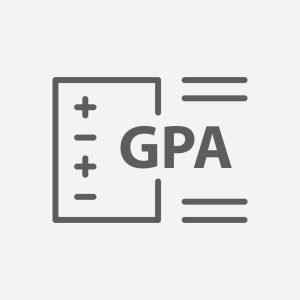
Is It Possible to Get a 5.0 GPA? Insights and Tips

The 7 Best Product and Industrial Design Schools in the US

How to Get into Columbia University: Admission Requirements and Tips

Everything You Need to Know About the IB Grading Scale

The 7 Best Colleges for Figure Skating

How to Get into Princeton: Admission Requirements and Tips

Understanding Restrictive Early Action at Harvard

How to Write an Effective Appeal Letter for College: Tips + Sample

How to Get into Harvard: Admission Requirements and Tips

How To Succeed In The UCLA Premed Track

Carnegie Mellon University: Weighing the Pros and Cons

The Best Colleges for Pre-Med

15 Business Internships for High School Students
Leave a comment cancel reply.
Your email address will not be published. Required fields are marked *
Save my name, email, and website in this browser for the next time I comment.
Recent Articles

Is Lehigh University a Good...

How to Succeed in the...

What Is Sorority Pledging and...

Is It Possible to Get...

The 7 Best Product and...

How to Get into Columbia...

Everything You Need to Know...

The 7 Best Colleges for...

How to Get into Princeton:...

Understanding Restrictive Early Action at...

How to Write an Effective...
Sign up now to receive insights on how to navigate the college admissions process..

Admissions Counseling
- Academic & Extracurricular Profile Evaluation
Copyright © AdmissionSight 2024
Privacy Policy - Terms and Conditions
Student guides and resources

First-year students
Below are the resources to help you apply to over 1000 schools with one application.
Your path to college
Discover checklists and advice to help you stay on track with your college preparation.
Step-by-step guide
This guide walks you through building and submitting your first-year application through Common App.
First-Year toolkit
Find information on everything from completing the activities section to getting letters of recommendation and more.
Transfer students
Common App is here for transfer students. We simplify the college application process by connecting you to a diverse range of public and private institutions in all 50 U.S. states and 20 countries.
Community college checklist
Tips for community college transfer students.
Military-connected checklist
Whether you're starting college or completing your degree, we're here to help. Use this checklist to explore your options and access important resources.
Transfer application guide
This guide walks you through building and submitting your transfer application through Common App.
Transfer toolkit
A collection of tips and best practices designed to help you complete your application successfully and on time.
Transfer resource center
The Common App Transfer Resource Center informs transfer students. It explains credit evaluations, credit for prior learning, and guaranteed admissions. It also provides information to help pregnant, parenting, and military-connected students with factors to consider when choosing a school.
- Applying to Uni
- Apprenticeships
- Health & Relationships
- Money & Finance
Personal Statements
- Postgraduate
- U.S Universities
University Interviews
- Vocational Qualifications
- Accommodation
- Budgeting, Money & Finance
- Health & Relationships
- Jobs & Careers
- Socialising
Studying Abroad
- Studying & Revision
- Technology
- University & College Admissions
Guide to GCSE Results Day
Finding a job after school or college
Retaking GCSEs
In this section
Choosing GCSE Subjects
Post-GCSE Options
GCSE Work Experience
GCSE Revision Tips
Why take an Apprenticeship?
Applying for an Apprenticeship
Apprenticeships Interviews
Apprenticeship Wage
Engineering Apprenticeships
What is an Apprenticeship?
Choosing an Apprenticeship
Real Life Apprentices
Degree Apprenticeships
Higher Apprenticeships
A Level Results Day 2024
AS Levels 2024
Clearing Guide 2024
Applying to University
SQA Results Day Guide 2024
BTEC Results Day Guide
Vocational Qualifications Guide
Sixth Form or College
International Baccalaureate
Post 18 options
Finding a Job
Should I take a Gap Year?
Travel Planning
Volunteering
Gap Year Blogs
Applying to Oxbridge
Applying to US Universities
Choosing a Degree
Choosing a University or College
Personal Statement Editing and Review Service
Clearing Guide
Guide to Freshers' Week
Student Guides
Student Cooking
Student Blogs
Top Rated Personal Statements
Personal Statement Examples
Writing Your Personal Statement
Postgraduate Personal Statements
International Student Personal Statements
Gap Year Personal Statements
Personal Statement Length Checker
Personal Statement Examples By University
Personal Statement Changes 2025
Personal Statement Template
Job Interviews
Types of Postgraduate Course
Writing a Postgraduate Personal Statement
Postgraduate Funding
Postgraduate Study
Internships
- Choosing A College
Ivy League Universities
Common App Essay Examples
- Universal College Application Guide
How To Write A College Admissions Essay
- College Rankings
- Admissions Tests
Fees & Funding
- Scholarships
- Budgeting For College
Online Degree
Platinum Express Editing and Review Service
Gold Editing and Review Service
Silver Express Editing and Review Service
UCAS Personal Statement Editing and Review Service
Oxbridge Personal Statement Editing and Review Service
Postgraduate Personal Statement Editing and Review Service
You are here
- Choosing A Major
- Ivy League Universities Guide
- USA College Fees
- What is the Common App?
- Filling Out The Common Application
- Common App Deadlines
- Common App FAQs
Common App Essay Prompts
Choosing a common app essay topic, common app essay brainstorming.
- Writing The Common App Essay Introduction
- Writing The Common App Essay Conclusion
Common App Essay Format
Common app essay structure, common app essay word limit.
- Common App Essay Editing
Common App Essay Tips
Common app essay faqs.
- How To Write A College Essay
- College Essay Examples
- Online Degrees
- Applying For College Graduation
- Graduate School
- Applying to UK universities
The Common App Essay Guide

What are the prompts for the Common App in 2022-23?
Find out more

How to choose which of the seven topics provided to write your essay on.

How to carry out a successful brainstorming session to kick-start your essay writing.
Common App Essay Introduction

How to write an introduction to your essay that will grab the admission tutor’s attention.
Common App Essay Conclusion

Make your essay stand out from the crowd with a memorable conclusion.

Read some example Common App essays to inspire you and get your creative side in gear.

How to format your essay correctly and avoid any errors when uploading your essay.

How to plan the structure of your essay and produce something that flows well throughout.

Find out the word limit for a Common App essay, and how to stick to it.
Editing your Common App Essay

How to edit your final essay ready for submission.

Further information on how to produce a winning Common App essay.

Answers to popular queries about the Common App essay.
What are the common app essay prompts for 2022?
The common app essay prompts for 2022-23 are:
1. Some students have a background, identity, interest, or talent so meaningful they believe their application would be incomplete without it. If this sounds like you, please share your story.
2. The lessons we take from obstacles we encounter can be fundamental to later success. Recount a time when you faced a challenge, setback, or failure. How did it affect you, and what did you learn from the experience?
3. Reflect on a time when you questioned or challenged a belief or idea. What prompted your thinking? What was the outcome?
4. Describe a problem you’ve solved or a problem you’d like to solve. It can be an intellectual challenge, a research query, an ethical dilemma — anything of personal importance, no matter the scale. Explain its significance to you and what steps you took or could be taken to identify a solution.
5. Discuss an accomplishment, event, or realization that sparked a period of personal growth and a new understanding of yourself or others.
6. Describe a topic, idea, or concept you find so engaging it makes you lose all track of time. Why does it captivate you? What or who do you turn to when you want to learn more?
7. Share an essay on any topic of your choice. It can be one you’ve already written, one that responds to a different prompt, or one of your own design.
How do I choose a common app essay topic?
To choose the best common app essay topic for you, follow our recommended steps:
- Read through the topics carefully
- Make some notes on what you could write about for each prompt
- Seek advice from family and friends to get their thoughts
- Expand your ideas by writing down a few more sentences for each topic.
Hopefully this should give you an idea of which prompt you feel you could write most about.
This is the topic you should probably go with, as it's easier to write too much and cut it down, than not have enough to write about in the first place.
How should I start my common app essay?
Whichever common app essay prompt you have chosen, we suggest you start putting together your answer by doing some brainstorming.
For example, for prompt #1 you might think about any after school clubs or activities you're involved in, trips you have taken with your family or friends, and/or any hobbies you have and what you want to achieve from them.
Take a look at our common app brainstorming guide for more detailed advice on each prompt.
How do I write my common app essay introduction?
A great common app essay introduction should have a three way focus: grab the reader’s attention, highlight you as an individual and identify which topic you’re writing about. For example a good introduction could be: “ Last month I organized a street car wash for the special kids fund charity ”.
Make sure you are realistic and honest, and use active words to describe feelings and behaviours.
For more detailed advice, please read our common app essay introduction guide.
How do I write my common app essay conclusion?
To write a great common app essay conclusion, we recommend you:
- Make it memorable
- Include your future career plans
- Avoid making jokes or using other humour
- Ask for feedback from family, friends and teachers to see how it might be improved further.
For more detailed tips and advice, please see our common app essay conclusion guide.
Where can I look at some common app essay examples?
You can see some common app essay examples for all the current prompts here .
These should give you a good idea of what a successful common app essay looks like, and inspire you to write your own.
Please do not plagiarise any sentences or paragraphs from these examples - your essay should be your own work, written in your own unique voice.
It's possible your application will be penalised if you are caught copying someone else's work.
How do I format my common app essay?
Once you have a final, polished draft of your common app essay, you need to make sure it is formatted correctly.
To do this, we recommend you simply use a word processor to format it into clear, logical paragraphs.
This means you can also check your spelling, grammar and word count, before copying and pasting it into the common application form online.
Make sure you preview your essay to check you're happy with the formatting before clicking Continue, and remember that if you struggle to upload your essay correctly, try a different browser, e.g. Chrome, Firefox or IE.
How do I structure my common app essay?
To help you structure your common app essay, we recommend you:
- Make a plan of what you're going to include in each paragraph
- Start writing your introduction to set the scene
- Work through your paragraphs one by one and make sure they flow together nicely
- Round off your essay with a memorable conclusion that summarises your essay and explains your next steps after university.
For more detailed advice, please see our Structuring Your Common App Essay guide.
What's the common app essay word limit?
The maximum number of words you can submit for your common app essay is 650 . It must also be a minimum of 250 words .
If your essays do not adhere to these guidelines, you will not be able to submit your essay online using the common application system.
How do I edit my common app essay?
Since 2015/16, applicants can edit their Common Application essay as many times as they would like after submitting it (in previous years a maximum of three edits was allowed).
We recommend you follow these steps to edit your essay once you have a final draft in place:
- Check for spelling and grammar (don't just rely on a word processor for this, read it through yourself several times).
- Look at the punctuation - has it been used correctly throughout?
- See if all the paragraphs flow naturally together
- Does it make an impact on the reader and make them want to read the whole essay?
- Is it a maximum of 650 words long?
- Have you used active, rather than passive, language in your essay?
- Proofread it carefully.
For more detailed tips and advice, please see our common app essay editing guide.
Where can I find some common app essay tips?
For more advice on writing your common app essay, please read our tips and FAQs guide, which have lots more information to help you with this stage of the common application form.
Official Common App Essay Guide 2024-2025
We’ve spent the last few weeks breaking down the Common App essay prompt by prompt, and today we’re going to give you our ultimate guide to writing the Common App essay. There might be seven different prompts, but ultimately, all schools want the same thing from their applicants’ Common App essays: a story.
As you know (or if you don’t, strap in), the Common App essay might be the most important part of your college application. Yes, your grades and scores and activities and all of that stuff matters a lot, but the Common App essay is the one thing that actually shows schools who you are, and it goes to almost every school on your list. So, (and not to put the pressure on too hard because we know that if you’re here, you’re a Type A nutjob like we are and are fully aware of the weight of this essay) the Common App essay needs to be perfect. So let’s talk about what the Common App essay wants of you:

In 650 words, synthesize everything about yourself. KIDDING.
College admissions officers also are reading hundreds of these a day, and you want to take into account that most kids do not read our wonderful blog and therefore are not heeding our advice and are writing about those cliche things we tell our clients to avoid. You shouldn’t write an essay that brags about your accomplishments, tell a story about someone who isn’t you, or talk about something that’s already in your Common App activities section. You also don’t have to write about the worst day of your life or the traumas or hardships you’ve faced just to get into college. You are more than the challenges you’ve dealt with, and if there’s something you absolutely need to tell schools in order to give them important context, you can put it in the additional information section .
2024-2025 Common App Essay Prompts
Before we get into how to write the Common App essay, let’s rapid-fire through each prompt and give you our hot take on whether or not it’s worth your time:
Prompt #1 : Some students have a background, identity, interest, or talent that is so meaningful they believe their application would be incomplete without it. If this sounds like you, then please share your story.
A lot of the things students immediately want to write about here are already covered in their activities section, belong in the additional information section, or should be better saved for fodder for the school-specific supplements you’ll have to write. If you do choose to write this one, it needs to lean into the super-unique.
Our verdict? Not our fav. Read more about Prompt #1 here .
Prompt #2 : The lessons we take from obstacles we encounter can be fundamental to later success. Recount a time when you faced a challenge, setback, or failure. How did it affect you, and what did you learn from the experience?
This one is great because it literally begs you to tell a story! A word of warning, many students often want to write about those additional information-y type things here, like a trauma, disability, learning differences, or why their grades weren’t strong. Avoid that with this prompt. Also, a lot of students spend too much time self-flagellating about the failure and not enough time on the growth!
Our verdict? This one’s pretty good as long as you follow our advice .
Prompt #3 : Reflect on a time when you questioned or challenged a belief or idea. What prompted your thinking? What was the outcome?
This prompt feels like a trap. Not that you can’t write a good essay for it, but this is one of those questions that a lot of school supplements are going to ask you too, and you don’t want to burn material. We also see a lot of students answer this one and they either write about a social issue or cause instead of writing about themselves, or they write something that makes them look ignorant or biased, and we don’t want that for y’all! If you do write this one, you’ll want to lean into less serious beliefs or ideas that you’ve challenged.
Our verdict? We strongly recommend passing on this one, but we have some tips if you choose to forge forward.
Prompt #4 : Reflect on something that someone has done for you that has made you happy or thankful in a surprising way. How has this gratitude affected or motivated you?
The newest prompt, added in the wake of COVID-19, is actually one we really like. Common App essays should be positive! The biggest pitfall we see students make with this one is writing about someone else instead of themselves, and the Common App essay should be what? About ourselves, that’s right. If you have a nice story about someone following your love language or someone inspiring your new hobby, go for it.
Our verdict? We like this one! But make sure to heed our advice .
Prompt #5 : Discuss an accomplishment, event, or realization that sparked a period of personal growth and a new understanding of yourself or others.
This one also feels like a trap!! Most of what you all want to write about for this one will either be already covered elsewhere in your application, should be in additional information, or would be better used as fodder for supplemental essays. If you do write #5, focus on smaller things, like a personal goal you set and achieved or how you fell into your newest quirky hobby.
Our verdict? Again, not our favorite one, but not impossible if you listen to our words of wisdom !
Prompt #6 : Describe a topic, idea, or concept you find so engaging that it makes you lose all track of time. Why does it captivate you? What or who do you turn to when you want to learn more?
This prompt should be all about the unexpected, and we love it. If you’re a jock who loves to ballet dance, or you’re a cheerleader who goes to Star Trek conventions, or a tuba player who moonlights as a metal drummer, those contradictions should be highlighted here. Big thing to remember is do not write about your college major .
Our verdict? This might be our favorite prompt that isn’t Prompt #7 (our true favorite prompt). We love it, and we have advice for you .
Prompt #7 : Share an essay on any topic of your choice. It can be one you've already written, one that responds to a different prompt, or one of your own design.
Oh Prompt #7, how we love you. This open-ended prompt gives you the freedom to sidestep all the things you don’t like about the prompts above and instead focus on the things you do want to answer. However, do not send them an essay you’ve already written, especially if it’s a school paper. This is not just a writing sample–it’s an open space for you to humanize yourself.
Our verdict? 10000% absolutely, this is the prompt all our clients answer. More on it here .
Writing the Common App Essay 2024-2025
Remember, you only have 650 words! You can’t boil down the essence of who you are or tell an epic life story. Instead, you want to focus on the things about yourself that cannot be quantified or revealed through the rest of your application. If you’re applying with all As, a nearly perfect test score, and a list of activities that would put Leslie Knope to shame (are the youths still watching Parks and Rec?), admissions counselors will be able to tell you’re hardworking or ambitious or driven or dedicated, etc. What admissions officers don’t know from that list of stats is how funny you are, or how you do magic at little kids’ birthday parties, or how your favorite thing in the world is grilling the perfect steak. Go through the prompts above and see if any of them really ~speak to you~ in particular, or if any stories come to mind.
If you’re really stuck, you can also ask your friends and family to give you a list of five or so words they’d use to describe you. Once you get these lists from a few friends, you’ll notice some overlap in the words people use, and this might also help a certain story come to mind. Think about the rituals or traditions you take part in, or your perfect Sunday night, or even look around your room for inspiration. You can even take a look at some sample essays that past clients have written, to get some ideas of what you could talk about.
If you have your idea, you’ve honestly gotten through the hardest part. Brainstorming the perfect Common App essay is a challenge, and if you have a good idea that you’re excited about, the next step shouldn’t be so difficult. Now, it’s time to write.
If you take one thing away from this blog post, let it be this: your Common App essay should be a story with a clear beginning, middle, and end.

Your essay's opening should immerse the reader in the vivid sensory details, placing them right in the middle of your scene. If you’re telling a story about the thrill of the hunt in a thrift store, think about what you can see, hear, smell, touch, and taste—incorporate all those sensory elements. Is it a little basement-y in there? How do the clothes feel in your hands? Is there music playing? You also might want to identify a problem or crisis you need to solve. Are you there to find something specific? In a race against time to find your prom dress? Maybe you locked eyes with another thrift store regular and are in an imaginary competition with them. Your intro shouldn’t just set the scene, but it should give your reader a reason to stick around and be invested in your story.
In the essay's middle, keep the momentum going. Are you there hunting for a specific thing? Maybe you can liken it to an adventurer hunting for an elusive rare animal. Maybe you’re almost at your wit’s end, especially as you sit in the parking lot, drenched in sweat, looking through the piles of clothes. Maintain the sensory-rich language you used in the beginning to keep the reader engaged. Maybe an advancement in the story has occurred, like you reached for the same thing as someone else, and now you have to talk your way out of it.
Your conclusion should have a satisfying resolution. While not all real-life stories end happily ever after, your Common App essay should. If you aren’t writing a story with a happy ending, start over! Reflect back on your introduction—has the conflict been resolved? Did you find that holy grail item? The conclusion should tie up everything nicely.
Once you have a draft, it’s time to edit. Read your essay out loud to spot any awkward or stiff sections and make the necessary edits. It can even be helpful to retype the entire document to catch errors or improve phrasing. Go through this editing process several times before getting feedback from a trusted friend, parent, teacher, or mentor. Be mindful not to overwhelm yourself with too many opinions—one or two reviewers should be fine.
Now that your essay is polished, it's time to submit! Good luck!
We are experts in writing creative and unique college essays. If you need help brainstorming or writing your Common App essay, reach out to us today.

2024-25 Common Application Essay Prompts Guide
Looking for help with the 2024-25 Common Application Essay? Below CEA’s Founder, Stacey Brook, breaks down all you need to know about this year’s prompts.

Stacey Brook, Founder and Chief Advisor
Hello, students and parents of the future class of 2029! The time has come. The Common App essay prompts for 2024-25 have been released and—spoiler alert—they’re exactly the same as last year’s! 2024-25 college applicants, like those who came before them, will have seven (that’s right, seven) essay prompts to choose from. This wide range of questions, meant to inspire candidates in their search for compelling personal stories, is ideal for exploring essay topics of all tones, styles, and subjects. Students’ personal stories and feats of insight will again be relegated to 650 words, which equates to a little more than a single-spaced page. We happen to believe this is the perfect amount of space in which to make a quick and powerful impression with admissions (or write a comprehensive fan letter to Beyoncé), so as far as we’re concerned, you’re golden.
Because we are committed to getting you the most timely and comprehensive essay advice on the interweb, we have made a guide to help you navigate the ins and outs of all seven prompts.
Before you dive (or cannonball!) into our pool of essay advice, we’d like to leave you with one last little secret: the prompts are not actually as important as you think they are . In fact, in our instructional YouTube videos and one-on-one advising , we encourage applicants to root around for their most meaningful stories first and consider the prompts later. This is a process we call the Backwards Brainstorm, and you can learn more about it here . For now, the main point we want you to take away is this: The prompts don’t really matter. What matters is the story you want to tell. (And that you floss at least every other day—trust us, it will pay off in the long run.) We are as sure as ever that every single one of you has a valuable story (or two or twelve!) to communicate to admissions. All it takes is ample time for reflection and a little writerly elbow grease to find it. So take a peek at what the 2024-25 application has in store for you, absorb what these prompts are really asking, and then forget about them (really!) as you explore the endless possibilities.
How To Write Common App Prompt #1: The Background Essay

PROMPT #1: Some students have a background, identity, interest, or talent that is so meaningful they believe their application would be incomplete without it. If this sounds like you, then please share your story.
The Common App’s Prompt #1 is the Old Faithful of essay questions. It’s been around for years and offers all the flexibility an applicant could ask for from a prompt, with just enough direction to get those creative fountains flowing. Focus on the key words, “background,” “identity,” “interest,” and “talent,” and use them as launch points for your brainstorming. What about your history, personality, hobbies, or accomplishments might be worth highlighting for an admissions officer? It can be something as small as seeing an episode of a television show (are you living life in the Upside Down?) or as large as the struggle of moving to a foreign country (especially if you had to leave behind grandma’s cooking). The most important thing to consider for this prompt is that your subject and/or perspective is dynamic and specific to you and who you are and no one else.
Some questions to ask yourself as you brainstorm:
- What about my history or background sets me apart from my peers?
- How do I define myself? How do the people who are closest to me define me?
- What have I achieved that has been integral in molding my character and ambitions?
- What, in my seventeen years on this earth, has helped shape the person I am today?
And some examples to consider:
- Has your family’s love of food and your resultant adventurous tastes and culinary curiosity allowed you to connect with cultures from around the world?
- Does your crazy, dyed-blue hair define you?
- Did going to a Picasso exhibit inspire you to start an art collection that has since expanded beyond the borders of your bedroom?
- Have your yearly trips to see your extended family in China revealed something to you about your parents’ ability to overcome challenges and the work ethic you have absorbed as a result?
- What are the challenges and rewards of having same-sex parents? Or of being raised by your siblings? Or of being part of a family made up of stepsisters and stepbrothers?
Overall, this prompt is what we at College Essay Advisors call a “choose-your-own-adventure” prompt. It has historically served as a fabulous catch-all for subjects that don’t fit within the confines of the other prompt options. A recent addition to the Common App’s prompt selection now offers even more freedom to applicants (more on that later), but students should still think of Prompt #1 as a topic of immense choice, reeled in by a few helpful guidelines.
How To Write Common App Prompt #2: The Setback Essay

PROMPT #2: The lessons we take from obstacles we encounter can be fundamental to later success. Recount a time when you faced a challenge, setback, or failure. How did it affect you, and what did you learn from the experience?
We have always believed that essays about overcoming obstacles are most effective when they focus more on solutions than problems. Accordingly, Prompt #2 essays should be predominantly filled with a student’s response, outlook, and demeanor when presented with one of life’s many hurdles, rather than a detailed account of the hurdle itself. Applicants should aim to showcase qualities like resilience, determination, and humility. The obstacles you choose to explore can vary widely in nature, especially with the recent additions that allow students to explore challenges and setbacks in addition to failures. They can be as serious as being tormented by bullies, as ingrained as the financial issues that have plagued your family for years, or as seemingly pedestrian as a mistake that costs you a tip while waiting tables. While the possibilities are almost endless, students should be careful not to choose challenges that may seem trite (the inability to achieve an A on an exam and/or secure tickets to that BTS concert) or that illustrate a lapse in good judgment (that time you crashed your car or ate 15 bags of Cheetos in one sitting). Still, if you can isolate an incident of trial in your life and illustrate how you learned from it, this can be a rewarding prompt to explore.
Some key questions to consider:
- How do you deal with hardship?
- What qualifies as a challenge or setback in your life and world?
- Are you the kind of person who can rebound and turn every experience, good or bad, into one from which you can learn something? What experiences might illustrate this quality?
- What have been some of the major challenges you’ve encountered in your life? And was there a silver lining?
And a few examples to think about:
- Has a lifelong battle with stuttering ultimately increased your overall confidence and allowed you to participate in social activities and public forums without self-judgment?
- Did a parent’s fragile health situation challenge you to take on more responsibilities than the average teenager?
- Did a series of setbacks on your road to becoming a child actor introduce you to screenwriting, your professional goal and biggest passion?
- Did your failure to follow directions lead you to a botched home science experiment (root beer explosion!) and an appreciation for a balance of creativity and planned procedure?
Overall, try to keep these stories as positive as possible. Remember, these essays are not contemplative musings on your toughest times or reflections on the hiccups that populate everyday life (though these things can certainly be touched upon); they are about overcoming obstacles and refusing to submit to life’s greatest challenges.
How To Write Common App Prompt #3: The Challenge Essay

PROMPT #3: Reflect on a time when you questioned or challenged a belief or idea. What prompted your thinking? What was the outcome?
This remains one of the most challenging prompts of the Common App’s selection, even though it has become slightly friendlier with the addition of the option to discuss a time you questioned an idea instead of challenged one. This prompt requires a student to speak passionately about beliefs and ideology, which are often onerous subjects that can be difficult to mold into compact stories. It can be one of the hardest questions to steer in a positive, productive direction without traveling into preachy, overly didactic territory. This is also a more precarious prompt than most in that students need to carefully assess the risks of espousing beliefs that might be polarizing for the readers of their applications.
That said, a response to this prompt can be incisive and deeply personal, as it was for a student who stood up to her parents’ old-fashioned outlook on feminism. Applicants who can articulate their thoughts and feelings while showcasing malleability and willingness to thoughtfully consider the ideas of others will likely stand out as valuable additions to any campus. If this prompt jumps out at you because you have a very specific story to tell or opinion to voice, run with it!
Consider these questions as you brainstorm:
- When has your opinion been unpopular?
- Why are you the kind of person who is willing to stand up for what you believe in?
- What is important to you on a fundamental level of morals and values?
- How passionate are you about the things you believe in?
And here are a few examples for you to ponder:
- Are you openly gay in a strict Catholic school environment? What has that meant for your self-esteem and personal relationships?
- Did you work as an intern on a political campaign caught at the center of a scandal? How did you react?
- Did you challenge the idea of horror as a throw-away genre by executing an extensive research paper on the subject, launching a horror movie club at school, and arranging the most elaborate, best-received haunted house your neighborhood has ever seen?
Your essay does not have to be focused around a fundamentally serious or groundbreaking issue (see the horror genre example above). What matters most when responding to this prompt is that you have strong convictions about the belief or idea you are trying to convey, and that you examine the personal effects of this ethos on your life and world. For this reason, Prompt #3 can be a great vehicle for showcasing your consideration, persuasive skills, and passions to admissions.
How To Write Common App Prompt #4: The Gratitude Essay

PROMPT #4: Reflect on something that someone has done for you that has made you happy or thankful in a surprising way. How has this gratitude affected or motivated you?
We love Prompt #4, which asks students to talk about a time when they felt gratitude. So many of the Common App prompts set students up to talk about what they do for others. Just as important, however, is how applicants react and respond when they are the recipients of something meaningful themselves. Gratitude is quickly becoming a quality individuals are encouraged to connect to and reflect on regularly, hence the popularity of gratitude journals and exercises. (Brainstorming method alert!) This question is meant to offer students the opportunity to reflect on the role gratitude plays in their lives, as well as how the practice of giving thanks and acknowledging life’s gifts motivates and inspires them.
Students should think about times when they have felt acknowledged, heard, and seen. Moments when they have felt that swelling in their chest, as their heart grows three sizes. Think creatively about what you appreciate in your life. It can be a physical gift, an action, or even just a set of feelings projected in your direction. You can be intimately familiar with the person who has inspired your gratitude, or reflect on the actions of a near stranger or even a public figure who has impacted your life for the better. Just remember that this essay needs to focus on how you process, appreciate and draw inspiration from the action of others, so make sure your response is focused on YOU. Ultimately, admissions wants to know more about how you relate to others in the world, and how you repurpose good intentions.
Some questions to ponder:
- How do you like to pay it forward in your daily life?
- How (and why!) do you express gratitude and appreciation?
- What are your favorite random acts of kindness?
- Has anyone ever restored your faith in humanity? How?
- Do you believe in karma? Why?
And examples to use as food for thought:
- Did a kind gesture from a stranger inspire you to keep paying it forward? How do you do so and what’s become of your wholesome intentions?
- Have you ever received an unexpected gift from someone? Why was this gift so meaningful to you? How did you express your gratitude?
- Do you feel appreciative of a public figure for the work they have done to raise awareness about issues that are important to you? How do you give back?
It’s important that the story you choose to tell is linked to your life and world in a meaningful way. The whole purpose of this exercise is to reveal something valuable about yourself to admissions, so be sure to link the act of kindness you highlight to your passions, actions, or aspirations. And don’t forget to detail how this gift affected you then and still motivates you now. Once you’ve settled into your prompt of choice, following instructions to the fullest and answering all parts of each question are critical.
How To Write Common App Prompt #5: The Accomplishment Essay

PROMPT #5: Discuss an accomplishment, event, or realization that sparked a period of personal growth and a new understanding of yourself or others.
There are a few things to note when unpacking this prompt. Keep in mind that the words “accomplishment” and “event” leave themselves open to interpretation; thus, an essay inspired by this question can tackle anything from a formal event to a very small occurrence. A formal event or accomplishment might include anything from obvious landmarks like birthdays or weddings to achievements like earning an award or receiving a promotion. More informal examples might include something as simple as meeting a special person in your life, taking a car ride, or eating a particularly meaningful meal. We have often found that smaller, less formal events make for more surprising and memorable essays; but as with any of the other prompts, as long as you can answer with originality and put a unique twist on your subject matter, all ideas are fair game.
Your reflection on what you have learned and how you have grown will be a source of great insight for admissions, and you want to make sure your essay highlights the intangible qualities that don’t show up anywhere else on an application.
Some other things to consider:
- How do you react to periods of transition? What inspires a change in your perspective?
- When have you had a “eureka” moment, and how has it impacted the way you lived your life thereafter?
- What were the moments in life that fundamentally changed you as a person?
- When did you learn something that made you feel more adult, more capable, more grown up?
For example:
- Did your expansion of a handmade stationery hobby into a full-fledged business give you the motivation and wherewithal to combat the effects of a debilitating illness?
- Have you learned to love the football team playback sessions that force you to routinely examine your mistakes, welcome constructive criticism and point yourself toward self-improvement?
- Did a summer-long role as the U.S. President in a mock government and diplomacy exercise bring out leadership skills you never knew you had?
- What did playing bridge at a senior citizens’ home each week show you about the value of enjoyment over competition? How did this change the way you interact and connect with others?
The most important things to keep in mind when searching for these moments are the elements of growth, understanding, and transformation. The event, accomplishment, or realization you discuss should be something that helped you understand the world around you through a different, more mature lens.
How To Write Common App Prompt #6: The Passion Essay

PROMPT #6: Describe a topic, idea, or concept you find so engaging that it makes you lose all track of time. Why does it captivate you? What or who do you turn to when you want to learn more?
One could argue that college is largely about the pursuit of knowledge, so you can imagine it would be quite appealing for an admissions officer to have a meter for your level of self-motivated learning, along with a better understanding of how and why you choose to pay attention to the things that intrigue you. This is a window into your brain: how you process information, how you seek out new sources of content and inspiration. How resourceful are you when your curiosity is piqued to the fullest? The answer to this prompt should also reveal something to admissions about the breadth or depth of your interests. For example, if you’re interested in studying astrophysics, you might choose to discuss a concept that shows how far your exploration of the sciences truly reaches. How consumed are you by this passion you are choosing to pursue academically?
- What floats your boat? Do you have an appetite for knowledge about something specific? Or, as we asked in the breakdown for Prompt #1: what do you love, and why do you love it?
- What lengths have you gone to in order to acquire new information about or experiences related to a topic of interest?
- How do you typically seek to enrich your knowledge when something appeals to you? Do you have a favorite corner of the library (or internet)? A mentor who is open to answering your burning questions?
- What about the process of learning, especially about subjects that call out to you, is satisfying?
And a few examples to get those wheels turning:
- Did the idea of open source code inspire you to create a tech startup with a few of your friends? What new projects within the company are you most excited to work on?
- Did getting an internship at an accounting firm inspire you to start each day by checking the markets? Do you participate in a mock trading club that allows you to use the expertise you gather from culling through economic news and analysis online and beyond?
- On any given Sunday morning, could we find you lost in the literature of Kurt Vonnegut or immersed in a collection of stories by Isaac Asimov?
- Have you taught yourself to master the compositions of Mozart and Beethoven and break down the songs of Bruno Mars by ear in your spare time?
- Do you have an obsession with pizza so intense it led you to study the culinary arts and keep a pizza journal that documents the 700+ slices you’ve consumed thus far? (We know someone who did this—really.) How is pizza-making more scientific and/or artistic than the average person realizes?
Whatever you’re into, embrace it. Show your feathers. Let your freak flag fly (within reason, obvs). This prompt is about the pursuit of knowledge and your desire to proactively challenge yourself. Whether you are devouring the classics on your Kindle or nerding out over the perfect cheese for calzone-making, your attachment to a subject may inspire admissions to want to learn more about it…and you.
How To Write Common App Prompt #7: Topic of Your Choice

PROMPT #7: Share an essay on any topic of your choice. It can be one you’ve already written, one that responds to a different prompt, or one of your own design.
Feared by some, coveted by others, and legendary in its existence; regardless of where you stand on the issue, this was a newsworthy addition to the 2017-18 Common App prompt choices. For years, students have been treating Prompt #1 (which asks about your background, etc.) as topic of your choice *light*—it wasn’t exactly the delicious, full-freedom version students were looking for, but they were able to make it work in a pinch. Applicants around the world likely let out a big exhale when they saw they could still serve up a big scoop of Prompt #7 to admissions in previous seasons. And this year will be no different.
Some questions to consider as you brainstorm, in addition to all of the ones we’ve posed thus far:
- What do you want admissions to know about you that they wouldn’t be able to glean from your transcript, test scores, or teacher recommendations?
- What are the stories that come up over and over again, at the dinner table or in the cafeteria with your friends, that might give admissions some insight into who you are and what is important to you?
- If you had ten minutes alone in a room with an admissions officer, what would you want to talk about or tell him or her about yourself?
- What would you bring to a college campus that no one else would or could?
And a few examples of potential subjects and their related (custom!) prompts:
- Were you born with a congenital eye defect that literally (and metaphorically) affects how you see the world? ( Q: How is your perspective on the world unique?)
- Do you spend 40 minutes each Friday night tutoring a class of elementary school students in Cambodia? How has that impacted the way you mete out your time and assess your commitments? ( Q: What is the value of 40 minutes?)
- Did your parents let your older brother choose your name? What was his inspiration? (Please tell us your name is Gaston .) What does your name represent for you? How has it impacted your interactions in the world? ( Q: What’s in a name?)
While being able to write about whatever you wish sounds great in theory, some students find—especially at the beginning of the brainstorming process—that they are debilitated by the “topic of your choice” option because it offers too much choice. If that is the case, fear not! Use some of the other prompts as starting points for your brainstorming and free writing journeys. Begin keeping a diary ( now! ) and jot down subjects, events, and memories as they float to the surface. Now that you have read our handy-dandy prompt guide and understand what admissions is looking for from these prompts, you could very well have a notebook filled with ideas that are ripe for expansion by the time you sit down to write.
So don’t worry about having too many ideas, or not having enough ideas, especially at the beginning of the topic selection process. Once you figure out what you’d like to say (and maybe even after you draft the crux of the essay itself), see if your concept fits one of the first six prompts. Trying to tailor your essay to a more specific prompt option may inspire an interesting spin on the story you are trying to tell—one you may not have thought of otherwise. Form influences content. If, after careful consideration, your magic essay topic does not work within the confines of Prompts 1-6, you are in luck. The glorious, all-encompassing Prompt #7 will be here to catch you.
With some brainstorming and hard work, every student can uncover a story worth telling in response to one of these prompts. Remember, admissions wants a glimpse of your personality, your values, your interests and your passions. They want to get an idea of what kind of attitude and energy you will bring to the classroom and campus life.
So take a few minutes to probe your memories, collect your stories and strike up that creative core. Every student has a fabulous essay inside of them – these prompts can help you find yours.
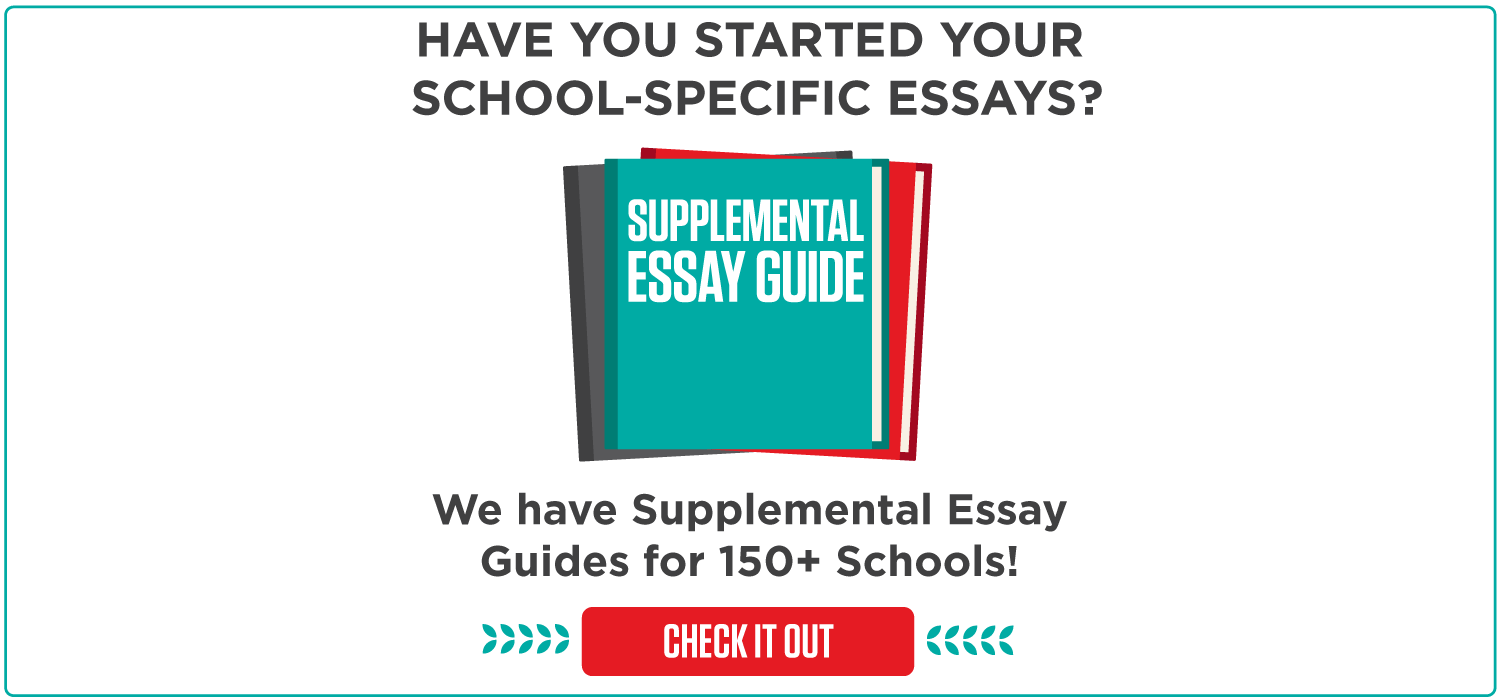
Browse by Prompt
Contact us for information on rates and more!
- I am a * Student Parent Potential Partner School Counselor Private College Counselor
- Name * First Last
- Phone Type Mobile Landline
- Street Address
- Address City State / Province / Region Afghanistan Albania Algeria American Samoa Andorra Angola Anguilla Antarctica Antigua and Barbuda Argentina Armenia Aruba Australia Austria Azerbaijan Bahamas Bahrain Bangladesh Barbados Belarus Belgium Belize Benin Bermuda Bhutan Bolivia Bonaire, Sint Eustatius and Saba Bosnia and Herzegovina Botswana Bouvet Island Brazil British Indian Ocean Territory Brunei Darussalam Bulgaria Burkina Faso Burundi Cabo Verde Cambodia Cameroon Canada Cayman Islands Central African Republic Chad Chile China Christmas Island Cocos Islands Colombia Comoros Congo Congo, Democratic Republic of the Cook Islands Costa Rica Croatia Cuba Curaçao Cyprus Czechia Côte d'Ivoire Denmark Djibouti Dominica Dominican Republic Ecuador Egypt El Salvador Equatorial Guinea Eritrea Estonia Eswatini Ethiopia Falkland Islands Faroe Islands Fiji Finland France French Guiana French Polynesia French Southern Territories Gabon Gambia Georgia Germany Ghana Gibraltar Greece Greenland Grenada Guadeloupe Guam Guatemala Guernsey Guinea Guinea-Bissau Guyana Haiti Heard Island and McDonald Islands Holy See Honduras Hong Kong Hungary Iceland India Indonesia Iran Iraq Ireland Isle of Man Israel Italy Jamaica Japan Jersey Jordan Kazakhstan Kenya Kiribati Korea, Democratic People's Republic of Korea, Republic of Kuwait Kyrgyzstan Lao People's Democratic Republic Latvia Lebanon Lesotho Liberia Libya Liechtenstein Lithuania Luxembourg Macao Madagascar Malawi Malaysia Maldives Mali Malta Marshall Islands Martinique Mauritania Mauritius Mayotte Mexico Micronesia Moldova Monaco Mongolia Montenegro Montserrat Morocco Mozambique Myanmar Namibia Nauru Nepal Netherlands New Caledonia New Zealand Nicaragua Niger Nigeria Niue Norfolk Island North Macedonia Northern Mariana Islands Norway Oman Pakistan Palau Palestine, State of Panama Papua New Guinea Paraguay Peru Philippines Pitcairn Poland Portugal Puerto Rico Qatar Romania Russian Federation Rwanda Réunion Saint Barthélemy Saint Helena, Ascension and Tristan da Cunha Saint Kitts and Nevis Saint Lucia Saint Martin Saint Pierre and Miquelon Saint Vincent and the Grenadines Samoa San Marino Sao Tome and Principe Saudi Arabia Senegal Serbia Seychelles Sierra Leone Singapore Sint Maarten Slovakia Slovenia Solomon Islands Somalia South Africa South Georgia and the South Sandwich Islands South Sudan Spain Sri Lanka Sudan Suriname Svalbard and Jan Mayen Sweden Switzerland Syria Arab Republic Taiwan Tajikistan Tanzania, the United Republic of Thailand Timor-Leste Togo Tokelau Tonga Trinidad and Tobago Tunisia Turkmenistan Turks and Caicos Islands Tuvalu Türkiye US Minor Outlying Islands Uganda Ukraine United Arab Emirates United Kingdom United States Uruguay Uzbekistan Vanuatu Venezuela Viet Nam Virgin Islands, British Virgin Islands, U.S. Wallis and Futuna Western Sahara Yemen Zambia Zimbabwe Åland Islands Country
- Which best describes you (or your child)? High school senior High school junior College student College grad Other
- How did you find CEA? Internet Search Podcast New York Times Guidance counselor/school Social Media YouTube Friend Special Event Delehey College Consulting Other
- Common App and Coalition Essays
- Supplemental Essays
- University of California Essays
- University of Texas Essays
- Resume Review
- Post-Grad Essays
- Specialized Services
- Waitlist Letters
- Private School Essays
- General College Counseling
- School list with priorities noted:
- Anything else we should know?
- Phone This field is for validation purposes and should be left unchanged.
- Our Approach & Team
- Undergraduate Testimonials
- Postgraduate Testimonials
- Where Our Students Get In
- CEA Gives Back
- Undergraduate Admissions
- Graduate Admissions
- Private School Admissions
- International Student Admissions
- Common App Essay Guide
- Supplemental Essay Guide
- Coalition App Guide
- The CEA Podcast
- YouTube Tutorials
- Admissions Stats
- Notification Trackers
- Deadline Databases
- College Essay Examples
- Academy and Worksheets
- Waitlist Guides
- Get Started
How to Write the 2022-23 Common App Essay
The recording will load in a moment., about this livestream.
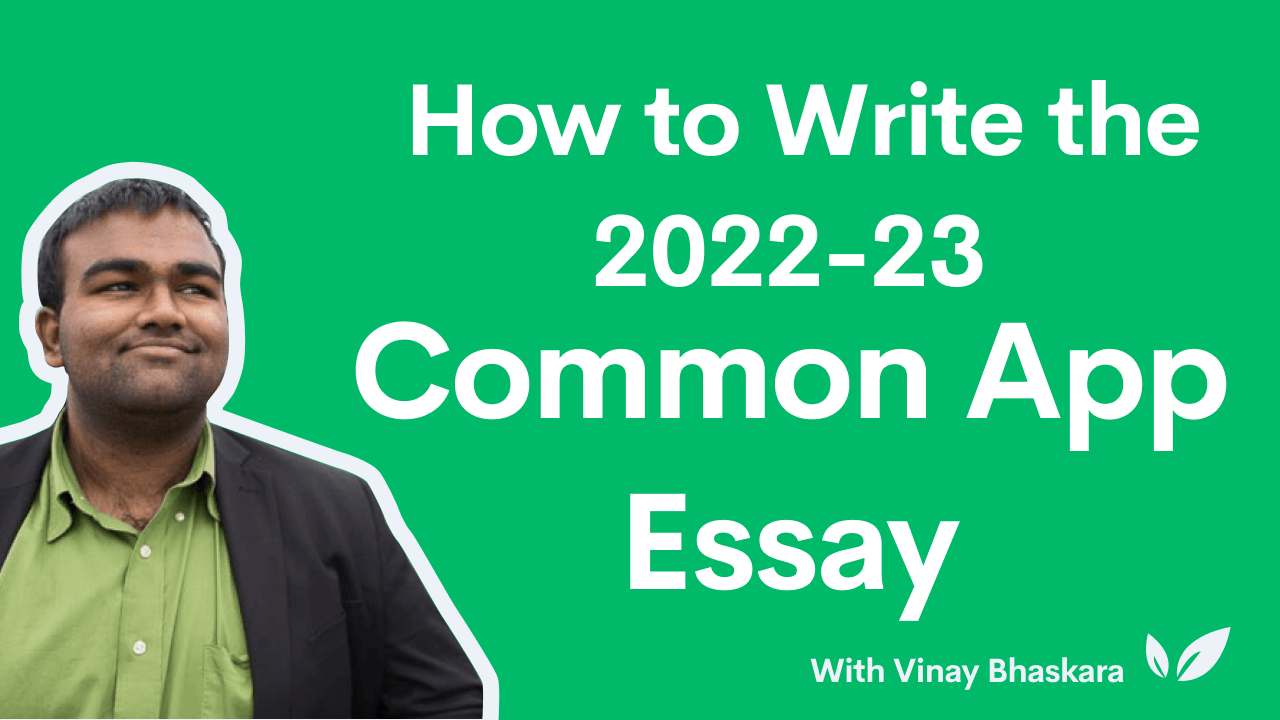
Learn how to write an awesome Common App essay for every single prompt.
Vinay will provide an in-depth breakdown of each of the Common App essay prompts, discussing how to write a great essay in response to each one. He’ll also share his take on the essays and topics you shouldn’t write about for each prompt.
Vinay Bhaskara
Other recordings by vinay bhaskara.
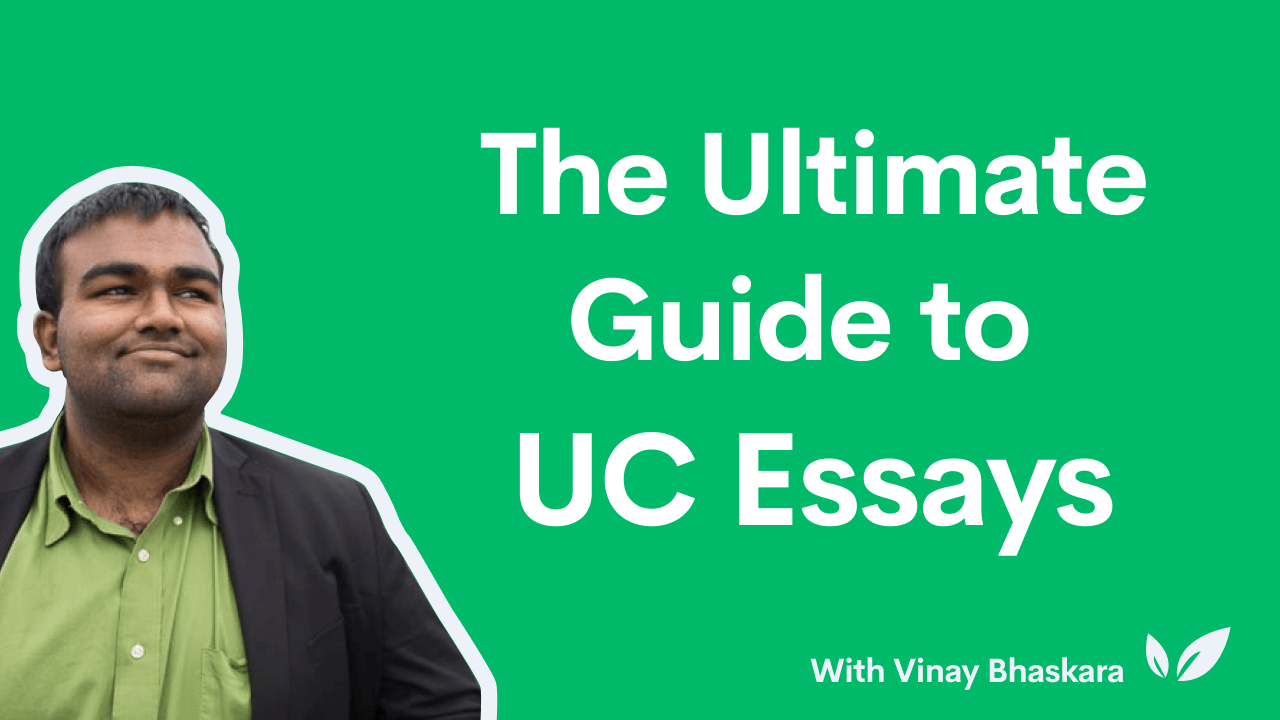
The Ultimate Guide to UC Essays

Parents Series: What parents need to know about college admissions in 2022

Elite Admissions Series: How to get into an Ivy League college
.jpg)
New Bootcamp Alumni Story: QA Engineer at Ubisoft (Gaming)

Make the Most of Your Summer Break with the NSLC!
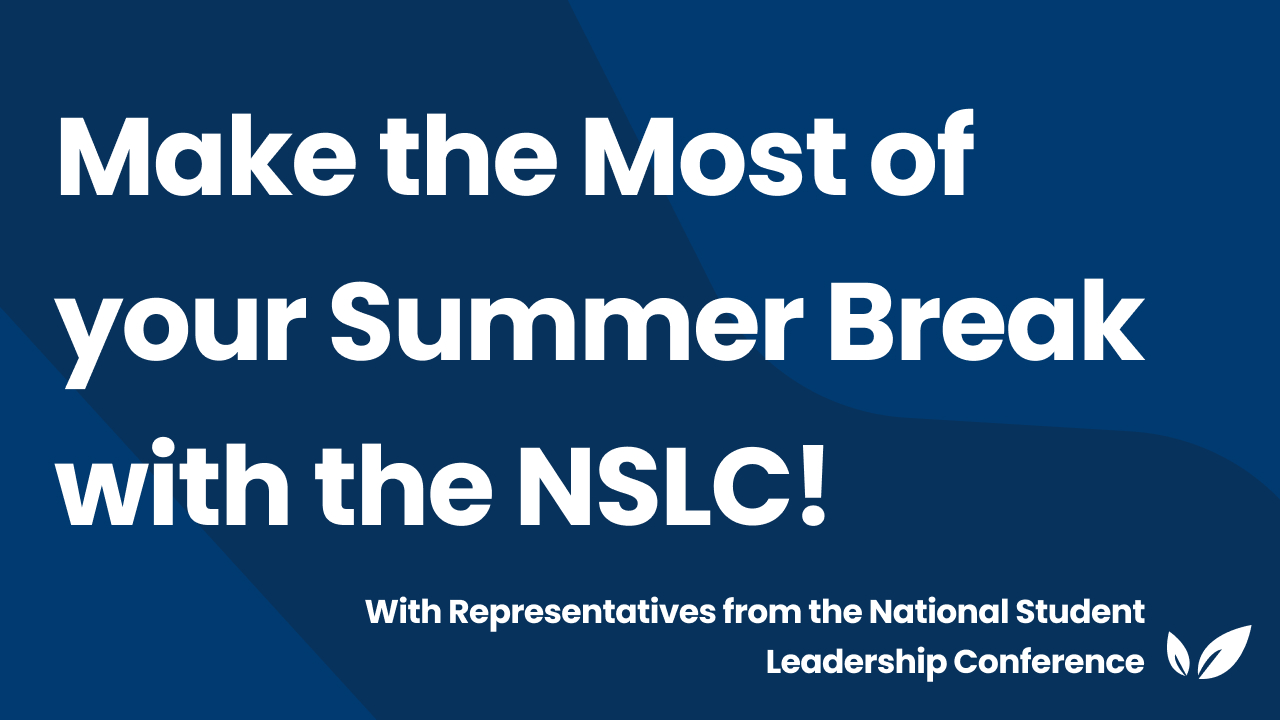
Popular recent recordings
.jpg)
Bootcamp Alumni: UX Design at Apple/Google…

From High School to UX Design Bootcamp to Product Designer at Cloud Campaign

College + Bootcamp Success Story: Sr Software Engineer at Disney

How to Write Your Best College Essay
What are your chances of acceptance?
Calculate for all schools, your chance of acceptance.
Your chancing factors
Extracurriculars.
A User’s Guide to the Common Application

As most students will agree, college applications take a lot of work to complete. The sheer volume of information you’re expected to provide can be very overwhelming, especially when multiplied by the 7, 10, or even 15 schools you’re planning to apply to.
Much of this information is also extremely repetitive. Every college will want to know where you live, who your parents are, and how well you did in high school. It’s likely that you’ll send the same recommendations to every college you apply to, and even essay questions may be similar from school to school. This is where the Common Application comes in.
Introducing the Common Application
The Common App originally came into being in 1975, when 15 private colleges began considering the repetitiveness of college application procedures. In the days of paper applications, filling out separate forms for each college by hand made applying to more than a few colleges a huge amount of work.
The original Common App schools developed a single application form to be used by all member schools. This application could be sent to a number of different schools, thus drastically reducing the workload for college applicants.
The Common App has continued to gain member schools over the years, and as of the 2019-2020 school year, it is now accepted by over 800 colleges and universities.
The Common App is now completed entirely online. Your basic application information is automatically copied to each member school with whom you choose to share it, meaning you only have to enter those details once. While many colleges choose to include a “supplement” with a number of application questions or writing prompts specific to that college, the submission process still takes place through the Common App.
Here at CollegeVine, we’re committed to helping students and their families understand the college application process. To that end, we present this brief user guide to the Common App. While this post will not cover every detail of the application process, it’s intended to provide you with an accessible, practical framework to help you understand the Common App, its online interface, and its main requirements.
Ready? Let’s dive in!
Step 1: Creating and Logging into your Common App account
To get started using the Common App, you’ll need to create a Common App account. Once your account is set up, you can monitor your application progress using the Dashboard, add schools to your list under My Colleges, fill out the actual application part of the Common App, and look up colleges through College Search. We’ll go over each of these sections of your account below.
To create an account, start on the Common App website . In the upper right corner of the main page, you’ll see white text that says “Create an Account.” Click on this button.

A menu will appear that asks you to identify yourself as either a first-year applicant, a transfer student, an educational professional, or a parent. Select the appropriate choice and then follow the prompts to create a password and fill in your contact information. Make sure to write down your password for future reference.
Once your account is created, you’ll be able to log back into it using your email address and password. Just head back to the Common App homepage and click on “Log In” in the upper right corner, choose the “Student” option when prompted, and enter your login information.
Step 2: Navigating the Dashboard
When you log into your Common App account, the first thing you see will be your Dashboard. You can also access your Dashboard at any time by clicking on the Dashboard tab at the top of the screen.
To use the Dashboard, you’ll need to add the colleges you intend to apply to. You’ll do this through the College Search feature, which allows you to search by location or name. If your college list is not yet finalized, you might use the additional filters to browse colleges according to state, distance from your home, testing policy, or application deadline. Add to your Dashboard the colleges you intend to apply to by clicking on the blue + sign next to the college name.
Once you add a college to your list, it will appear on your Dashboard along with an overview of your application progress and tasks to be completed. Your Dashboard serves to give you a quick glimpse of the requirements of the various colleges you’re planning to apply to.
In our example below, the student is applying to the schools you see listed on the left side of the page — Amherst College, Davidson College, and so on. Clicking on “show more details” provides you with a quick way to check what each school requires.
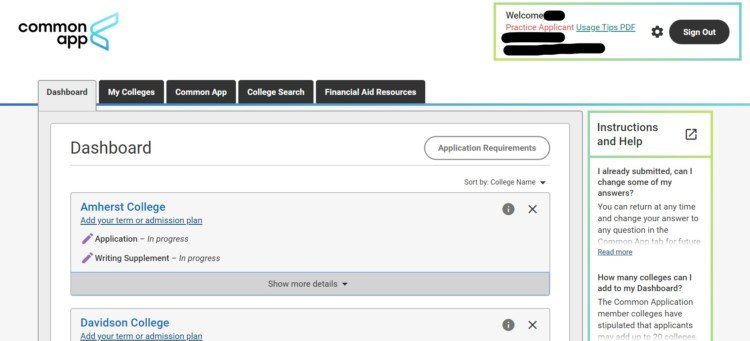
As you can see in this screenshot, there is an “Instructions and Help” box on the right side of the page. This box will appear throughout the Common App, but the frequently asked questions will change depending on what part of the site you’re looking at. If you have a question that isn’t shown, simply click where it says “Instructions and Help” to access more assistance.
Step 3: Using the My Colleges Portal
The My Colleges section of the Common App allows you to access information about each of your chosen colleges’ admissions requirements. You can get to the My Colleges section at any time by clicking on the My Colleges tab at the top of the screen.

As you can see from this screenshot, our student’s My Colleges page is showing more detailed information for the first college on the student’s list — in this case, Amherst College. The other colleges the student is applying to are listed along the left side of the page.
In order to show information for another college on your list, you’ll simply click the college’s name and a drop down menu will appear with details in the window to the right.
Your own My Colleges page will not show any colleges until you add some to your list, as described in the Dashboard section above. Once you add schools, the My Colleges page will show the schools you have selected.
The My Colleges page is also where you’ll access the parts of your college applications that are specific to each individual college. As you can see in the screenshot above, under the college’s name on the left side, you’ll see a number of items, including a heading “Questions” which will bring you to any supplemental materials required by that college.
As an example, below is a screenshot of the supplement for Amherst College. Clicking on the word “Questions” under “Writing Supplement” will take you to the following screen, where you’re provided with the prompts and instructions on how to complete them.
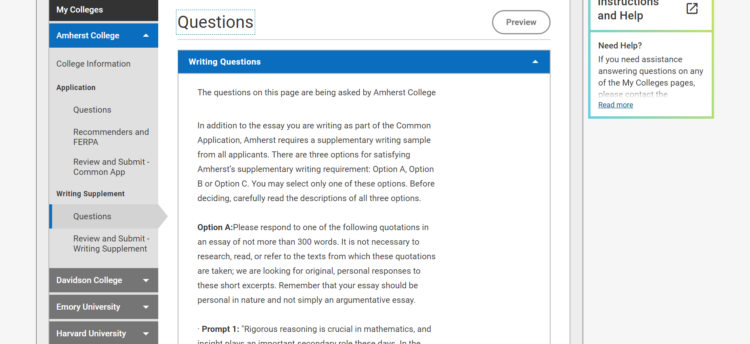
Every school’s supplement is different, and you must read the instructions for each carefully. Some schools don’t have a separate “Writing” tab and may have other headings. Make sure you take a careful look at any and all headings in this section to determine if there are more supplementary questions for you to answer — they might not all be immediately visible.
Reviewing the My Colleges tab is a good way to keep track of admissions information for the various colleges you’re interested in, but it doesn’t cover everything in terms of that school’s admissions practices, and it’s not a substitute for more in-depth research. Clicking on the blue link that says “College Website” in the “Links” section of your school’s information will take you to that school’s own admissions website, where you can find out more about their policies.
Step 4: Filling Out the Common App
The Common App section is where you’ll actually fill out the substance of your college applications. You can access it at any time by clicking on the Common App tab at the top of the screen.
A menu will appear on the left side of your screen with headers that include things like “Profile” and “Family”. For each of these sections, you’ll need to provide answers to a number of specific questions.
Some of these questions will be in multiple-choice format, and you’ll have to choose one option (or more, if specified). Others will ask you to enter certain small items of data, such as a name or phone number. Still more will require you to write out a longer answer, up to and including the personal essay, which we’ll cover in further depth in other blog posts.
If you’re unsure about how to answer some of these questions, you can visit the “Instructions and Help” section of the Common App website. Your guidance counselor or another school official may also be able to help.
These are the sections of your Common Application:

This section is where you’ll enter more detailed information about yourself. It includes sections like name, address, and demographics. Scroll down to see each section header, and click on the downward pointing triangle to open each menu and complete each field.
The Profile section also includes the Common App’s fee waiver request form, which you can learn more about on the CollegeVine blog in our post How to Receive a Common App Fee Waiver .
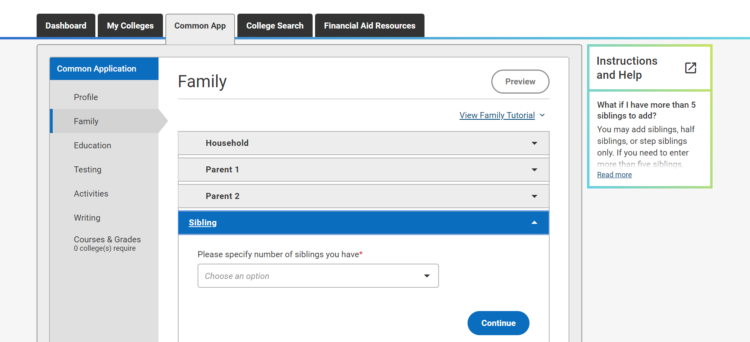
This section is where you’ll answer questions about your household, your parents, and your siblings. Again, you’ll scroll down to see each section header, and click on the downward pointing triangle to open each menu and complete each field.
We at CollegeVine have covered this topic in greater detail in the blog post Why Does the Common Application Ask Where my Parents Went to College?
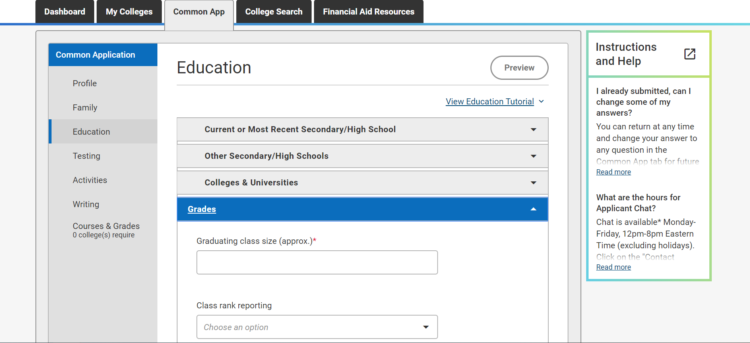
This section is where you’ll answer questions regarding your educational experiences, like what school(s) you’ve attended and your scholastic achievements . You’ll also list all the courses you are taking now or have taken in your most recent year of schooling.

This section is where you’ll tell the Common App whether you would like to self-report your standardized test scores. If you elect to self-report, you’ll be given the option to tell the Common App which tests you’d like to report your scores for, and then to enter your scores for those tests.
Activities:
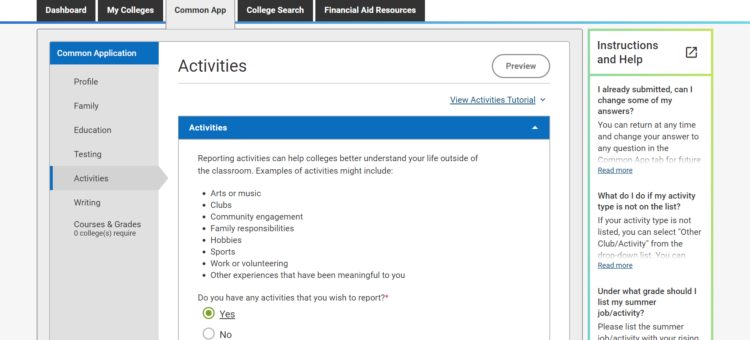
You can read more about this section by reading the CollegeVine blog post How to Fill Out the Common App Activities Section .
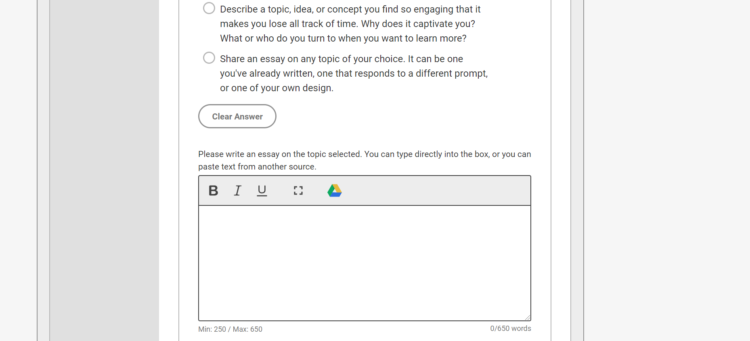
This section is where you’ll answer questions that require longer written responses, starting with your personal essay.
Under the “Personal Essay” section, you’ll find a list of topics to choose from, and a box in which to copy and paste your essay text. (We strongly recommend that you compose your essay first in a Word document or other format outside of the Common App website.) Check out our post How to Write the Common Application Essays 2019-2020 (With Examples) for more information about writing a standout personal essay.
Under the “Disciplinary History” section, you’ll be asked if you have been found responsible for a disciplinary infraction either at school or in the community, and you are given an opportunity to address or explain what happened.
Finally, under “Additional Information,” you can include information on any special circumstances which might be relevant to your application and are not addressed elsewhere in the Common App.
Step 5: Submitting the Common App
As you can see, there’s a lot to be filled out on the Common App, and you’ll most likely go back and change some of your responses more than once. Once you’ve completed the Common App and your individual colleges’ supplements to your satisfaction, it’s time to submit your application.
Before you submit, you’ll need to thoroughly go over your application to make sure that you’ve answered all the questions and filled in all the blanks. The Common App will notify you if you’ve left any required questions unanswered, but it’s best to look over everything yourself as well. Leave yourself time for this step.
In order to start the submission process, go to your My Colleges section. Let’s say that you’ve completed all the necessary fields under the Common App section, as well as the writing supplement required for Amherst College. Everything is in place for you to actually submit your application to Amherst through the Common App portal.
When you reach this point, you’ll click “Review and Submit — Common App” under the “Application” heading. The following steps will only become visible to you once you’ve completed your application; if anything is missing, you won’t be able to access this process at all.
The first step in the submission process will involve reviewing your application yet again. This time, instead of clicking all the individual tabs, you’ll simply view a PDF print preview of your entire application, set up as one document.
Take this opportunity to make sure there are no errors — it’ll be your last opportunity to do so. It may be helpful to actually print the PDF and review it on paper. Sometimes seeing a physical copy can reveal typos or other mistakes you missed when reviewing it on a screen. When you’ve completely reviewed it and are satisfied with your application, hit the red button that says “Continue.”
At this point, the Common App website will reroute you to that particular college’s payment page. Here, you’ll submit your application fee directly to the college. (If you have requested a Common App fee waiver, you will not be required to make a payment at this point.)
Once your application fee is submitted, you’ll sign and date your application. Then comes the big moment: finally hitting “Submit” on your Common App.
Step 6: Submitting Supplements
For most schools, submitting the Common App is not quite the end of the process. You’ll also need to submit your school-specific supplement, and you cannot do so until your Common App itself is submitted.
To submit your supplement, you’ll click on “Review and Submit Writing Supplement” under the “Writing Supplement” heading. This will lead you through a process similar to the one you went through in order to submit your Common App. Follow the instructions given by your particular school.
When you finish the process of submitting your writing supplement, return to your Dashboard within your Common App account. Look for the school to which you just submitted an application. If a green check mark has appeared across from that school’s name under the “Application” column, congratulations! You just applied to college!
Step 6: Additional Tasks
Remember, submitting the Common App is not the only thing you need to do in order to apply to your chosen colleges. While your counselor and recommenders will be able to submit their documents through the online system, you’ll have to make sure that your official test scores are sent directly to your colleges by the agencies that administer those tests. For more about this process, check out our post What You Need to Know About Submitting ACT & SAT Scores to Colleges .
You’ll need to repeat the submission process for each college you wish to apply to. This is admittedly a bit repetitive, especially if you’re applying to a large number of schools, but it’s still better than filling out all those separate forms individually.
Common App FAQs
We at CollegeVine realize that you may still have many questions about the Common App, and we’ll address some of those in future posts. For the moment, here are a few questions about the Common App that we frequently encounter.
“How do I download a PDF of my application?”
Once your application is complete and you begin the process of submitting it to a college, you’ll be given the opportunity to review your application in PDF “print preview” form. Many students want to hold onto a physical and/or an electronic copy of that PDF, and that’s a smart thing to do; technical glitches are always possible when using an online application system.
Downloading a PDF of your completed application is usually quite simple, but the details and screen appearance of the process will vary based on technical details like what type of computer and what Internet browser you’re using. If you’re having a hard time with your PDF, you might try opening your Common App in a different browser.
Generally speaking, when you view the PDF preview of your application, you will be able to save a copy through the program that you used for opening it. In most cases, you will be able to select File>Save As, and then specify what you would like to name this document, as well as where you’d like to save it to on your computer.
Keep in mind that your saved or printed preview of your Common App is not a valid application—it is simply a preview of the online version. You cannot print your application PDF and mail it to the school as a means of applying. You may only submit it officially online, through the Common App portal.
“How do I sign my FERPA waiver?”
Your FERPA waiver basically governs whether you’ll be allowed to view the recommendations you receive from your guidance counselor and teachers after you enroll in college. Signing it waives your right to review the recommendations and generally makes them more valid, as it ensures that your recommender is submitting an honest, unbiased assessment.
In order to sign your FERPA waiver, first go to your My Colleges section. Click on the first college on your list, and then click on “Recommenders and FERPA” under the name of the college.
To access your FERPA waiver, click on the button that says “Release Authorization.” A box will pop up with explanatory text. Click the checkbox to certify that you have read and understood the explanation. Then click on the button that says “Continue.”
Then, select one of the options to state whether you waive or do not waive your right to review your recommendations and supporting documents.
Click the next checkbox to certify that you understand that your selection here cannot be changed. (Don’t do this until you’re sure what choice you want to make — you can hit “Cancel” if you want to give it some more thought first.) Finally, type your name in the Signature box and the current date in the Date box. Click “Save” to finish signing your FERPA waiver.
The majority of students choose to waive their FERPA rights. It’s not required, but choosing not to waive your rights may make a negative impression on the people who will evaluate your application. Some teachers and counselors may be unwilling to provide a recommendation for you at all unless you do waive your FERPA rights.
“What is the maximum number of schools I can add to the Common App?”
You can add a maximum of 20 schools to your list of schools within the Common App. This is a restriction set by the Common App’s member schools, and there are no exceptions to this rule.
If you change your mind about your list of schools during the application process, you can delete a school from your list using the Dashboard — just click on the gray X to the right of the school name to remove it. If you’ve already submitted your application and/or your school supplement to that school, you are not permitted to remove it from your list.
This is a lot of information to digest in one sitting. Don’t worry too much right now — you can always come back to this post and the others on the CollegeVine blog for guidance. The prospect of answering all of these questions may seem pretty daunting at this point, but there are instructions and resources available to help you manage the process along the way.
You can also take a look at past posts on our blog, which cover everything from choosing colleges to application strategies to financial aid . Best of luck in finding a college that’s a great fit for you!
You may also like:
How to Write the Common App Essays 2019-2020
Essay Breakdowns 2019-2020
How to Fill Out the Common App Activities Section
Want help with your college essays to improve your admissions chances? Sign up for your free CollegeVine account and get access to our essay guides and courses. You can also get your essay peer-reviewed and improve your own writing skills by reviewing other students’ essays.
Related CollegeVine Blog Posts

Kickstart Your Common App Essay Draft Today
College season is in full swing. Get going on your Common App Essay!
Get your free download now

Clear, concise steps to move you from brainstorming to drafting
Exercises that guide you through story-telling techniques
Reflection questions to help you determine if you've chosen the right topic
What You'll Get:
A six-part scaffold for moving from brainstorming to drafting Specific anecdotes and techniques collected from years of working with high school students writing Common App essays Links to resources, including real-world Common App examples Plenty of motivation and guidance from me, a writer, Ivy League professor, and professional college essay tutor Opportunity to sign up for 1:1 sessions or join the Common App Essay Boot Camp online classes
.jpg)
Joss Lake, Fiction Prof. at Columbia University, Professional Writing Tutor
Hi, I'm Joss! I teach fiction at Columbia University, where I work with both undergrads and grad students. I also have been working 1:1 since 2017 with high-achieving students on all forms of writing, including Common App essays, fiction, job/grant applications, class assignments, and ACT/SAT prep. I bring a sense of humor and a deep love of writing to my work.
Stop procrastinating with a seamless step-by-step guide to Common App essay writing.
Your future self will thank you!
Sign-in or Register
- Photo by picjumbo.com: https://www.pexels.com/photo/person-holding-blue-ballpoint-pen-writing-in-notebook-210661/
How to write a college application essay
- Sep 16, 2024
- Posted 2 hrs ago at 6: 00 PM
A widely used application process among U.S. colleges and universities is called the Common Application. Of the 1,000 schools that rely on this process, fewer than half do not require an essay.
For those students applying to schools that still ask for essays, Mike Andelbradt, director of admission at John Carroll University in University Heights, and Kim Walter, executive director at Huntington Learning Center in Mentor and Mayfield Heights, offered advice.
“My best advice for students who are starting their essays is to make sure they are writing about a topic that will show colleges the different skills, backgrounds, or interests that they will bring to the campus community,” Andelbradt said. “A good gut check on your topic is to think about how you would feel discussing your essay with your admission counselor. You should feel excited and passionate about that possibility.”
Walter offers these tips:
• Be authentic. Colleges want to know the real you, so ensure your essay reflects your voice, personality and experiences. It’s important to show your passion, goals and what makes you unique.
• Focus on a specific experience. Instead of trying to cover everything, choose one meaningful experience or event that showcases your growth, resilience, or a defining moment. This allows you to create a compelling narrative.
• Answer the prompt: It may sound simple, but ensuring your essay fully addresses the question or prompt is crucial. Focus on what the college is asking and avoid going off on tangents
• Plan and revise. Start early and allow time for multiple drafts. A well-thought-out essay should go through several revisions to ensure clarity, coherence, and proper grammar.”
• Show, don’t tell. Use descriptive language and examples to illustrate your points rather than making broad statements. For instance, instead of saying, ‘I am hardworking,, share an example that demonstrates this quality.
Both Walter and Andelbradt have seen enough essays to know what appeals to college admission teams.
“College admissions teams are drawn to genuine, narrative essays,” Walter said. “They want to see depth and reflection, essays that reflect deep thinking, personal growth, and self-awareness. Sharing challenges you’ve overcome or how you’ve developed certain values or skills can be particularly impactful. They also want to see unique perspectives. Colleges value diversity of thought and experience. Essays that offer unique perspectives and ideas will resonate. Admissions officers are reading thousands of essays, so it’s important to make your points clearly and concisely,” she said. “A well-structured essay with a clear focus will leave a stronger impression.”
Andelbradt said, “Colleges are looking to learn more about you as a person and what you will bring to campus. Outside of the essay, the application process is pretty black and white (grades, test scores, etc.). The essay is your chance to color in the lines and bring your personality to the application review process!”
Now, keeping in mind of the volume of essays counselors read, a note about the use of AI in essays.
“AI is a great tool for helping students brainstorm and organize their thoughts,” Andelbradt said. “That said, it is not a substitute for a well-written, personalized essay. I would encourage students to lean on AI for early parts of the writing process, such as building an outline, but the writing of the essay needs to come from the student. Remember, colleges are looking to get a sense of your personality. You cannot accomplish that with AI.”
Walter said, “We encourage students to follow their school’s guidelines when using AI as a resource. AI tools can be beneficial for brainstorming or checking grammar, but it’s important that the essay ultimately reflects the student’s voice, ideas and creativity. Over-reliance on AI can dilute the personal touch that admissions officers are seeking.”
Now, time to look at the calendar.
At John Carroll University and many Ohio schools, Andelbradt pointed out that “Nov. 1 is an important date. Nov. 1 is JCU’s non-binding early application deadline, which gives students the opportunity to receive our $2,000 Visit & Apply grant and a guaranteed response by the end of the calendar year.”
Paying attention to that date and the focus on essays in general can provide dividends.
“Essays play a crucial role in the college application process,” Walter said. “While test scores and GPAs provide a quantitative measure of a student’s academic abilities, essays give admissions teams a chance to understand the person behind the numbers. A strong essay can differentiate a student from the competition by showcasing their individuality, aspirations, and ability to contribute to the college community.”
Steve Mark is a freelance journalist.
How do you feel about this article?
Choose from the options below.
- Artificial Intelligence
- College Admissions In The United States
- Brainstorming
- Human Communication
- Cognitive Science
- Writing Process
- Branches Of Science
- Liberal Arts Education
- Behavioural Sciences
- Behavior Modification
- Personal Development
- Social Psychology
Recommended for you
Cjn most popular, co-presidents resign at congregation mishkan or, unger’s kosher bakery and food shop under new ownership, springfield mayor ejects neo-nazi from aug. 27 city commission meeting, judaism important to new wkyc sports reporter-anchor, uh council oks plan for ‘bell tower center’ proposal, sign up for e-news.
Choose from the CJN's informative e-newsletters.
Weekly Torah portion
Cultivating compassion
Weekly service times
Synagogue service times: Week of September 13
Weekly Yiddish lesson
Yiddish Vinkl for September 13
- Photo Galleries
Shining Star CLE 2024 Sept. 22 at Playhouse Square
Former mt. sinai medical center employees hold ‘family reunion’, solon school bus involved in crash enroute to football game, cleveland jewish community shows support for hostages.
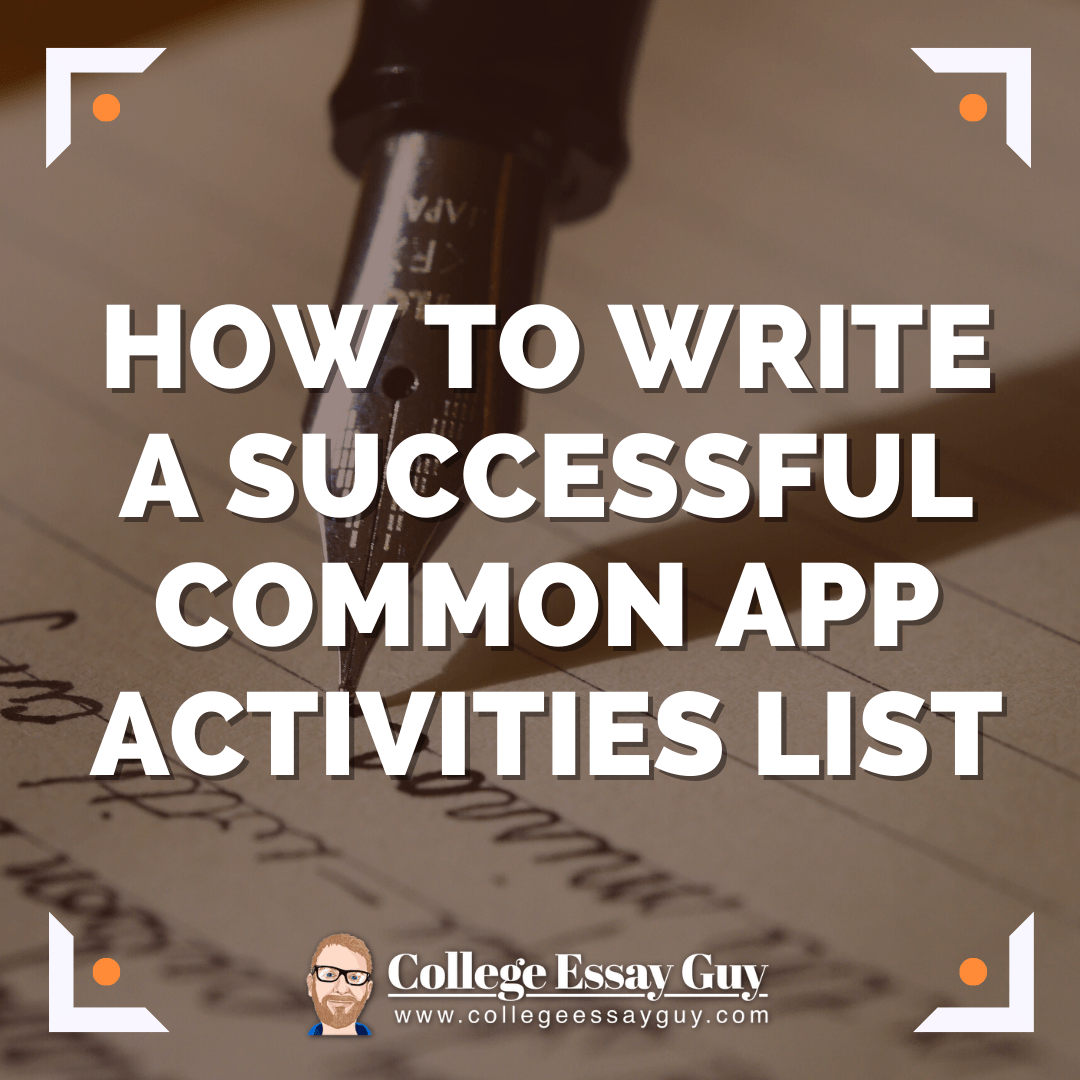
How to Write a Successful Common App Activities List
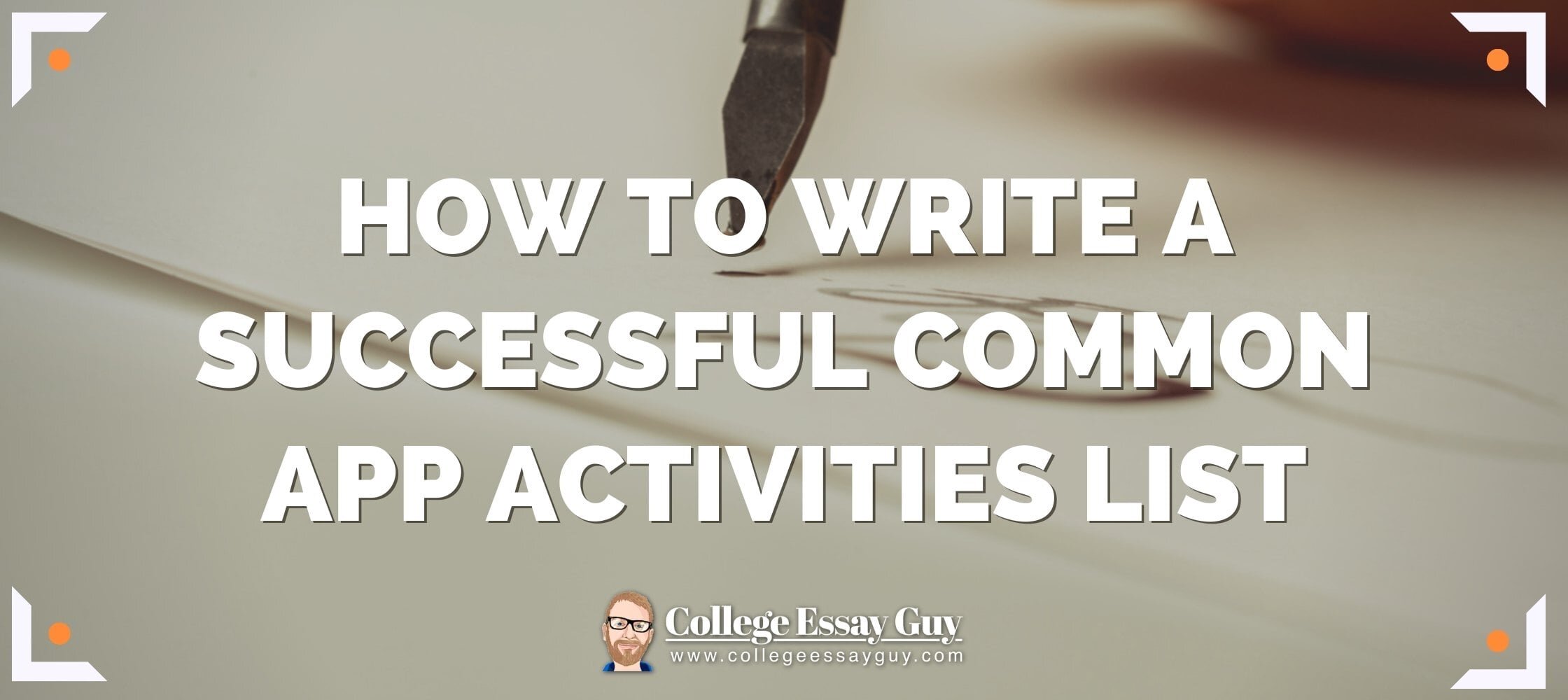
The Common App activities section is an opportunity to demonstrate to the Common App colleges your talents, skills, and specific examples of extracurricular activities you’ve participated in over the last few years.
I think one of the best ways to write a great activities list is to look at some really solid Common App activities section examples (which I’ll share in this guide). In this post, you’ll also find some great tips and exercises to help you draft and then up-level a successful Common App activities section that highlights all of your awesome-ness, as well as the impact you’ve had in your activities, beyond what you’re sharing in your response to the Common App essay prompts.
TABLE OF CONTENTS
- 1. The Epic List of Activities List Verbs
2. The BEABIES Exercise
3. the values scan, 10 tips for making your activities list awesome.
- Activities List FAQs
- 10 More Great Activities List Examples
The Honors and Awards Section
You only get 150 characters on the activities list for the Common Application. How do you make the most of them? Here are some tips with accompanying college activities list examples.
Applying through the Coalition Application, ApplyTexas, UC Application, or another application system? These tips still apply.
In this guide I’ll cover:
Why it’s worth spending half an hour up-leveling your activities list
How to develop more and better content for your activities list
How values can help you bring much more variety to your activities list
Whether you should “show” or “tell”
Why you should never stretch the truth on your activities list
Answers to commonly asked questions
Tips for the Honors and Awards section
Tons of examples
What’s the activities list again? It’s the space on the application where you name and briefly describe your non-academic pursuits.
What’s its purpose? “Extracurricular activities can be a great opportunity to see how an applicant has self-directed their passions and interests,” says Jorge Delgado, Associate Director of International Admissions at Brandeis. “There are only so many hours in the day so seeing how a student has involved themselves outside the academic arena is a great way of understanding their potential fit for a university campus.”
Why should you spend 30 minutes up-leveling it?
Your activities list can make a big difference in your application.
Want proof? Compare these two:
Art Created art and organized club.
Founder, Art Honors Society Organized and ran meetings, set up field trips, brainstormed and created group art activities, wrote and sent newsletter to members.
Most students write a pretty good activities list description and then they stop there. But it doesn’t take long to up-level an activities list from pretty good to great .
Here are three tips for doing that:
Use stronger verbs . I’ll define “stronger” in a moment, but in short: Are you describing your activity in the most dynamic way possible? Most students aren’t. Why? Because they’re using just-okay verbs.
Develop better (and perhaps a bit more) content . Have you included a wide range of responsibilities? Most students forget to include solving problems, gaining skills, and making tangible (and even quantifiable!) impact.
Demonstrate skills & values . Are you communicating what you learned or how an activity changed you? If not, you may be leaving money on the table.
Here’s how to make it happen.
…Or you can watch me break down the activities list here. 😏
Three Tools for Up-Leveling Your Activities List
1. the epic list of activities list verbs..
You probably need stronger verbs. How do I know? I’ve seen hundreds of Activities Lists and most need stronger verbs.
Compare this typical description of debate:
Member, Debate Debated topics, attended tournaments, researched topics.
Shall we break that down right quick?
Debated topics (um, redundant)
Attended tournaments (we assumed?)
Researched topics (I hope so!)
BTW I am so much nicer and less sarcastic in real life—just employing it here to make a point.
Here’s a much clearer, more interesting, and more varied description:
I lead research and case writing, mentor younger debate students, organize mock debates, host an annual debate tournament. See Add’l Info for Awards.
FRIENDS, LOOK AT THOSE VERBS:
“lead” (BOOM)
“mentor” (YES)
“organize” (SIZZLE)
“host” (POP)
That’s what I’m talking about. I’m like, “Oh, now I get what debate looks like to you.” But wait, what makes a verb stronger ?
A stronger verb … is more specific.
Example: “taught” is fine, but did you coach, mentor, train, or demystify ?
A stronger verb … often provides more information.
Example: “organize” is fine, but did you arrange, catalog, compile, or systematize ?
A stronger verb … just sounds better.
A few examples I like: mediate, publicize, administer, or plagiarize (I’m kidding about plagiarize, please don’t).
I know, some of you are probably wondering: “But Ethan, which verbs should I use?”
College Essay Guy's Epic List of Activities List Verbs
| As with a resume, you want your activities list to be in your own words, to sound like you. Overwriting can make it sound like you hired a professional to write it, which can detract from your application. So, unless it’s the one and only word that perfectly captures what you did, avoid using “corporate verbs.” See some examples of the words below. I’m not going to say “100% DO NOT use these words.” But at the very least, I am saying “Proceed with caution.” | ||
Heads up: Using this list for ten minutes will up-level your activities list verbs, and thereby your descriptions.
But wait. We’re not done yet. Here’s the second tool for up-leveling your activities list:
What’s the BEABIES exercise? Simply the B est E xtracurricular A ctivity B rainstorm I ’ve E ver S een.
It’s great for developing better content for your activities list.
Instructions : Spend 5-8 minutes filling out a BEABIES chart per activity on your list to generate plenty of content for your activities list descriptions. Use the 25 questions below the chart for ideas.
| The key here is active verbs. Tip: Use the “Epic List of Activities List Verbs” I just shared with you | These problems could be: - Personal - Family - Local - Community - School - State-level - National - Global | Tip: Use the Values Exercise for this | This is super important. Tip: Use numbers and actual quotes to support your bullet points | How did you apply lessons from the activity beyond the activity itself? See examples below. |
After a few minutes, your chart may look something like this:
| Practiced every Sunday morning for 2.5 hours for 9 years. Performed at Chinese New Year festivals for 9 years. Danced in junior group for four years, senior group for five years, senior small group for three years. Served as club treasurer, managing club-related funds and handling reimbursements. Organized fundraiser at the Chinese Dragon Boat festival that raised over $2000 for the club. Served as club Vice President. Won Honorable Mention at the Chinese School Association in the United States (CSAUS). | Feeling disconnected from Chinese culture and community. Not much connection to relatives in China. Club was struggling to maintain steady funds. Improving technique and artistry in Chinese dancing. Difficulty transitioning to Chinese dancing from ballet. Difficulty articulating ideas and thoughts. Our community lacked Chinese cultural events. | Became more goal-oriented. Managed and kept a record of thousands of dollars. Learned... ...to articulate and explain my thoughts to younger dancers. ...how to handle conflicting interests from group leaders and dancers’ parents. ...our surrounding community is actually open to supporting our group. ...to express my individuality in a way that I didn’t with ballet. ...every movement and pose has its own nuances. ...how to choreograph and adapt a dance based on material from past dance groups and videos. ...to remain patient and forgiving while teaching. | Grew closer to the values of Chinese culture, as there is always a story behind every dance. Relatives in China watched links to my dances, allowing us to connect more on phone calls. Developed a sense of community within the group of dancers and parents. Showed beauty of Chinese culture to local community. | Used teaching skills while tutoring peers in Chemistry. Lessons in leadership helped me manage board members in my club. Continued to reach out to my community about other causes I cared deeply about, helping to fundraise for annual event. Helped me become more expressive and seek other outlets of expression. |
25 Questions to Help You Brainstorm More Content for Your Activities List
What I Did (Day-to-Day):
Did I list all my tasks, or just a few? What’d I forget? Go back and check.
Did I list tasks I completed that fell slightly outside the scope of my responsibilities?
Did I leave off any awards? Any uncommon achievements?
Problems I Solved:
Did I consider the internal problems I solved—any personal challenges?
Did I name the external problems I solved—for my friends or family? School? Community?
Was I tackling a much larger (perhaps global) problem?
Lessons I learned & Values/Skills I Developed:
What were some of the soft skills I learned (patience, communication, etc.)?
Did I learn any specific software (Photoshop, Final Cut Pro)? Languages (Spanish, C++)? Survival skills (how to start a fire or clean a fish)?
What am I better at now than I was before?
What would I have done differently?
Impact I Had (On Self, School, Community and/or Society)
Did I consider the impact this had on my family? Friends? School? Who else benefited?
What impact did this have on me personally? Did this change my life/perspective? How?
Applications to Other Parts of School/Life:
What skills did I develop and lessons did I learn that will make me a better X (tutor, debater, advocate, volunteer, programmer, fill in the blank)? How so?
What did I do to build on and take what I learned to the next level?
What surprised me about this experience?
How might I continue this activity during college and beyond?
FYI: Spend 10-15 minutes filling out a BEABIES chart using these 25 questions and (bonus) you’ll have enough content for pretty much any extracurricular activity essay, too.
Here’s the third tool for up-leveling your Activities List:
The Values Scan is a great way to make sure your core values are apparent throughout your application. If you haven’t completed the values exercise, you can do that here. It’s an awesome (and quick) way to figure out what your top 3-5 core values are.
You’re about to use it to make your activities list EXPLODE with depth and variety. How? Like this:
Pick one of the activities list descriptions you’ve written and ask of it these three questions:
Which values are clearly being revealed in the description?
Which values are kind of being revealed, but could probably be revealed more clearly in the description?
Which values are not in the description at all yet, but perhaps could be included?
Take this description as an example, written by a student who was secretary of her Red Cross Club:
Responsible for taking minutes, updating calendar and active member list, communicating with advisors, acting as a liaison to our local chapter.
Okay, now ask those three questions:
1. Which values is this description clearly revealing?
I see the author is:
Organized: “taking minutes” and “updating calendar”
Responsible and collaborative: “communicating with advisors” and “acting as liaison”
Do you see others? Maybe! But this is a good start. Okay, next ask...
2. Which values could be revealed more clearly in the description?
Reading the example above, I’m curious if the author might demonstrate leadership more clearly. She hints at some responsibilities, but I wonder if she could delete “updating calendar and active member list” in favor of a detail more clearly demonstrating leadership skills.
I might ask the student if she can think of something she did that might demonstrate leadership. (If not, that’s okay! This is a process of asking questions and seeing what variety might be possible. But we’re not in the business of making stuff up—see warning note below.) I’d also wonder if the description could more clearly demonstrate the author’s commitment to health—this is the Red Cross, after all—or perhaps social change.
Finally, ask:
3. Which values are not in the description at all yet, but perhaps could be?
To determine the answer for this student, it helps to know the author. I happen to know one of this author’s core values was adaptability . So I asked her: Did working with the Red Cross help you become more adaptable? If so, how? What detail might show this?
Once you’ve written a new draft, hand your activities and awards list to a trusted editor. They should have your Values Exercise nearby for reference so they can assess how well you’re demonstrating your values. Here’s an example:
Indian Tabla Self-taught via YouTube videos; played drums at community meetings for worker rights awareness; helped my sister become proficient.
I see these values:
Ambition: “Self-taught…”
Social change: “Played drums at community meetings for worker rights awareness”
Family, helping others: “helped sister become more proficient”
See how that works?
Goal: Include 2-3 values per activity. If you can achieve this, just think: your list could demonstrate 20 or 30 values! That’s rad. But don’t drive yourself crazy with this . If your Activities List shows a nice variety of 10 or so values, that’s enough. Really.
Once you’ve got some great verbs and some great content, here are:
1. Aim for variety, making sure your verbs aren’t redundant.
Instead of: Instructed, helped, taught children tennis (how are these three different?) Try: Instructed in proper technique, while imparting lessons in sportsmanship, health and integrity.
2. Use the present tense if it’s something you still do.
Instead of: I gave tour campus tours and provided info on school history, student activities, and boarding life. Try: I give campus tours and provide info on school history, student activities, boarding life.
3. Trim ruthlessly.
Because the space you’re using is so limited, the words you choose are incredibly important.
Actually, let me rephrase: Because your space is limited, your word choice is important.
One more time: Limited space demands precise wording.
See what I did there? Cut my character count from 92, to 61, to 37.
4. State role, leadership description, and the organization name in the top two sections so you don’t waste characters in the 150-character description section.
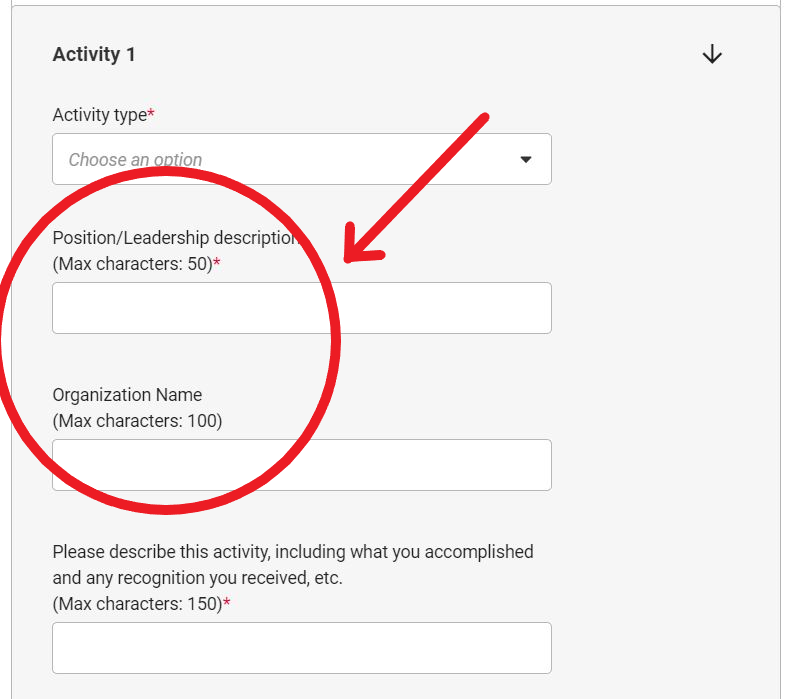
So instead of:
Position/Leadership description: Editor Organization Name: School newspaper Description: I am the editor for the school newspaper
...which wastes space, try instead:
Position/Leadership Description: Editor of International Column Organization Name: Daily Herald, Ridgewood High SchoolDescription: Responsible for brainstorming and copy-editing articles by underclassmen; managed deadlines; offered layout & design input; liaised w/faculty sponsor.”
And are you still using complete sentences? If so, stop. No need here.
So instead of: I raised money to donate to a school in India by selling t-shirts and bracelets. You might end up with: Arranged advertising events, organized fundraisers, and presented to student body at assemblies (400+ students).
5. Emphasize tangible, measurable impact.
Notice for example the “400 students” inclusion above. This comes as a result of asking questions like “Whom did your activity help? How many people? How much money did you raise?”
Instead of: Raised money for children in Africa . Try: Raised $3,000 to provide three uniforms and scholarships for students attending the Joseph Waweru Home School in Kenya .
6. Include any responsibilities that demonstrate leadership skills.
Instead of: I swim on the swim team . Try: Responsible for leading swim practices, planning fundraising events, assisting in recruiting process .
7. What if there isn’t much to say or it was a one-time event?
Instead of: Tutored students . Try: Provided support to fourth graders with particularly difficult math concepts . (This works because you’ve explained the significance of the activity: why the event mattered and to whom).
Or you can…
8. Describe selectivity. This is key if the reader might not understand the achievement your activity represents.
Example: 1 of 2 student leaders elected by my peers to represent our class of 450 . Another example: Received 1st place out of 300 competing teams .
9. Avoid extreme language.
Instead of: ... to help all those in need (or) to end poverty in the world Try: ... to help those in need (or) ...to fight against global poverty
10. If your role was simply “member” or “participant,” it’s okay to just list the activity.
In other words, instead of writing Participant, MLK Day of Service You can just write MLK Day of Service
| I once knew a student who had participated in some wonderful activities. She was a class officer, school club founder, nonprofit volunteer and former intern. With a near-perfect GPA and test scores, she was applying to some of the most highly selective universities in the world. Once her applications had been submitted, however, her counselor revealed to me that the student had falsified parts of her application. She’d listed a trip she hadn’t actually taken, for example, made up a leadership role, and padded her hours. What happened to her? Initially, she was accepted by several highly selective schools. But when one admission officer noticed application details that didn’t line up with her counselor’s recommendation letter, they brought it to the counselor’s attention. After a little research, the counselor found the same inconsistencies and was professionally obligated to inform the highly selective schools that the student’s application contained, for lack of a better word, “alternative facts.” (She’d lied.) When the student was confronted, she claimed she had “stretched the truth” and hadn’t technically lied. As far as the counselor and admission officer were concerned in this case, however, “stretching the truth” and “lying” were pretty much the same thing. As a result, the student’s acceptances to those universities were rescinded. In other words: although she was initially accepted, she was ultimately rejected. Worst of all, it damaged her reputation and relationship with her counselors, her principal, and me. Please don’t lie on your Activities List. Don’t even stretch the truth. Same goes for your essays too. But you know this. |
Activities List FAQ
Q: What if I didn’t do much for the activity and I don’t have much to say?
A: If you aren't participating in many or any extracurriculars, ask yourself: why? And I’m not assuming you should be, I’m really asking… why? Perhaps a better, less confronting way of asking this is: What values have become more important to you than extracurricular activities?
Do you have to work and provide childcare for your family, for example? Do you have and enjoy an intense academic load? Or maybe you practice gymnastics eight hours a day? If so, mention this in your Additional Info section , as that will help admission officers see your Activities List within the context of your life experiences.
Q: What if I feel like I haven’t done “enough”?
First, stop comparing! It’ll drive you crazy. Next, some questions to ask:
1. Have you remembered everything you’ve done? Try sitting down with a parent or friend who can help you remember stuff you might’ve forgotten you did.
2. How could you explore some things that are important to you, gain some experiences, or learn some new skills in the time left before your application is due? Heads-up: admission officers can usually spot it when a student is loading up activities in 12th grade just to pad their activities lists. That’s not quite what I’m talking about doing. If you have a few months before it’s time to apply, however, ask yourself, “What can I do that I’d enjoy doing?” But if you’ve remembered everything and you’re submitting your application soon...
3. Focus on what you can control. Use the resources above—the Epic Verbs List, BEABIES and questions, and Values Scan—to describe what you did in a way that’s clear and varied.
Q: Is it better to have a few really strong activities (less is more) or should I list everything I’ve done (more is more)?
A: I find counselors are divided into two camps on this: “less is more” and “more is more.” Here’s a quick comparison chart:
| POTENTIAL PROS | POTENTIAL CONS | |
|---|---|---|
| Less is more | You list only your most important endeavors, demonstrating focus and commitment. | You leave off some stuff you did, risking an incomplete portrait of yourself in your application. |
| More is more | You include everything you’ve done, demonstrating a wide range of interests and achievements. | Some of your listed activities don’t mean a whole lot to you. It may seem as if you’re trying too hard to impress. |
When I asked Brian Liechti of Warren Wilson College what he prefers, he said, “It depends! I would rather see meaningful, current activities that also show up elsewhere in an essay or a letter of recommendation. This adds weight and validation to what a student includes as an activity and I know it was a more impactful experience. But uncommon activities can add flair and character, especially if those activities are also represented on campus.”
In short, the choice is yours.
Q: What if a multi-dimensional activity is impossible to describe in 150 characters?
A: Write a short description in the Activities List, then put additional information into the... Additional Information section (that redundancy was on purpose). Here’s an example of such an activity:
Creator, AquaVR Researched, brainstormed, created 3 prototypes for virtual reality scuba gear. Recognized statewide. Developing app with Siemens. (See add’l info.)
That little note at the end signals the activity’s richness while directing the reader to find out more in the additional information section.
Common App Activities List Examples:
Member, (9th,10th) Treasurer (11th, 12th) National Honors Society, Ridgefield High School Chapter We are amongst the highest academically achieving students at our school, who collectively and consistently participate in community service projects.
Student, Class TA Robotics Fundamentals, Online Course at Carnegie Mellon University Learned the fundamentals of computer programming, robot assembly, and worked as a team in competitions.
Intern Center for Advanced Head & Neck Surgery, Duluth, MN Learned how to operate various screening & diagnostic technologies under Dr. Yang; assisted in patient care & diagnosis procedures in Otolaryngology & Oncology.
Leader/Concertmaster AMAC Youth Chamber Ensemble (AYCE) Lead ensemble in rehearsal and performance, coordinate rehearsal times, aid younger members in learning music, present free community concerts yearly.
Volunteer (June 2012 - August 2012) Boys & Girls Club of Santa Monica Supervised and served as mentor for K-8 grade kids; Helped prepare lunch, entertained, and tutored students in math and science.
Number 3 Starter (August 30th, 2013 - November 11th, 2015) Varsity Girls Tennis, Robinson Crusoe High School Practiced and conditioned daily, led daily stretches, competed in district and regional matches against other schools.
Starter JV/V Beverly Hills High School Tennis Team Three-year League Champions; planned and hosted team banquet; Coach's Award Recipient. Led practices and motivated teammates to perform at high level.
Local Violin Tutor Gupta Violin Lesson & Training Provide aspiring middle school students a foundation on music and basics of violin, demonstrate proper technique, develop strong cognitive and musical skills.
Full-time volunteer EMT (11th - 12th) Virginia Paramedic Association Responded to emergency calls, performed BLS protocols, interacted with patients and families, assisted paramedics, organized ambulance rigs. 24 hr/wk for every week.
Volunteer (9th), Summer Intern (10th) Red Cross of San Fernando Valley Assisted supervisors, filed paperwork, made phone calls to donors, prepared facilities for training programs by helping with class planning.
If it wasn’t obvious from the title, this is the place on your application where you list awards you’ve won and honors you’ve received.
Here’s what Common App says:
Do you wish to report any honors related to your academic achievements?
So while the focus of this section will be on academic honors and awards, based on a few conversations with folks who work in admission, it’s OK to list other significant awards and honors that you’d like to highlight here.
What if I haven’t won any awards? Don’t worry. Many schools don’t offer academic awards, many activities are not competitive, and some students don’t have the time, money, or resources to compete. Admission officers understand this based on the context of the applicant (what’s shared in your school report or what you’ve shared in the Additional Information) and won’t use it against you.
If you do have awards to list, here are...
Seven Tips for the Honors and Awards Section
1. List your awards in order of importance. Start with those that mean the most to you. If you’re unclear on your awards’ personal meaning, start with international. Work down from there to national, state, regional, school-wide, club, then team-wide.
2. Specify what the award means. Congrats on winning the “Beacon Award”... but I have no idea what that means. Did you win a beacon? Were you the beacon? Say so! Similarly, an “academic excellence” award could mean so many things. Define the bar of excellence in the context of the award.
3. Emphasize selectivity. Were you the best team out of four teams, or 400? We won’t know unless you tell us.
4. Explain acronyms. Speaking of things we won’t know unless you tell us. Some acronyms (like TEDx and AP) will be familiar to readers, while others (like Future Business Leaders of America or regional designations like California Scholarship Federation) may be less familiar. When in doubt, spell it out. (Totally didn’t mean to rhyme there.)
5. Want to pack multiple awards into one slot? Go for it. Just make sure they’re somehow connected. Example: SkillsUSA, Best of Show (1st) Interior Design; (1st) Employment Portfolio; (2nd) Web Design Technical
6. Did your honor/award include money? Throw it in there! Example: TEDx NYC Student Startup Competition Winner: granted $1,500 in seed funding
7. Did they fly you out? Mention that too! Example:
Google “Young Changemaker” Winner: all-expenses-paid trip + mentoring @ Google HQ
10 Examples of Honors and Awards That Could Have Been Improved — And Then Were!
The examples below were revised to add context and specifics.
1. “FBLA Award” Revised version: “Won 3rd in nation, Desktop Application Programming (Future Business Leaders of America)”
2. “Congressional Award” Revised version: “Gold Medalist, The Congressional Award, for 400+ hours public volunteer service”
3. “Student of the Month” Revised version: Student of the Month (1 of 350 students chosen) for “positive impact on school culture.” Won twice.
4. “Journalism Award” Revised version: “Silver Knight Award, Journalism. Given to 1 in entire county, included $2,000 prize.”
5. “Science Olympiad” Revised version: “1st in state, Analytical Lab, PA Chemistry Olympics”
6. “Debate Awards” Revised version: “Debate: (4) 1st place finishes, Dade County Forensic League, 19-3 career policy debate record”
7. “Boy Scouts: Various Awards” Revised version: “Boy Scouts: 36 merit badges, Silver Buffalo Award (10th) & Distinguished Service Award (11th)”
8. “DECA Champion” Revised version: “DECA 2x Regional & State Champion and Int’l Finalist out of over 200K members worldwide”
9. “Chess Champion” Revised version: “1st place @ Pan American Intercollegiate Team Chess Championship”
10. “Dog Breeding Award” Revised version: “4-H Best in Show Project on Dog Breeding”
What to see more example activities list descriptions? Here’s 80+ more descriptions that might get you inspired.
Applying to the UC schools? You get a bit more space. Check out my How to Create the University of California (UC) Activities List guide here.


IMAGES
VIDEO
COMMENTS
Common App Essay Prompts 2024-2025. Part 2: Pre-writing your Common App Essay. Brainstorming Common App Essay topics. Freewriting. Essay writing timelines: how to write your Common App personal statement if you have six months, three months, one month, or even less. Part 3: Choosing your Common App Essay topic Part 4: Writing your Common App ...
Show, don't tell. Be specific. Choose active voice, not passive voice. Avoid clichés. Write in a tone that aligns with your goals for the essay. For example, if you are a heavy STEM applicant hoping to use your Common App essay to humanize your application, you will be undermined by writing in a brusque, harsh tone.
What is the Common Application essay? The Common Application, or Common App, is a college application portal that is accepted by more than 900 schools.. Within the Common App is your main essay, a primary writing sample that all your prospective schools will read to evaluate your critical thinking skills and value as a student. Since this essay is read by many colleges, avoid mentioning any ...
Each year, more than 1 million students apply to more than 1,000 Common App member colleges worldwide through our online college application platform. Learn more about applying through our first-year application by following our step-by-step guide below. Create a Common App account. 1. Gather materials. 2.
Below is the complete list of the Common App essay prompts. Some students have a background, identity, interest, or talent that is so meaningful they believe their application would be incomplete without it. If this sounds like you, then please share your story. The lessons we take from obstacles we encounter can be fundamental to later success.
Common App Essay Examples. Here are the current Common App prompts. Click the links to jump to the examples for a specific prompt, or keep reading to review the examples for all the prompts. Prompt #1: Some students have a background, identity, interest, or talent that is so meaningful they believe their application would be incomplete without ...
The exact word limit for the Common App essay has varied somewhat over the years, but the current range is 250-650 words. You must stay within this length; in fact, the online application won't allow you to submit fewer than 250 words or more than 650. Some schools will state that if this isn't enough space, you can send them a physical copy of ...
This includes phrases such as "happily ever after," "beggars can't be choosers," and "crack of dawn." Benedict advises getting someone to "cliche-proof" your essay. 6. Get Feedback. Before submitting your Common App essay, show it to someone who will not only offer feedback but also edit and proofread your writing.
We've also created a downloadable quick guide to writing a great Common Application essay. Quick Facts on the 2021-2022 Common App Essay Below are just a few of the short and sweet things you need to know about the 2021-2022 Common App essay, but we'll elaborate on some of this content later in this post.
The key things admissions officers look for in a Common App essay are reflection, insight, mental agility, resilience, and the ability to effectively articulate thoughts and ideas. They want to see evidence of self-reflection and introspection, as this demonstrates your capacity for personal growth and maturity.
Writing a Common App essay requires significant thought on what to include, how to structure the essay and what tone or style to use. Here are five steps for how to write a great Common App essay: 1. Choose a writing prompt. The first step to writing a great Common App essay is choosing a writing prompt. The prompt helps provide a guide for ...
The Common App (short for "Common Application") is a platform that allows students to apply to over 1,000 colleges and universities. It's used across the U.S., including by 250+ public universities and 12 HBCU s. (And a heads up that you can apply to any of the 67 HBCUs through the Common Black College App.)
According to the 2023/2024 Common Application, the Common App essay prompts are as follows: 1. Background Essay. Some students have a background, identity, interest, or talent that is so meaningful they believe their application would be incomplete without it. If this sounds like you, then please share your story. 2.
This guide to how to format the Common App essay and other college essays is dedicated to helping you take some of the guesswork out of punctuation, style, grammar. We'll also share some common college essay grammar mistakes students make and show you how to fix them. How to use the guide: We recommend skimming the document, reading the ...
The Common App Transfer Resource Center informs transfer students. It explains credit evaluations, credit for prior learning, and guaranteed admissions. It also provides information to help pregnant, parenting, and military-connected students with factors to consider when choosing a school. Guides on using Common App to complete your college ...
1. Think small: When writing the Common Application essay, too many students feel compelled to try and squeeze their entire life story into 650 words. This, friends, is impossible. It is almost always better to think small first. Find a story or event in your life that really meant something to you.
To help you structure your common app essay, we recommend you: Make a plan of what you're going to include in each paragraph. Start writing your introduction to set the scene. Work through your paragraphs one by one and make sure they flow together nicely. Round off your essay with a memorable conclusion that summarises your essay and explains ...
Writing the Common App Essay 2024-2025. Remember, you only have 650 words! You can't boil down the essence of who you are or tell an epic life story. Instead, you want to focus on the things about yourself that cannot be quantified or revealed through the rest of your application.
The Common App's Prompt #1 is the Old Faithful of essay questions. It's been around for years and offers all the flexibility an applicant could ask for from a prompt, with just enough direction to get those creative fountains flowing. Focus on the key words, "background," "identity," "interest," and "talent," and use them as ...
Vinay Bhaskara. University of Chicago. Vinay graduated with a 4.0 GPA and a 2400 (single sitting) on his SAT. Throughout his studies, Vinay genuinely enjoyed a wide range of subjects, ultimately leading him to take 19 AP exams (a school record), earning a score of 5 on all of them. In 2013, Vinay was named the State AP Scholar for the state of ...
Brainstorm (I think it's the most important step). Structure your essay according to your topic. Draft. Revise. Repeat. Common App essay word limit. The word limit for the Common App essay is 650. That doesn't mean you need to use all 650 words—many of the great example essays below don't.
Step 2: Navigating the Dashboard. When you log into your Common App account, the first thing you see will be your Dashboard. You can also access your Dashboard at any time by clicking on the Dashboard tab at the top of the screen. To use the Dashboard, you'll need to add the colleges you intend to apply to.
I teach fiction at Columbia University, where I work with both undergrads and grad students. I also have been working 1:1 since 2017 with high-achieving students on all forms of writing, including Common App essays, fiction, job/grant applications, class assignments, and ACT/SAT prep. I bring a sense of humor and a deep love of writing to my work.
A widely used application process among U.S. colleges and universities is called the Common Application. Of the 1,000 schools that rely on this process, fewer than half do not require an essay ...
Instructions: Spend 5-8 minutes filling out a BEABIES chart per activity on your list to generate plenty of content for your activities list descriptions. Use the 25 questions below the chart for ideas. The key here is active verbs. This is super important.